- Search Please fill out this field.
- Manage Your Subscription
- Give a Gift Subscription
- Newsletters
- Sweepstakes

U.S. Issues Travel Warning for Mexico Ahead of Spring Break
The warning is asking travelers to “travel smart” and “be informed."
:max_bytes(150000):strip_icc():format(webp)/alison-fox-author-pic-15f25761041b477aaf424ceca6618580.jpg)
marako85/Getty Images
The United States is warning travelers heading to Mexico to be aware of their surroundings ahead of the spring break holiday season.
The warning , which was issued this week by the U.S. Embassy and Consulates in Mexico, reminds travelers to “travel smart” and “be informed” as “thousands of U.S. citizens visit Mexico during spring break” each year. The embassy continued that “while the vast majority travel safely,” visitors should be aware of issues with crime, drugs, unregulated alcohol, drownings, and more.
“Crime, including violent crime, can occur anywhere in Mexico, including in popular tourist destinations. Travelers should maintain a high level of situational awareness, avoid areas where illicit activities occur, and promptly depart from potentially dangerous situations,” the embassy warned. “U.S. citizens should exercise increased caution in the downtown areas of popular spring break locations including Cancun, Playa Del Carmen, and Tulum, especially after dark.”
The warning also reminded American travelers that drug possession and use is illegal in Mexico, including medical marijuana. It also advised that unregulated alcohol may be contaminated, that counterfeit medication is common, and that guns are illegal in Mexico.
When it comes to the country’s popular beaches, the embassy reminded travelers some beaches may have strong rip tides and “may lack lifeguards, warnings, or signs of unsafe conditions.”
The U.S. Embassy and Consulates in Mexico issued a similar spring break warning last year .
The U.S. Department of State classifies different states in Mexico under different warning levels. While travelers can “exercise normal precautions” when traveling to the Campeche and Yucatan states, the State Department warns them to “exercise increased caution” when heading to places like Baja California Sur (where Los Cabos is), Mexico City, and Quintana Roo (where Cancun is) due to crime.
The State Department also asks American travelers to “reconsider” going to the state of Jalisco, which is home to popular destination Puerto Vallarta , due to the danger of crime and kidnapping.
The State Department recommends Americans who do travel to Mexico keep people at home informed of their travel plans and enroll in the department’s Smart Traveler Enrollment Program (STEP) to both receive alerts and make it easier to locate them if an emergency occurs.
Travelers heading to international destinations can view all current travel advisories on the State Department's website at travel.state.gov .
Related Articles
You are using an outdated browser. Upgrade your browser today or install Google Chrome Frame to better experience this site.
Mexico Traveler View
Travel health notices, vaccines and medicines, non-vaccine-preventable diseases, stay healthy and safe.
- Packing List
After Your Trip

Be aware of current health issues in Mexico. Learn how to protect yourself.
Level 1 Practice Usual Precautions
- Updated Global Dengue August 14, 2024 Dengue is a year-round risk in many parts of the world, with outbreaks commonly occurring every 2–5 years. Travelers to risk areas should prevent mosquito bites. Destination List: Afghanistan, and Austral Islands (Tubuai and Rurutu), and Bora-Bora), Brazil, Burkina Faso, Cape Verde, Colombia, Costa Rica, Cuba, Ecuador, including the Galápagos Islands, El Salvador, French Guiana (France), French Polynesia, including the island groups of Society Islands (Tahiti, Ghana, Guatemala, Guyana, Honduras, Iran, Laos, Mali, Marquesas Islands (Hiva Oa and Ua Huka), Mauritius, Mexico, Moorea, Panama, Samoa, Singapore, Sri Lanka, Sudan, Uruguay
- Salmonella Newport in Mexico May 30, 2024 Some travelers who have spent time in Mexico have been infected with multidrug-resistant (MDR) Salmonella Newport.
- Rocky Mountain Spotted Fever in Mexico March 12, 2024 There have been reports of Rocky Mountain spotted fever (RMSF) in people traveling to the United States from Tecate, in the state of Baja California, Mexico.
⇧ Top
Check the vaccines and medicines list and visit your doctor at least a month before your trip to get vaccines or medicines you may need. If you or your doctor need help finding a location that provides certain vaccines or medicines, visit the Find a Clinic page.
Avoid contaminated water
Leptospirosis
How most people get sick (most common modes of transmission)
- Touching urine or other body fluids from an animal infected with leptospirosis
- Swimming or wading in urine-contaminated fresh water, or contact with urine-contaminated mud
- Drinking water or eating food contaminated with animal urine
- Avoid contaminated water and soil
- Avoid floodwater
Clinical Guidance
Avoid bug bites, chagas disease (american trypanosomiasis).
- Accidentally rub feces (poop) of the triatomine bug into the bug bite, other breaks in the skin, your eyes, or mouth
- From pregnant woman to her baby, contaminated blood products (transfusions), or contaminated food or drink.
- Avoid Bug Bites
Chagas disease
- Mosquito bite
Leishmaniasis
- Sand fly bite
- An infected pregnant woman can spread it to her unborn baby
Airborne & droplet
Avian/bird flu.
- Being around, touching, or working with infected poultry, such as visiting poultry farms or live-animal markets
- Avoid domestic and wild poultry
- Breathing in air or accidentally eating food contaminated with the urine, droppings, or saliva of infected rodents
- Bite from an infected rodent
- Less commonly, being around someone sick with hantavirus (only occurs with Andes virus)
- Avoid rodents and areas where they live
- Avoid sick people
Tuberculosis (TB)
- Breathe in TB bacteria that is in the air from an infected and contagious person coughing, speaking, or singing.
Learn actions you can take to stay healthy and safe on your trip. Vaccines cannot protect you from many diseases in Mexico, so your behaviors are important.
Eat and drink safely
Food and water standards around the world vary based on the destination. Standards may also differ within a country and risk may change depending on activity type (e.g., hiking versus business trip). You can learn more about safe food and drink choices when traveling by accessing the resources below.
- Choose Safe Food and Drinks When Traveling
- Water Treatment Options When Hiking, Camping or Traveling
- Global Water, Sanitation and Hygiene (WASH)
- Avoid Contaminated Water During Travel
You can also visit the Department of State Country Information Pages for additional information about food and water safety.
Prevent bug bites
Bugs (like mosquitoes, ticks, and fleas) can spread a number of diseases in Mexico. Many of these diseases cannot be prevented with a vaccine or medicine. You can reduce your risk by taking steps to prevent bug bites.
What can I do to prevent bug bites?
- Cover exposed skin by wearing long-sleeved shirts, long pants, and hats.
- Use an appropriate insect repellent (see below).
- Use permethrin-treated clothing and gear (such as boots, pants, socks, and tents). Do not use permethrin directly on skin.
- Stay and sleep in air-conditioned or screened rooms.
- Use a bed net if the area where you are sleeping is exposed to the outdoors.
What type of insect repellent should I use?
- FOR PROTECTION AGAINST TICKS AND MOSQUITOES: Use a repellent that contains 20% or more DEET for protection that lasts up to several hours.
- Picaridin (also known as KBR 3023, Bayrepel, and icaridin)
- Oil of lemon eucalyptus (OLE) or para-menthane-diol (PMD)
- 2-undecanone
- Always use insect repellent as directed.
What should I do if I am bitten by bugs?
- Avoid scratching bug bites, and apply hydrocortisone cream or calamine lotion to reduce the itching.
- Check your entire body for ticks after outdoor activity. Be sure to remove ticks properly.
What can I do to avoid bed bugs?
Although bed bugs do not carry disease, they are an annoyance. See our information page about avoiding bug bites for some easy tips to avoid them. For more information on bed bugs, see Bed Bugs .
For more detailed information on avoiding bug bites, see Avoid Bug Bites .
Some diseases in Mexico—such as dengue, Zika, leishmaniasis, and Chagas disease—are spread by bugs and cannot be prevented with a vaccine. Follow the insect avoidance measures described above to prevent these and other illnesses.
Stay safe outdoors
If your travel plans in Mexico include outdoor activities, take these steps to stay safe and healthy during your trip.
- Stay alert to changing weather conditions and adjust your plans if conditions become unsafe.
- Prepare for activities by wearing the right clothes and packing protective items, such as bug spray, sunscreen, and a basic first aid kit.
- Consider learning basic first aid and CPR before travel. Bring a travel health kit with items appropriate for your activities.
- If you are outside for many hours in heat, eat salty snacks and drink water to stay hydrated and replace salt lost through sweating.
- Protect yourself from UV radiation : use sunscreen with an SPF of at least 15, wear protective clothing, and seek shade during the hottest time of day (10 a.m.–4 p.m.).
- Be especially careful during summer months and at high elevation. Because sunlight reflects off snow, sand, and water, sun exposure may be increased during activities like skiing, swimming, and sailing.
- Very cold temperatures can be dangerous. Dress in layers and cover heads, hands, and feet properly if you are visiting a cold location.
Stay safe around water
- Swim only in designated swimming areas. Obey lifeguards and warning flags on beaches.
- Practice safe boating—follow all boating safety laws, do not drink alcohol if driving a boat, and always wear a life jacket.
- Do not dive into shallow water.
- Do not swim in freshwater in developing areas or where sanitation is poor.
- Avoid swallowing water when swimming. Untreated water can carry germs that make you sick.
- To prevent infections, wear shoes on beaches where there may be animal waste.
Leptospirosis, a bacterial infection that can be spread in fresh water, is found in Mexico. Avoid swimming in fresh, unchlorinated water, such as lakes, ponds, or rivers.
Keep away from animals
Most animals avoid people, but they may attack if they feel threatened, are protecting their young or territory, or if they are injured or ill. Animal bites and scratches can lead to serious diseases such as rabies.
Follow these tips to protect yourself:
- Do not touch or feed any animals you do not know.
- Do not allow animals to lick open wounds, and do not get animal saliva in your eyes or mouth.
- Avoid rodents and their urine and feces.
- Traveling pets should be supervised closely and not allowed to come in contact with local animals.
- If you wake in a room with a bat, seek medical care immediately. Bat bites may be hard to see.
All animals can pose a threat, but be extra careful around dogs, bats, monkeys, sea animals such as jellyfish, and snakes. If you are bitten or scratched by an animal, immediately:
- Wash the wound with soap and clean water.
- Go to a doctor right away.
- Tell your doctor about your injury when you get back to the United States.
Consider buying medical evacuation insurance. Rabies is a deadly disease that must be treated quickly, and treatment may not be available in some countries.
Reduce your exposure to germs
Follow these tips to avoid getting sick or spreading illness to others while traveling:
- Wash your hands often, especially before eating.
- If soap and water aren’t available, clean hands with hand sanitizer (containing at least 60% alcohol).
- Don’t touch your eyes, nose, or mouth. If you need to touch your face, make sure your hands are clean.
- Cover your mouth and nose with a tissue or your sleeve (not your hands) when coughing or sneezing.
- Try to avoid contact with people who are sick.
- If you are sick, stay home or in your hotel room, unless you need medical care.
Avoid sharing body fluids
Diseases can be spread through body fluids, such as saliva, blood, vomit, and semen.
Protect yourself:
- Use latex condoms correctly.
- Do not inject drugs.
- Limit alcohol consumption. People take more risks when intoxicated.
- Do not share needles or any devices that can break the skin. That includes needles for tattoos, piercings, and acupuncture.
- If you receive medical or dental care, make sure the equipment is disinfected or sanitized.
Know how to get medical care while traveling
Plan for how you will get health care during your trip, should the need arise:
- Carry a list of local doctors and hospitals at your destination.
- Review your health insurance plan to determine what medical services it would cover during your trip. Consider purchasing travel health and medical evacuation insurance.
- Carry a card that identifies, in the local language, your blood type, chronic conditions or serious allergies, and the generic names of any medications you take.
- Some prescription drugs may be illegal in other countries. Call Mexico’s embassy to verify that all of your prescription(s) are legal to bring with you.
- Bring all the medicines (including over-the-counter medicines) you think you might need during your trip, including extra in case of travel delays. Ask your doctor to help you get prescriptions filled early if you need to.
Many foreign hospitals and clinics are accredited by the Joint Commission International. A list of accredited facilities is available at their website ( www.jointcommissioninternational.org ).
In some countries, medicine (prescription and over-the-counter) may be substandard or counterfeit. Bring the medicines you will need from the United States to avoid having to buy them at your destination.
Malaria is a risk in some parts of Mexico. If you are going to a risk area, fill your malaria prescription before you leave, and take enough with you for the entire length of your trip. Follow your doctor’s instructions for taking the pills; some need to be started before you leave.
Select safe transportation
Motor vehicle crashes are the #1 killer of healthy US citizens in foreign countries.
In many places cars, buses, large trucks, rickshaws, bikes, people on foot, and even animals share the same lanes of traffic, increasing the risk for crashes.
Be smart when you are traveling on foot.
- Use sidewalks and marked crosswalks.
- Pay attention to the traffic around you, especially in crowded areas.
- Remember, people on foot do not always have the right of way in other countries.
Riding/Driving
Choose a safe vehicle.
- Choose official taxis or public transportation, such as trains and buses.
- Ride only in cars that have seatbelts.
- Avoid overcrowded, overloaded, top-heavy buses and minivans.
- Avoid riding on motorcycles or motorbikes, especially motorbike taxis. (Many crashes are caused by inexperienced motorbike drivers.)
- Choose newer vehicles—they may have more safety features, such as airbags, and be more reliable.
- Choose larger vehicles, which may provide more protection in crashes.
Think about the driver.
- Do not drive after drinking alcohol or ride with someone who has been drinking.
- Consider hiring a licensed, trained driver familiar with the area.
- Arrange payment before departing.
Follow basic safety tips.
- Wear a seatbelt at all times.
- Sit in the back seat of cars and taxis.
- When on motorbikes or bicycles, always wear a helmet. (Bring a helmet from home, if needed.)
- Avoid driving at night; street lighting in certain parts of Mexico may be poor.
- Do not use a cell phone or text while driving (illegal in many countries).
- Travel during daylight hours only, especially in rural areas.
- If you choose to drive a vehicle in Mexico, learn the local traffic laws and have the proper paperwork.
- Get any driving permits and insurance you may need. Get an International Driving Permit (IDP). Carry the IDP and a US-issued driver's license at all times.
- Check with your auto insurance policy's international coverage, and get more coverage if needed. Make sure you have liability insurance.
- Avoid using local, unscheduled aircraft.
- If possible, fly on larger planes (more than 30 seats); larger airplanes are more likely to have regular safety inspections.
- Try to schedule flights during daylight hours and in good weather.
Medical Evacuation Insurance
If you are seriously injured, emergency care may not be available or may not meet US standards. Trauma care centers are uncommon outside urban areas. Having medical evacuation insurance can be helpful for these reasons.
Helpful Resources
Road Safety Overseas (Information from the US Department of State): Includes tips on driving in other countries, International Driving Permits, auto insurance, and other resources.
The Association for International Road Travel has country-specific Road Travel Reports available for most countries for a minimal fee.
For information traffic safety and road conditions in Mexico, see Travel and Transportation on US Department of State's country-specific information for Mexico .
Maintain personal security
Use the same common sense traveling overseas that you would at home, and always stay alert and aware of your surroundings.
Before you leave
- Research your destination(s), including local laws, customs, and culture.
- Monitor travel advisories and alerts and read travel tips from the US Department of State.
- Enroll in the Smart Traveler Enrollment Program (STEP) .
- Leave a copy of your itinerary, contact information, credit cards, and passport with someone at home.
- Pack as light as possible, and leave at home any item you could not replace.
While at your destination(s)
- Carry contact information for the nearest US embassy or consulate .
- Carry a photocopy of your passport and entry stamp; leave the actual passport securely in your hotel.
- Follow all local laws and social customs.
- Do not wear expensive clothing or jewelry.
- Always keep hotel doors locked, and store valuables in secure areas.
- If possible, choose hotel rooms between the 2nd and 6th floors.
To call for emergency services while in Mexico, dial 066, 060, or 080. Write these numbers down to carry with you during your trip.
Learn as much as you can about Mexico before you travel there. A good place to start is the country-specific information on Mexico from the US Department of State.
Americans in Mexico have been arrested for purchasing souvenirs that were, or looked like, antiques and that local customs authorities believed were national treasures. Familiarize yourself with any local regulations for antiques and follow these tips:
- When you are considering purchasing an authentic antique or a reproduction, ask if you are allowed to export these items before you purchase them.
- If you buy a reproduction, document on the customs form that it is a reproduction.
- If you buy an authentic antique, obtain the necessary export permit (often from the national museum).
Healthy Travel Packing List
Use the Healthy Travel Packing List for Mexico for a list of health-related items to consider packing for your trip. Talk to your doctor about which items are most important for you.
Why does CDC recommend packing these health-related items?
It’s best to be prepared to prevent and treat common illnesses and injuries. Some supplies and medicines may be difficult to find at your destination, may have different names, or may have different ingredients than what you normally use.
If you are not feeling well after your trip, you may need to see a doctor. If you need help finding a travel medicine specialist, see Find a Clinic . Be sure to tell your doctor about your travel, including where you went and what you did on your trip. Also tell your doctor if you were bitten or scratched by an animal while traveling.
If your doctor prescribed antimalarial medicine for your trip, keep taking the rest of your pills after you return home. If you stop taking your medicine too soon, you could still get sick.
Malaria is always a serious disease and may be a deadly illness. If you become ill with a fever either while traveling in a malaria-risk area or after you return home (for up to 1 year), you should seek immediate medical attention and should tell the doctor about your travel history.
For more information on what to do if you are sick after your trip, see Getting Sick after Travel .
Map Disclaimer - The boundaries and names shown and the designations used on maps do not imply the expression of any opinion whatsoever on the part of the Centers for Disease Control and Prevention concerning the legal status of any country, territory, city or area or of its authorities, or concerning the delimitation of its frontiers or boundaries. Approximate border lines for which there may not yet be full agreement are generally marked.
Other Destinations
If you need help finding travel information:
Message & data rates may apply. CDC Privacy Policy
File Formats Help:
- Adobe PDF file
- Microsoft PowerPoint file
- Microsoft Word file
- Microsoft Excel file
- Audio/Video file
- Apple Quicktime file
- RealPlayer file
- Zip Archive file
- Skip to main content
- Skip to "About this site"
Language selection
Search travel.gc.ca.
Help us to improve our website. Take our survey !
COVID-19: travel health notice for all travellers
Mexico travel advice
Latest updates: Need help? – removed information on the temporary closure of the Consular Agency of Canada to Mexico, in Acapulco
Last updated: August 30, 2024 16:44 ET
On this page
Safety and security, entry and exit requirements, laws and culture, natural disasters and climate, mexico - exercise a high degree of caution.
Exercise a high degree of caution in Mexico due to high levels of criminal activity and kidnapping.
Regional Advisory - Avoid non-essential travel
- Chiapas, excluding the cities of Palenque via highway 186 from Villahermosa, San Cristobal de las Casas and Tuxtla Gutiérrez
- Chihuahua, excluding Chihuahua City
- Colima, excluding the city of Manzanillo if accessed by air
- Guerrero, excluding the cities of Ixtapa/Zihuatanejo if accessed by air
- Jalisco, within 50 km of the border with Michoacán state
- the Lagunas de Zempoala National Park in Morelos
- Michoacán, excluding the cities of Morelia and Patzcuaro
- Nayarit, within 20 km of the border with the states of Sinaloa and Durango
- Nuevo León, excluding the city of Monterrey
- Sinaloa, excluding the cities of Los Mochis and Mazatlán
- Sonora, excluding the cities of Hermosillo, Guaymas/San Carlos and Puerto Peñasco
- Tamaulipas, excluding the city of Tampico
- Zacatecas, excluding Zacatecas City
Back to top
Levels of crime, particularly violent crime, are high throughout Mexico.
If you’re a victim of a crime, you must report it immediately to local authorities. Criminal investigations require that a formal complaint be made in person. You should hire a local lawyer to represent your interests and follow up on your case after you return to Canada. Failure to do so may result in incomplete investigations or long delays in bringing cases to trial.
Petty crime
Petty crime, such as pickpocketing and purse snatching, is common in Mexico. Remain vigilant in airports, bus stations, buses and the Mexico City metro system.
- Be aware of your surroundings at all times,
- Keep your personal belongings, including your passport and other travel documents, in a secure place
- Don’t show signs of affluence or wear expensive jewellery
Organized crime
Criminal groups, including drug cartels, are very active. Clashes between cartels or gangs over territory, drugs and smuggling routes are common. Armed clashes between security forces and drug cartels can occur without warning.
In some parts of the country, the military, the navy and federal police forces have been deployed to maintain a visible presence and combat organized crime to improve security conditions. They maintain a visible presence and:
If you plan on travelling to Mexico:
- be vigilant
- don’t show signs of affluence
- stay in tourist areas
- be very cautious on the roads, including major highways
- avoid travelling at night
- research your destination thoroughly
- monitor local media for the latest information
Tourist areas
Mexican authorities have made efforts to protect major tourist destinations, resulting in lower levels of gang-related violence in these areas. However, incidents of violent crime still occur in major cities, popular tourist areas and resorts. Fighting between criminal gangs and cartels has taken place in:
- restaurants
Innocent bystanders have been injured or killed. You may be in the wrong place at the wrong time and become a victim of violent crime.
Border areas
Criminal activity and violence occur regularly in border areas. Confrontations between organized criminal groups and Mexican security forces continue to pose a risk. Shootouts, attacks and illegal roadblocks may occur without warning.
The situation is tense in the border area between:
- Mexico and the United States
- Mexico and Guatemala
You should travel to Mexico by air to avoid criminal incidents at international land border crossings.
If you plan to cross an international land border:
- remain extremely vigilant
- use only official border crossings
Armed robbery
Armed robbery occurs frequently. Criminals sometimes follow a victim after they exchange or withdraw money.
Criminals on motorcycles often rob other motorists and pedestrians on the roads.
- Don’t show signs of affluence
- Stay in hotels and resorts with good security
- Don't resist an attack
- Rent cars without stickers or other advertisements for the rental company
- Ensure that you only stop in major centres, at reputable hotels or at secure campsites
- Avoid withdrawing or exchanging money in public areas of the airport
- Don’t leave valuables in the vehicle
Canadian travellers have been physically and sexually assaulted. In some cases, hotel employees, taxi drivers and security personnel at popular tourist destinations were involved. Sometimes, hotel staff are not helpful and try to dissuade victims from reporting the incident to the police.
There are reports of individuals posing as police officers and driving cars resembling police vehicles committing:
- physical assault
- sexual assault
If you are in Mexico:
- avoid walking after dark
- avoid deserted streets at night and isolated areas
Are you a victim of sexual violence? – Government of Canada and British Embassy in Mexico City
Carjackings
Carjacking is common on roads along the Pacific coast and northern borders. Criminals mainly target:
- camper vans
- sport utility vehicles
- pickup trucks
If you believe that you’re being followed, go directly to a police station.
Kidnappings
Kidnappings, including express kidnappings, occur frequently throughout Mexico. Kidnappers have targeted foreigners, including Canadians.
If you're kidnapped:
- comply with the kidnappers’ requests
- don’t resist
Express kidnappings may occur in large urban areas. Criminals kidnap the victim from the street or a taxi and force the person to withdraw funds from an ATM. Victims may be held overnight to make a second withdrawal after midnight. Thieves often work in cooperation with or pose as taxi drivers.
- Only use reputable cab companies or ride-sharing apps
- Avoid hailing taxis on the street
- If you're threatened by armed criminals, stay calm and don’t resist
Home break-ins
Tourists staying in private and rental homes have been the victims of break-ins and burglaries. Make sure you lock windows and doors securely.
Disputes over timeshare arrangements occur. Timeshare sales representatives may be very persistent and often use pressure tactics to make a sale.
Members of criminal groups often pose as real estate representatives offering to buy your property for large amounts for use as a timeshare. They may never pay for the property or charge high administrative fees.
You're legally entitled to cancel a timeshare contract without penalty within 5 working days. It's illegal for timeshare companies to ask you to sign a waiver that prevents you from cancelling a contract. To cancel your contract, you must write directly to the timeshare company.
Before purchasing a timeshare:
- carefully review the contract
- consult a Mexican attorney
- only provide your credit card number if you are sure you want to make the purchase
- keep copies of all correspondence
If you suspect fraud in the real estate procedures, contact the Federal Attorney’s Office of Consumer immediately.
- Federal Attorney’s Office of Consumer (PROFECO) – Mexican Government (in Spanish)
- Should I buy a timeshare in Mexico? – Embassy of Mexico in Canada
- Should I sell my timeshare in Mexico? – Embassy of Mexico in Canada
Online scams
Travellers fall victim to online scams, including phishing emails and romance scams. Certain scams target senior citizens.
Scam victims are subject to:
- coercion into acting as a drug or money courier for criminal groups
- forced money transfers and withdrawals of funds
Before travelling to Mexico to visit someone you met online:
- be wary of individuals who ask you to carry a package from Mexico on their behalf
- beware of people who show a keen interest in you online
Useful links:
- Alcohol, drug and travel
- Warning to Canadian Seniors Targeted by International Drug Smuggling Scams
- Overseas fraud
Credit card and ATM fraud
Credit and debit card as well as ATM fraud occurs frequently.
When using your debit or credit card:
- cover the keypad with one hand when entering your PIN
- don't withdraw large sums of cash
- pay careful attention when others are handling your cards
- avoid using card readers with an irregular or unusual feature
- use ATMs located in public areas or inside a bank or business
- check for any unauthorized transactions on your account statements
Overcharging
Certain establishments, such as bars or nightclubs, may try to overcharge you.
Discussions about overcharging have turned violent. Tourists have been threatened and forced to pay the bill.
- Always confirm the price of an item before ordering
- Do not leave an open tab
- Avoid giving your credit card to bar or restaurant staff
- Check your bill for accuracy before paying
Extortion schemes are common in Mexico. Incidences of virtual kidnappings are increasing and are more common than traditional forms of kidnapping.
Virtual kidnappings
Virtual kidnappings are a form of extortion. Victims are neither captured nor detained. Criminals use threats and knowledge of their victim’s personal information to create the impression of a kidnapping and demand ransom from the victim’s friends and family.
Criminals gather information on their victims from a variety of sources, including:
- social media
- watching and eavesdropping on conversations
- phone theft or hacking
Criminals use many tactics in virtual kidnapping. Many of these tactics involve criminals calling potential victims in their hotel rooms, posing as their friends or family members in distress, posing as government officials or claiming to represent criminal gangs.
Always protect your personal information, both in person and over communications networks.
- When you answer the phone, wait for the caller to speak
- If the caller asks who is speaking, you're threatened on the phone or hear screams, hang up immediately and report the call to the authorities
- Don't discuss travel plans, your room number or any other personal information with strangers
- Never leave your cell phone unattended
- Ensure your cellphone is password protected and enable two-step verification for your applications
- Don't share personal details to strangers in person, over the phone or on social media, especially when using hotel phones
- Don’t admit visitors to your room
If you believe a friend or family member is the victim of a virtual kidnapping, you should contact the Government of Canada to verify if the kidnapping is legitimate before taking any action or sending ransom money.
Police corruption
Legitimate police officers have demanded money from tourists or arrested tourists for minor offences such as:
- drinking alcohol on the street
- public urination
- traffic violations
They have requested immediate cash payment in exchange for their release. This practice is common in tourist areas.
If this occurs:
- don’t hand over your money or your passport
- ask for the officer’s name, badge and patrol car number
- ask for a copy of the written fine, which is payable at a later date, or insist on going to the nearest police station
Useful links
- Payment of traffic violations – Government of Mexico (in Spanish)
Women’s safety
Women travelling alone may be subject to some forms of harassment and verbal abuse.
Some incidents of assault, rape and sexual assault against Canadian women have occurred, including at beach resorts and on public buses.
- Always remain vigilant
- Do not accept offers of transportation from strangers
- Avoid walking alone at night
Advice for women travellers
2SLGBTQI+ travellers
Mexican law does not prohibit sexual acts between individuals of the same sex. However, homosexuality is not widely accepted in Mexican society, particularly in rural areas.
2SLGBTQI+ persons could be discriminated against based on their sexual orientation, gender identity, gender expression or sex characteristics. Transgender and gender non-conforming individuals are disproportionately targeted for violence and can face discrimination.
Travel and your sexual orientation, gender identity, gender expression and sex characteristics
Spiked food and drinks
There are reports of criminals adding drugs into items that could put you at risk of sexual assault or robbery.
Items include:
- food and drinks
Incidents are most likely to occur:
- in nightclubs
- in bars and restaurants
- on public transportation, including taxis on the street
While you’re in Mexico
- be wary of accepting these items from new acquaintances
- never leave food or drinks unattended or in the care of strangers
- order drinks in sealed bottles or cans instead of in plastic cups
Unregulated alcohol
Some bars, restaurants and resorts have served unregulated alcohol. Some travellers have reported getting sick or blacking out after drinking alcohol.
- Buy alcohol from reputable establishments
- Seek medical assistance if you begin to feel sick
Alcohol, drugs and travel
Mexico's standards for the height of balcony railings are considerably lower than those in Canada. Falls have resulted in deaths and injuries. Exercise caution when standing close to balcony railings.
Demonstrations
Demonstrations occur frequently and roadblocks are common during demonstrations. Even peaceful demonstrations can turn violent at any time. They can also lead to disruptions to traffic and public transportation, as well as airport closures.
It’s illegal for foreigners to conduct political activity in Mexico, including participating in demonstrations. If you participate in demonstrations as a foreigner, you may face detention, deportation, and the denial of future entry into Mexico.
- Avoid areas where demonstrations and large gatherings are taking place
- Follow the instructions of local authorities
- Monitor local media for information on ongoing demonstrations
Mass gatherings (large-scale events)
Water activities
Coastal waters can be dangerous. Riptides are common and powerful waves make swimming and water sports dangerous. Several drownings occur each year.
Many beaches don’t have warning flags to indicate unsafe conditions and they don’t always have lifeguards on duty.
Lifeguard services do not always meet Canadian standards.
- Consult local residents and tour operators for information on possible hazards and safe swimming areas
- Respect the areas reserved for swimming
Water sports
Tour operators do not always comply with Canadian standards, and many don’t conduct regular safety checks on their equipment.
Canadians have been involved in accidents where operators of recreational vehicles demand compensation exceeding the value of the damage caused to the vehicle or equipment.
If you undertake water sports:
- use a reputable company
- make sure that your travel insurance covers incidents related to this type of recreational activity
- wear appropriate safety equipment, such as helmets and life jackets
- do not use the equipment if you are unsure of its safety
- do not dive if you have been drinking alcohol or using other substances
Water safety abroad
Adventure tourism
Outdoor activities, including hiking, mountain biking, scuba diving, and other extreme sports can be dangerous.
Tour operators may not meet Canadian safety standards.
If you intend to participate in adventure tourism activities:
- share your itinerary with a friend or family member if you’re alone
- stay on marked trails and consider hiring an experienced guide from a reputable company
- buy travel insurance that covers incidents related to this type of recreational activity
- ensure that your physical condition is good enough to tackle the challenges of your activity
- ensure that you have proper equipment and bring sufficient water
- monitor weather conditions and other possible hazards
- refrain from using equipment if you are unsure of its condition or safety
Power outages
Mexico sometimes experiences power shortages.
Power outages could impact essential services, such as:
- public transportation, including flights
- medical services
- the public water supply
- telecommunications
- banking transactions
- the supply of basic necessities
Telecommunications
The telecommunications network is not reliable in rural areas.
Canadian cell phones generally work in major cities.
Using data plans outside Canada
Road safety
Fatal accidents are frequent.
Police don’t strictly enforce traffic laws, including for drinking and driving. Police don’t regularly patrol the highways. Crime is common on highways, especially in rural areas.
Toll highways are typically better maintained than secondary highways.
- Only use frequented rest areas and gas stations
- Avoid travelling after dark
- Only use toll roads and highways
- Fill your gas tank before you travel
- Always keep doors and windows closed and locked
- Don’t hitchhike or pick up hitchhikers
- Road alerts – Government of Mexico (in Spanish)
- Information on roadside assistance – Government of Mexico (in Spanish)
- Pre-paid toll card (in Spanish)
Road conditions
Road conditions vary greatly throughout the country. Many common hazards, including construction and speed bumps, are unmarked and many roads or exits are unsigned.
Road conditions can be dangerous, especially on rural roads, due to:
- abandoned vehicles blocking the road
- sharp curves
- slow-moving vehicles
- stray livestock
Driving habits
Drivers don’t always respect traffic laws and often:
- drive at excessive speeds
- drive aggressive or reckless
- don’t use signals to indicate turns or lane changes
- don’t routinely stop at pedestrian crosswalks
Vehicles and bicycles often operate without sufficient lights and reflectors.
Illegal Roadblocks
Illegal roadblocks are common. Heavily armed gangs have attacked travellers on intercity highways who fail to stop or pay a ‘toll’.
If you are threatened by criminals, stay calm and don’t resist.
Checkpoints
The military and federal police search for drugs and firearms at checkpoints throughout the country.
Public transportation
Some public and private vehicles are poorly maintained.
The Mexico City metro is often very crowded and a popular place for pickpocketing. During rush hour, there are metro cars reserved for women and children at the front of the trains.
The Metrobus in Mexico City is generally reliable. There are sections reserved for women and children at the front of the buses.
Crime is common on intercity buses.
- Don’t use mini buses
- Take direct bus routes
- Only use bus companies that offer VIP or executive class transportation travelling on toll roads
- Travel only during daylight hours
- Do not carry large sums of cash
- Exercise caution at bus stations
In Mexico City, all government-authorized taxis have licence plates starting with “A” or “B.” Taxis from designated stands have a company logo and icence plate number on the side of the car.
Official taxis in Mexico City are pink and white. Users can reserve these taxis on the CDMX app.
- Only use officially marked taxis
- Never share a cab with strangers
When arriving at an airport in Mexico, pre-pay the taxi fare at the airport inside or outside the terminal and ask to see the driver’s official identification.
My taxi – CDMX app (in Spanish)
Ridesharing services
Ridesharing apps are available at some airports.
Disputes between taxi and ride-share service drivers may occur. Although tourists have not been targeted, you may be caught up in these incidents and be harassed or injured.
If you use a ride-sharing app:
- confirm the driver’s identity and license plate before getting in the car
- use the security features in rideshare apps
Pirates commit attacks and armed robberies against ships in coastal waters in the Bay of Campeche. Travellers should take appropriate precautions.
Live piracy report - International Maritime Bureau
We do not make assessments on the compliance of foreign domestic airlines with international safety standards.
Information about foreign domestic airlines
Every country or territory decides who can enter or exit through its borders. The Government of Canada cannot intervene on your behalf if you do not meet your destination’s entry or exit requirements.
We have obtained the information on this page from the Mexican authorities. It can, however, change at any time.
Verify this information with the Foreign Representatives in Canada .
Entry requirements vary depending on the type of passport you use for travel.
Before you travel, check with your transportation company about passport requirements. Its rules on passport validity may be more stringent than the country’s entry rules.
Regular Canadian passport
Your passport must be valid for the expected duration of your stay in Mexico.
Passport for official travel
Different entry rules may apply.
Official travel
Passport with “X” gender identifier
While the Government of Canada issues passports with an “X” gender identifier, it cannot guarantee your entry or transit through other countries. You might face entry restrictions in countries that do not recognize the “X” gender identifier. Before you leave, check with the closest foreign representative for your destination.
Other travel documents
Different entry rules may apply when travelling with a temporary passport or an emergency travel document. Before you leave, check with the closest foreign representative for your destination.
- Foreign Representatives in Canada
- Canadian passports
Tourist visa: not required Business visa: required Work visa: required Student visa: required
Canadians travelling to the northern border zone (within 21 kilometres of the U.S. border) for work don’t need a visa for stays of 72 hours or less.
If your employer is processing your visa for you:
- obtain copies of all correspondence between the employer and the Mexican immigration authorities
- verify that these copies are stamped by the immigration authorities
- request a receipt from your employer for any document that you provide for purposes of obtaining the visa
- don't surrender your passport to your employer
Activities requiring a visa
You may not be able to undertake the following activities while visiting as a tourist:
- volunteer work
- religious/missionary work
- certain types of eco-tourism
For information on the type of visa required for these activities, contact the Mexican Embassy or the closest Mexican consulate.
Travelling to Mexico by Land – Embassy of Mexico in Canada
Tourist card
When you enter Mexico for a stay of less than 180 days, you are required to have a Multiple Immigration Form (FMM) or Tourist Card.
If you enter Mexico by air:
- the immigration official will stamp your passport and note the number of days you are allowed to spend in Mexico, or
- if you are a tourist, you will go through an E-gate kiosk where you will scan your passport and self-register your entry. You will receive a receipt and have 60 days to download your e-tourist card
If you enter Mexico by land:
You must present a completed tourist card unless you stay in Mexico for less than 72 hours within the northern border zone. You can complete the tourist card form online before your arrival. However, you must print the form and present it to the migration official at the port of entry. You can also obtain a tourist card at the immigration office located at the border.
If you don’t obtain a tourist card upon arrival, you may face:
You should keep your tourist card with you at all times as proof of your legal stay in Mexico. You may be asked to show it to Mexican officials when exiting the country or if you are stopped at an immigration checkpoint. If you are unable to show your tourist card or digital tourist card upon departure, you will have to pay for a replacement.
- Portal access for digital tourist card – Government of Mexico
- Multiple Immigration Form – Government of Mexico
Length of stay
An immigration official will determine the number of days you can remain in Mexico and note it:
- on your tourist card if you’re entering by land
- in your passport if you’re entering by air
You may not automatically be allowed to stay in Mexico for a maximum period of 180 days. If you're seeking the maximum number of days, you may be required to:
- explain the purpose of your trip to the immigration official
- provide details about your trip (accommodations, funds, return flight, etc.)
- provide a letter of invitation, if staying in someone’s home
You won’t be able to request an extension or change the condition of your stay from inside the country.
Tourism tax
Most visitors must pay a tourism tax.
This tax is normally included in airline ticket prices. Visitors arriving by road or sea will have to pay this tax at a bank following entry. The bank receipt must be attached to the tourist card for submission at departure.
You don't have to pay this tax if:
- you're entering by land for tourism purposes, and your stay will not exceed 7 days
- you're travelling to the northern border zone for less than 72 hours
- you're travelling to Mexico on a cruise ship
Other entry requirements
Immigration officials may ask you to show them:
- a return or onward ticket
- proof of sufficient funds to cover your stay
- proof of accommodations
Dual citizenship
If you enter and leave Mexico as a dual citizen, you must identify yourself as a Mexican citizen and carry valid passports for both countries.
Laws about dual citizenship
Criminal records
Canadians with a criminal record or a warrant for arrest may be refused entry and returned to Canada or to a third country on the next available flight.
- Children and travel
To leave Mexico, children under 18 who are a citizen or resident of Mexico must carry:
- a Mexican Minor Travel Consent Form; or
- a notarized consent form if travelling without a legal guardian
- Mexican minor travel consent form – Government of Mexico (in Spanish)
Yellow fever
Learn about potential entry requirements related to yellow fever (vaccines section).
Relevant Travel Health Notices
- Global Measles Notice - 13 March, 2024
- Zika virus: Advice for travellers - 31 August, 2023
- COVID-19 and International Travel - 13 March, 2024
- Dengue: Advice for travellers - 26 August, 2024
This section contains information on possible health risks and restrictions regularly found or ongoing in the destination. Follow this advice to lower your risk of becoming ill while travelling. Not all risks are listed below.
Consult a health care professional or visit a travel health clinic preferably 6 weeks before you travel to get personalized health advice and recommendations.
Routine vaccines
Be sure that your routine vaccinations , as per your province or territory , are up-to-date before travelling, regardless of your destination.
Some of these vaccinations include measles-mumps-rubella (MMR), diphtheria, tetanus, pertussis, polio, varicella (chickenpox), influenza and others.
Pre-travel vaccines and medications
You may be at risk for preventable diseases while travelling in this destination. Talk to a travel health professional about which medications or vaccines may be right for you, based on your destination and itinerary.
Yellow fever is a disease caused by a flavivirus from the bite of an infected mosquito.
Travellers get vaccinated either because it is required to enter a country or because it is recommended for their protection.
- There is no risk of yellow fever in this country.
Country Entry Requirement*
- Proof of vaccination is not required to enter this country.
Recommendation
- Vaccination is not recommended.
* It is important to note that country entry requirements may not reflect your risk of yellow fever at your destination. It is recommended that you contact the nearest diplomatic or consular office of the destination(s) you will be visiting to verify any additional entry requirements.
About Yellow Fever
Yellow Fever Vaccination Centres in Canada
There is a risk of hepatitis A in this destination. It is a disease of the liver. People can get hepatitis A if they ingest contaminated food or water, eat foods prepared by an infectious person, or if they have close physical contact (such as oral-anal sex) with an infectious person, although casual contact among people does not spread the virus.
Practise safe food and water precautions and wash your hands often. Vaccination is recommended for all travellers to areas where hepatitis A is present.
Measles is a highly contagious viral disease. It can spread quickly from person to person by direct contact and through droplets in the air.
Anyone who is not protected against measles is at risk of being infected with it when travelling internationally.
Regardless of where you are going, talk to a health care professional before travelling to make sure you are fully protected against measles.
Hepatitis B is a risk in every destination. It is a viral liver disease that is easily transmitted from one person to another through exposure to blood and body fluids containing the hepatitis B virus. Travellers who may be exposed to blood or other bodily fluids (e.g., through sexual contact, medical treatment, sharing needles, tattooing, acupuncture or occupational exposure) are at higher risk of getting hepatitis B.
Hepatitis B vaccination is recommended for all travellers. Prevent hepatitis B infection by practicing safe sex, only using new and sterile drug equipment, and only getting tattoos and piercings in settings that follow public health regulations and standards.
Coronavirus disease (COVID-19) is an infectious viral disease. It can spread from person to person by direct contact and through droplets in the air.
It is recommended that all eligible travellers complete a COVID-19 vaccine series along with any additional recommended doses in Canada before travelling. Evidence shows that vaccines are very effective at preventing severe illness, hospitalization and death from COVID-19. While vaccination provides better protection against serious illness, you may still be at risk of infection from the virus that causes COVID-19. Anyone who has not completed a vaccine series is at increased risk of being infected with the virus that causes COVID-19 and is at greater risk for severe disease when travelling internationally.
Before travelling, verify your destination’s COVID-19 vaccination entry/exit requirements. Regardless of where you are going, talk to a health care professional before travelling to make sure you are adequately protected against COVID-19.
The best way to protect yourself from seasonal influenza (flu) is to get vaccinated every year. Get the flu shot at least 2 weeks before travelling.
The flu occurs worldwide.
- In the Northern Hemisphere, the flu season usually runs from November to April.
- In the Southern Hemisphere, the flu season usually runs between April and October.
- In the tropics, there is flu activity year round.
The flu vaccine available in one hemisphere may only offer partial protection against the flu in the other hemisphere.
The flu virus spreads from person to person when they cough or sneeze or by touching objects and surfaces that have been contaminated with the virus. Clean your hands often and wear a mask if you have a fever or respiratory symptoms.
Malaria is a serious and sometimes fatal disease that is caused by parasites spread through the bites of mosquitoes. There is a risk of malaria in certain areas and/or during a certain time of year in this destination.
Antimalarial medication may be recommended depending on your itinerary and the time of year you are travelling. Consult a health care professional or visit a travel health clinic before travelling to discuss your options. It is recommended to do this 6 weeks before travel, however, it is still a good idea any time before leaving. Protect yourself from mosquito bites at all times: • Cover your skin and use an approved insect repellent on uncovered skin. • Exclude mosquitoes from your living area with screening and/or closed, well-sealed doors and windows. • Use insecticide-treated bed nets if mosquitoes cannot be excluded from your living area. • Wear permethrin-treated clothing. If you develop symptoms similar to malaria when you are travelling or up to a year after you return home, see a health care professional immediately. Tell them where you have been travelling or living.
In this destination, rabies is carried by dogs and some wildlife, including bats. Rabies is a deadly disease that spreads to humans primarily through bites or scratches from an infected animal. While travelling, take precautions , including keeping your distance from animals (including free-roaming dogs), and closely supervising children.
If you are bitten or scratched by an animal while travelling, immediately wash the wound with soap and clean water and see a health care professional. Rabies treatment is often available in this destination.
Before travel, discuss rabies vaccination with a health care professional. It may be recommended for travellers who are at high risk of exposure (e.g., occupational risk such as veterinarians and wildlife workers, children, adventure travellers and spelunkers, and others in close contact with animals).
Safe food and water precautions
Many illnesses can be caused by eating food or drinking beverages contaminated by bacteria, parasites, toxins, or viruses, or by swimming or bathing in contaminated water.
- Learn more about food and water precautions to take to avoid getting sick by visiting our eat and drink safely abroad page. Remember: Boil it, cook it, peel it, or leave it!
- Avoid getting water into your eyes, mouth or nose when swimming or participating in activities in freshwater (streams, canals, lakes), particularly after flooding or heavy rain. Water may look clean but could still be polluted or contaminated.
- Avoid inhaling or swallowing water while bathing, showering, or swimming in pools or hot tubs.
Travellers' diarrhea is the most common illness affecting travellers. It is spread from eating or drinking contaminated food or water.
Risk of developing travellers' diarrhea increases when travelling in regions with poor standards of hygiene and sanitation. Practise safe food and water precautions.
The most important treatment for travellers' diarrhea is rehydration (drinking lots of fluids). Carry oral rehydration salts when travelling.
Typhoid is a bacterial infection spread by contaminated food or water. Risk is higher among children, travellers going to rural areas, travellers visiting friends and relatives or those travelling for a long period of time.
Travellers visiting regions with a risk of typhoid, especially those exposed to places with poor sanitation, should speak to a health care professional about vaccination.
Salmonellosis is a common illness among travellers to this country. It can be spread through contaminated food or beverages, such as raw or undercooked poultry and eggs, as well as fruits or vegetables.
Practice safe food and water precautions . This includes only eating food that is properly cooked and still hot when served.
Pregnant women, children under 5 years of age, those over 60 years of age, and those with weakened immune systems are at greater risk of becoming seriously ill.
Cases of multidrug-resistant (MDR) Salmonella have been reported among Canadian travellers returning from Mexico. These strains of Salmonella do not respond to some of the recommended antibiotics if treatment is needed.
Most people recover on their own without medical treatment and from proper rehydration (drinking lots of fluids).
- Carry oral rehydration salts when travelling.
Travellers with severe symptoms should consult a health care professional as soon as possible.
Insect bite prevention
Many diseases are spread by the bites of infected insects such as mosquitoes, ticks, fleas or flies. When travelling to areas where infected insects may be present:
- Use insect repellent (bug spray) on exposed skin
- Cover up with light-coloured, loose clothes made of tightly woven materials such as nylon or polyester
- Minimize exposure to insects
- Use mosquito netting when sleeping outdoors or in buildings that are not fully enclosed
To learn more about how you can reduce your risk of infection and disease caused by bites, both at home and abroad, visit our insect bite prevention page.
Find out what types of insects are present where you’re travelling, when they’re most active, and the symptoms of the diseases they spread.
There is a risk of chikungunya in this country. The level of risk may vary by:
The virus that causes chikungunya is spread through the bite of an infected mosquito. It can cause fever and pain in the joints. In some cases, the joint pain can be severe and last for months or years.
Protect yourself from mosquito bites at all times.
Learn more:
Insect bite and pest prevention Chikungunya
- In this country, dengue is a risk to travellers. It is a viral disease spread to humans by mosquito bites.
- Dengue can cause flu-like symptoms. In some cases, it can lead to severe dengue, which can be fatal.
- The level of risk of dengue changes seasonally, and varies from year to year. The level of risk also varies between regions in a country and can depend on the elevation in the region.
- Mosquitoes carrying dengue typically bite during the daytime, particularly around sunrise and sunset.
- Protect yourself from mosquito bites . There is no vaccine or medication that protects against dengue.
Zika virus is a risk in this country.
Zika virus is primarily spread through the bite of an infected mosquito. It can also be sexually transmitted. Zika virus can cause serious birth defects.
During your trip:
- Prevent mosquito bites at all times.
- Use condoms correctly or avoid sexual contact, particularly if you are pregnant.
If you are pregnant or planning a pregnancy, you should discuss the potential risks of travelling to this destination with your health care provider. You may choose to avoid or postpone travel.
For more information, see Zika virus: Pregnant or planning a pregnancy.
American trypanosomiasis (Chagas disease) is a risk in this country. It is caused by a parasite spread by infected triatomine bugs. The infection can be inactive for decades, but humans can eventually develop complications causing disability and even death.
Risk is generally low for most travellers. Protect yourself from triatomine bugs, which are active at night, by using mosquito nets if staying in poorly-constructed housing. There is no vaccine available for Chagas disease.
Animal precautions
Some infections, such as rabies and influenza, can be shared between humans and animals. Certain types of activities may increase your chance of contact with animals, such as travelling in rural or forested areas, camping, hiking, and visiting wet markets (places where live animals are slaughtered and sold) or caves.
Travellers are cautioned to avoid contact with animals, including dogs, livestock (pigs, cows), monkeys, snakes, rodents, birds, and bats, and to avoid eating undercooked wild game.
Closely supervise children, as they are more likely to come in contact with animals.
Human cases of avian influenza have been reported in this destination. Avian influenza is a viral infection that can spread quickly and easily among birds and in rare cases it can infect mammals, including people. The risk is low for most travellers.
Avoid contact with birds, including wild, farm, and backyard birds (alive or dead) and surfaces that may have bird droppings on them. Ensure all poultry dishes, including eggs and wild game, are properly cooked.
Travellers with a higher risk of exposure include those:
- visiting live bird/animal markets or poultry farms
- working with poultry (such as chickens, turkeys, domestic ducks)
- hunting, de-feathering, field dressing and butchering wild birds and wild mammals
- working with wild birds for activities such as research, conservation, or rehabilitation
- working with wild mammals, especially those that eat wild birds (e.g., foxes)
All eligible people are encouraged to get the seasonal influenza shot, which will protect them against human influenza viruses. While the seasonal influenza shot does not prevent infection with avian influenza, it can reduce the chance of getting sick with human and avian influenza viruses at the same time.
Person-to-person infections
Stay home if you’re sick and practise proper cough and sneeze etiquette , which includes coughing or sneezing into a tissue or the bend of your arm, not your hand. Reduce your risk of colds, the flu and other illnesses by:
- washing your hands often
- avoiding or limiting the amount of time spent in closed spaces, crowded places, or at large-scale events (concerts, sporting events, rallies)
- avoiding close physical contact with people who may be showing symptoms of illness
Sexually transmitted infections (STIs) , HIV , and mpox are spread through blood and bodily fluids; use condoms, practise safe sex, and limit your number of sexual partners. Check with your local public health authority pre-travel to determine your eligibility for mpox vaccine.
Medical services and facilities
The quality of care varies greatly throughout the country. Good health care is available in private hospitals and clinics in major cities, but health care services are limited in rural areas.
Health care from private hospitals and clinics is generally expensive. Most private facilities don’t deal directly with medical insurance companies and will require payment with a credit card in advance or a bank transfer/direct deposit.
Mental health services are extremely limited in Mexico, particularly outside of Mexico City. Services and treatment standards may differ substantially from those in Canada.
Most healthcare providers speak Spanish.
Emergency and ambulance services are widely available. Response times vary widely depending on traffic and availability of services and may be slow in rural areas.
Medical evacuation can be very expensive, and you may need it in case of serious illness or injury.
Make sure you get travel insurance that includes coverage for medical evacuation and hospital stays.
Health and safety outside Canada
Contaminated beaches
Storm run-off, sewage or oil may affect the water quality at some beaches. Water can contain bacteria, parasites and viruses and cause illness.
- Avoid swimming in polluted water
- Avoid swallowing water while swimming
Medical tourism
Canadian travellers have had serious health complications following cosmetic or other elective surgeries abroad.
Before leaving for medical travel, you should do your research, considering:
- the health and financial risks
- the medical facility
- language barriers
- travel insurance coverage
You should discuss your medical plans with your primary healthcare provider in Canada before travelling. Most provincial and territorial health care programs are extremely limited in their coverage offered abroad.
- Ensure that the healthcare providers you choose are authorized by the Mexican health authorities
- Ask to see the credentials of the healthcare providers
- Obtain a written agreement detailing the proposed treatment or procedure
- Travelling outside Canada to receive medical care
- If you become sick or injured while travelling outside Canada or after your return
- Medical tourism – Government of Mexico (in Spanish)
Some prescription medications may not be available in Mexico.
If you take prescription medication, you’re responsible for determining its legality in Mexico.
- Bring sufficient quantities of your medication with you
- Always keep your medication in the original container
- Pack your medication in your carry-on luggage
- Carry a copy of your prescriptions
Medication cannot be sent to Mexico from Canada via courier services.
Many types of medication, both over the counter and prescription, are readily available with little oversight. Counterfeit medication is common in certain parts of Mexico.
If you purchase medication in Mexico:
- obtain a local prescription
- exercise caution
- purchase from a reputable location
Air quality
You may experience health problems caused by air pollution in major cities. In Mexico City, air pollution peaks between December to March.
Consult your doctor before booking your trip if you have lung, heart or respiratory problems.
Altitude sickness
Mexico City is 2240 metres above sea level. In some parts of the country, you may experience health problems due to high altitudes.
Altitude sickness can be life-threatening. It may require immediate medical evacuation.
- Know about the symptoms of altitude sickness
- Find out how to prevent or reduce the effects of altitude sickness
Death abroad
If you plan to retire or spend long periods of time in Mexico, or travel there for medical procedures, you should:
- share your plans or wishes with relatives
- make sure important documents can easily be located
- make arrangements in case of your death while in the country
- What if I Die in Mexico?
- Death outside Canada
Keep in Mind...
The decision to travel is the sole responsibility of the traveller. The traveller is also responsible for his or her own personal safety.
Be prepared. Do not expect medical services to be the same as in Canada. Pack a travel health kit , especially if you will be travelling away from major city centres.
You must abide by local laws.
Penalties for breaking the law in Mexico can be more severe than in Canada, even for similar offences.
Foreign nationals are often held in pre-trial detention and there can be lengthy delays before a trial.
Police may detain you for up to 72 hours for many petty crimes including:
- failure to pay a bill
- disorderly behaviour
Detention conditions are below the standards of Canadian prisons.
- The Mexican criminal law system
- Arrest and detention
Transfer to a Canadian prison
Canada and Mexico are signatories to the Convention on the Transfer of Sentenced Persons. This enables a Canadian imprisoned in Mexico to request a transfer to a Canadian prison to complete a sentence. The transfer requires the agreement of both Canadian and Mexican authorities.
This process can take a long time, and there is no guarantee that the transfer will be approved by either or both sides.
Penalties for possession, use or trafficking of illegal drugs are severe. Convicted offenders can expect lengthy prison sentences.
Drugs, alcohol and travel
Imports and exports
The Mexican government enforces strict laws on the possession, importation and trafficking of firearms and ammunition.
Anyone entering Mexico with a firearm or ammunition without prior written authorization from Mexican authorities is subject to imprisonment.
It is illegal to enter the country with knives with blades longer than 6cm.
Vehicles and boats
Mexico has very strict rules on importing foreign vehicles and boats.
You must enter Mexico with the proper import permit and insurance since it cannot be obtained once you are in Mexico. If you fail to provide the proper permit and insurance, you could:
- face a fine
- have your vehicle seized
You must present a paper document of your vehicle registration to obtain a vehicle importation permit from Mexican authorities. If you present a digital document of your vehicle registration, your vehicle may be refused entry into Mexico.
- Importing foreign vehicles – Government of Mexico (in Spanish)
- Temporary vehicle import application system – Government of Mexico (in Spanish)
- Travelling to Mexico by land – Embassy of Mexico in Canada
Cigarettes and alcohol
If you are over 18, you can bring into Mexico up to:
- 10 packs of cigarettes
- 25 cigars or 200 grams of tobacco
- 3 litres of alcohol
- 6 litres of wine
If you bring more than the allowed quantities, even if you declare or hand them over to authorities, you will have to pay a hefty import tax.
It’s illegal to remove archaeological artifacts or to export such items from Mexico.
- What is included in your luggage? – Government of Mexico
- Restricted goods – Government of Mexico
Smoking and vaping
Smoking and vaping are prohibited in all public places except for clearly marked designated smoking areas. This includes the following places:
- beaches
- hotels
- markets
- parks
- restaurants
You may be fined or arrested if you’re caught smoking in public.
Electronic cigarettes
It’s illegal to bring, sell or distribute:
- electronic cigarettes
- vaping devices
- vaping solutions
Customs officials could confiscate these items if you have them in your possession upon arrival. You could also be fined or detained.
Merchandise that you cannot bring into Mexico – Government of Mexico (in Spanish)
Dual citizenship is legally recognized in Mexico.
If you are a Canadian citizen, but also a citizen of Mexico, our ability to offer you consular services may be limited while you're there. You may also be subject to different entry/exit requirements .
Dual citizens
International Child Abduction
The Hague Convention on the Civil Aspects of International Child Abduction is an international treaty. It can help parents with the return of children who have been removed to or retained in certain countries in violation of custody rights. The convention applies between Canada and Mexico.
If your child was wrongfully taken to, or is being held in Mexico, and if the applicable conditions are met, you may apply for the return of your child to the Mexican court.
If you are in this situation:
- act as quickly as you can
- contact the Central Authority for your province or territory of residence for information on starting an application under The Hague Convention
- consult a lawyer in Canada and in Mexico to explore all the legal options for the return of your child
- report the situation to the nearest Canadian government office abroad or to the Vulnerable Children's Consular Unit at Global Affairs Canada by calling the Emergency Watch and Response Centre
If your child was removed from a country other than Canada, consult a lawyer to determine if The Hague Convention applies.
Be aware that Canadian consular officials cannot interfere in private legal matters or in another country's judicial affairs.
- List of Canadian Central Authorities for the Hague Convention
- International Child Abductions: A guide for affected parents
- The Hague Convention – Hague Conference on Private International Law
- Canadian embassies and consulates by destination
- Request emergency assistance
Identification
Authorities may request to see your identification at any time, including your, tourist card or proof of your legal status in Mexico. Carry your original identification at all times.
Identity documents
The names on your identification must match those on your birth certificate to obtain official Mexican documents, including:
- marriage certificates
- immigration documents
Middle names are often not included in Canadian identity documents. This has caused significant difficulties for many Canadians planning to move to Mexico or dealing with the Mexican Civil Registry. Obtain a Canadian passport that will meet Mexican requirements prior to applying for residency.
Investments
Mexican real estate agents are not licensed or regulated. Disputes related to property acquisition or other investments are costly and take time to resolve.
If you plan to buy property or make other investments in Mexico:
- seek legal advice in Canada and in Mexico before making commitments
- choose your own lawyer
- avoid hiring a lawyer recommended by a seller
Rental accommodations
Rental agreements between two individuals in Mexico are considered a private matter and are not regulated by the government.
If you encounter difficulties with a rental agreement, you must obtain the services of a local lawyer.
You should carry an International Driving Permit.
International Driving Permit
Auto insurance
Mexican liability insurance is mandatory. Canadian automobile insurance is not valid in Mexico.
You can obtain insurance at the Mexican border. You should obtain full coverage, including coverage for legal assistance.
If you’re involved in a traffic accident, you may face serious legal problems, including imprisonment. If you don’t have Mexican liability insurance, you could be prevented from leaving the country until all parties agree that adequate financial satisfaction has been received. If you’re found to be under the influence of alcohol or drugs at the time of an accident, or if you don’t have a valid driver’s licence, your insurance will be considered invalid.
You could be taken into custody and have your vehicle seized until responsibility for the accident is determined and all fines are paid. You must report any accident you’re involved to the police.
Criminals may deliberately cause traffic accidents and threaten you with violence in order to make insurance claims or request cash from the other party.
Driving restrictions in Mexico City
To reduce air pollution, the Hoy No Circula (No Driving Today) program restricts some cars from driving in Mexico City from Monday to Saturday between 5 am to 10 pm.
Additional driving restrictions apply between February and June when pollution levels are high.
You will face driving restrictions depending on:
- the last digit of your license plate
- where your license plate was issued
- your car’s emission sticker
Hoy No Circula program is strictly enforced. You may face heavy fines and temporary confiscation of your vehicle if you don’t comply. Consult the Hoy No Circula calendar before driving.
Electric and hybrid cars are exempted from these restrictions. Gas-fueled cars of a 2008 model or later may obtain a tourist pass valid for selected drive days.
- Driving restrictions calendar for Mexico City – Government of Mexico (in Spanish)
- Tourist pass – Government of Mexico (in Spanish)
- Ministry of Environment – Government of Mexico (in Spanish)
Buying or selling a vehicle
You can only buy a car in Mexico if you are a temporary or permanent resident.
Selling your imported vehicle is illegal in Mexico and is subject to penalties including:
- car seizure
- deportation
The currency of Mexico is the Mexican peso (MXN).
You must declare upon arrival and departure if you carry more than $10,000 USD or equivalent in other currencies in:
- money orders
- any other receivable document
Failure to make this declaration is against Mexican law and often results in detention.
There is a limit to the amount of U.S. dollars that residents and foreigners can exchange in Mexico, depending on your immigration status. The rule doesn’t apply to Canadian dollars, but some financial institutions, hotels and currency exchange bureaus don’t make the distinction.
Money declaration – Government of Mexico
Mexico is subject to various natural disasters, which can occur at any time.
In the event of a natural disaster:
- monitor local news to stay informed on the evolving situation
- follow the instructions of local authorities, including evacuation orders
- Secretary of Integrated Risk Management and Civil Protection – Government of Mexico City (in Spanish)
- Get prepared
Climate change
Climate change is affecting Mexico. Extreme and unusual weather events are becoming more frequent and may affect your travel plans. Monitor local media for the latest information.
Hurricane season
Hurricanes usually occur from mid-May to the end of November. During this period, even small tropical storms can quickly develop into major hurricanes.
These severe storms can put you at risk and hamper the provision of essential services. You could face serious safety risks during a hurricane.
If you decide to travel to a coastal area during the hurricane season:
- be prepared to change your travel plans on short notice, including cutting short or cancelling your trip
- stay informed of the latest regional weather forecasts
- carry emergency contact information for your airline or tour operator
- follow the advice and instructions of local authorities
- Severe storms outside Canada
- Large-scale emergencies outside Canada
- Active storm tracking and hurricane watches and warnings – U.S. National Hurricane Center
Severe heat waves occur during the hot season, from April to May in the south, and from July to September along the Pacific Coast.
Know the symptoms of dehydration and heatstroke, which can both be fatal.
Sun and heat safety tips for travellers
Flooding and landslides
Heavy rains can cause flooding and landslides, especially between June and November. They can hamper overland travel, especially in rural areas. Roads may become impassable and infrastructure damaged.
Landslides — Get Prepared
Earthquakes and tsunamis
Mexico is located in an active seismic zone and there is a risk of earthquakes, aftershocks and landslides.
Earthquakes occur, particularly in Mexico City and the following states:
A tsunami can occur within minutes of a nearby earthquake. However, the risk of a tsunami can remain for several hours following the first tremor. If you’re staying on the coast, familiarize yourself with the region’s evacuation plans in the event of a tsunami warning.
- Latest earthquakes - U.S. Geological Survey
- Tsunami alerts - U.S. Tsunami Warning System
Forest fires
Forest fires may occur, particularly during the dry season from:
- January to June in the centre, north, northeast, south and southeast
- May to September in the northwest
The air quality in areas near active fires may deteriorate due to heavy smoke.
In case of a major fire:
- stay away from the affected area, particularly if you suffer from respiratory ailments
Daily report on wildfires – Government of Mexico (in Spanish)
Mexican authorities are closely monitoring multiple active volcanoes including:
- Popocatepetl
Access to national parks in these areas could be restricted at any time without notice.
Eruptions could occur at any time. They sometimes lead to short-notice evacuations of surrounding areas, and ash clouds may also disrupt domestic and international flights.
Exposure to falling ash and toxic fumes from active volcanoes can affect your health.
If you are planning to travel near active volcanoes:
- consult a physician in advance to determine associated health risks if you suffer from respiratory ailments
- familiarize yourself with local emergency plans
- avoid restricted areas
- be prepared to modify your travel arrangements or even evacuate the area on short notice
In the event of a volcanic eruption:
- Popocatepetl volcano updates – Government of Mexico (in Spanish)
- Colima Volcano – University of Colima (in Spanish)
Local services
In case of an emergency, dial 911.
Roadside assistance
The Angeles Verdes is a highway patrol service that provides free assistance on all major toll highways from 8 a.m. to 6 p.m.
You can download the App on your mobile device.
In case of an emergency, you can also dial 078 or 800 006 8839 (toll-free in Mexico) to reach them.
Consular assistance
Aguascalientes, Chiapas, Chihuahua, Coahuila, Durango, Estado de Mexico, Guanajuato, Hidalgo, Michoacán, Morelos, Mexico City, Oaxaca, Puebla, Querétaro, San Luís Potosí, Tabasco, Tamaulipas, Tlaxcala, Veracruz, Zacatecas.
Campeche, Yucatán, and Quintana Roo north of the municipality of Solidaridad, including Puerto Morelos, Isla Mujeres and Holbox
Baja California, Sonora
For emergency consular assistance, call the Embassy of Canada to Mexico, in Mexico City, and follow the instructions. At any time, you may also contact the Emergency Watch and Response Centre in Ottawa.
The decision to travel is your choice and you are responsible for your personal safety abroad. We take the safety and security of Canadians abroad very seriously and provide credible and timely information in our Travel Advice to enable you to make well-informed decisions regarding your travel abroad.
The content on this page is provided for information only. While we make every effort to give you correct information, it is provided on an "as is" basis without warranty of any kind, expressed or implied. The Government of Canada does not assume responsibility and will not be liable for any damages in connection to the information provided.
If you need consular assistance while abroad, we will make every effort to help you. However, there may be constraints that will limit the ability of the Government of Canada to provide services.
Learn more about consular services .
Risk Levels
take normal security precautions.
Take similar precautions to those you would take in Canada.
Exercise a high degree of caution
There are certain safety and security concerns or the situation could change quickly. Be very cautious at all times, monitor local media and follow the instructions of local authorities.
IMPORTANT: The two levels below are official Government of Canada Travel Advisories and are issued when the safety and security of Canadians travelling or living in the country or region may be at risk.
Avoid non-essential travel
Your safety and security could be at risk. You should think about your need to travel to this country, territory or region based on family or business requirements, knowledge of or familiarity with the region, and other factors. If you are already there, think about whether you really need to be there. If you do not need to be there, you should think about leaving.
Avoid all travel
You should not travel to this country, territory or region. Your personal safety and security are at great risk. If you are already there, you should think about leaving if it is safe to do so.
Security Alert May 17, 2024
Worldwide caution.
- Travel Advisories |
- Contact Us |
- MyTravelGov |
Find U.S. Embassies & Consulates
Travel.state.gov, congressional liaison, special issuance agency, u.s. passports, international travel, intercountry adoption, international parental child abduction, records and authentications, popular links, travel advisories, mytravelgov, stay connected, legal resources, legal information, info for u.s. law enforcement, replace or certify documents.
Share this page:
Learn about your destination
Take 90 seconds for safer travel.
Travel Advisory Levels
Enroll in step.

Subscribe to get up-to-date safety and security information and help us reach you in an emergency abroad.
Recommended Web Browsers: Microsoft Edge or Google Chrome.
External Link
You are about to leave travel.state.gov for an external website that is not maintained by the U.S. Department of State.
Links to external websites are provided as a convenience and should not be construed as an endorsement by the U.S. Department of State of the views or products contained therein. If you wish to remain on travel.state.gov, click the "cancel" message.
You are about to visit:
- Search Please fill out this field.
- Newsletters
- Destinations
- More to Explore
Before You Travel to Mexico
M Swiet Productions / Getty Images
Are you looking to plan your first trip to Mexico? There are several different aspects to consider before you go, from travel documents to health and safety concerns, and of course which destination to choose and what activities to pursue during your stay. Here are some resources to help you get your trip planned and figure out what you need, where you should go and what you should do, to help make your Mexico vacation a success.
General Info
Having some basic knowledge about Mexico before you go will help you make the most of your time there.
- Weather in Mexico
- Spanish Phrases
Your first consideration should be the timing of your trip. Your own schedule may be the determining factor, but you will want to take into account the weather in Mexico, any festivals or events that you'd like to attend, and whether it's high or low season.
- The Best Time to Visit Mexico
- Mexico Month-By-Month
Where to Go and What to Do
Choosing your destination and activities, and planning your itinerary can be one of the most fun aspects of preparing for your trip. The options are limitless. Do you want to get a tan on one of Mexico's gorgeous beaches , learn about history in one of its fascinating colonial cities , or let the good times roll at one of the country's vibrant fiestas?
- Top Destinations in Mexico
- One Week Itineraries
Passports, Travel Documents and Entry Requirements
Early in your travel planning, you should make sure you have all the necessary documents to travel to Mexico. Passports can take a few months to process so make sure you apply far enough in advance. You probably won't need to apply in advance for a visa: when you enter the country you will be given a tourist card.
- Passports and Travel Documents
- Tourist Cards for Mexico Travel
- Entry Requirements for Children
Money Matters
Find out how to manage your cash in Mexico, what you need to know about carrying money, exchange rates for the Mexican peso and other concerns about money for travel in Mexico.
- Mexican Money
- Mexico Tipping Guide
- Exchanging Currency in Mexico
- Exchanging Dollars to Pesos
- Tourist Tax Refunds
Mexico Travel Health Issues
Staying healthy is an essential factor in making sure you enjoy your time in Mexico. The main health problem that visitors to Mexico face is the dreaded Montezuma's Revenge, which is really just a fancy way to say traveler's diarrhea. There are some pretty simple precautions you can take to avoid having this problem, though.
- Avoiding Montezuma's Revenge
- Dengue Fever in Mexico
- Zika Virus in Mexico
Staying Safe in Mexico
There's been a lot of brouhaha recently about safety in Mexico and a lot of people are worried that Mexico is too dangerous, but most of Mexico remains safe to visit. You can improve your chances of staying safe while traveling in Mexico by following thse tips.
- Travel Safety Tips
- Spring Break Safety
Getting Around Mexico
If you're planning a short getaway you may just go to one destination and stay there the whole time, but if you have a bit more time and are hoping to see more of Mexico, you'll have to deal with transportation. Getting around Mexico can be a challenge, but it's worth it to experience more of what the country has to offer.
- Transportation Options in Mexico
- Bus Travel in Mexico
- Air Travel in Mexico
- Driving in Mexico
- Taking Authorized Taxis
Related Articles
More related articles.

55 Mexico Safety Tips & Important Travel Advice for 2024

The U.S. Department of State regularly cautions travel to Mexico due to safety concerns.
While incidents of petty theft, and violent crimes do happen – it varies greatly depending where you’re going.
By taking the below Mexico travel safety precautions and having the right gear, you will minimize the risk of anything going wrong and protect yourself in case of emergencies.

Mexico travel safety must-haves
1. use a concealable neck wallet to avoid pickpockets.
Pickpocketing and robbery are common in larger cities. Use a neck wallet to store all of your valuables in one place, including your phone, cash, credit cards, and important documents. It can be worn discretely under your shirt so you’re not flashing your wealth or having to pull out your wallet as often, which makes you less of a target. This one also has RFID-blocking technology so that e-thieves can’t steal your credit card details.
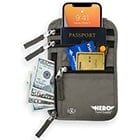
View on Amazon.com ➜
2. Get travel insurance for Mexico
Your domestic insurance provider does not cover you in foreign countries. Our friend had over $6,000 in medical bills when he broke both his wrists falling from a bike while traveling in Mexico; thankfully, this was completely covered by travel insurance, and he was able to focus on the more important task of getting well. In fact, travel insurance is now required for those visiting Puerta Vallarta, Riviera Nayarit, and other parts of Mexico.
Faye Travel Insurance is our go-to provider because they are the only company that makes claims super easy via their mobile app, which means you can be reimbursed quickly for common travel issues like theft, flight delays, baggage loss, trip cancelation, international hospital bills, or emergency evacuations. They even have coverage for vacation rentals and the option to “cancel for any reason.” With custom quotes for each person and trip, it’s too affordable to travel without. And it offers you tangible peace of mind even if nothing goes amiss.
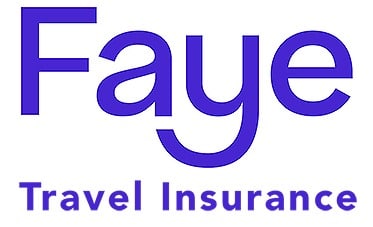
Get a quote in less than 60 seconds with Faye ➜
3. Secure your valuables with luggage locks
Mexico requires TSA-approved luggage locks when entering and leaving the country. Luggage locks can be useful for a variety of purposes, like securing your checked luggage, carry-on bags, and backpacks in crowded areas where pickpockets are particularly stealthy. These combination locks are also great for lockers at hostels or tourist attractions.
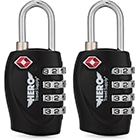
4. Thwart online hackers with a Virtual Private Network
Mexico is in the top 10 countries most affected by cybercrime in the world! According to an investigation by SurfShark , their cybercrime density is ranked very high and phishing is the most common form of attack. Your financial data, passwords, and private identity are not areas to take lightly. We learned this the hard way after my credit card number was stolen at (what I thought was a secure) Airbnb in Paris.
Not all connections are created equal, but a good VPN gives you a secure network when joining Wi-Fi in public areas like hotels, Airbnbs, cafes, restaurants, airports, and more. It will also limit any online censorship that can hinder you from being able to stream Netflix, use your PayPal account, and more. NordVPN is the fastest provider we’ve tried and offers 6,000 servers in 60 countries, which means there’s very little in the internet landscape that you won’t have access to. Once you try it, you’ll never go back!

View NordVPN.com Options ➜
5. Don’t drink tap water – bring a Grayl
The tap water in Mexico is definitely NOT safe to drink and can only be consumed if boiled. Even most locals will only drink properly filtered water or use plastic bottled water, which is bad for the environment and over time, can get costly. Bring this Grayl filtration system that will offer you autonomy over your water supply. It’s guaranteed to remove all pathogens including: rotavirus, norovirus, hepatitis, E. Coli, salmonella, dysentery, giardia, cryptosporidium, and amoebae. It also has the ability to filter particulates like heavy metals, pesticides, microplastics, and sediments. It’s a small investment to protect your health.
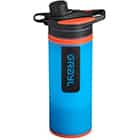
6. Avoid Montezuma’s revenge with activated charcoal
Sadly, it’s fairly common to get dysentery (Montezuma’s revenge) while traveling in Mexico. Since water, ice, or food can cause food poisoning, you’ll want to have a preventative plan to adjust to the local cuisine with activated charcoal. This supplement works as a magnet in your system to quickly absorb toxins and bacteria so that they can be expelled from your gastrointestinal tract. It will help mitigate any days and nights spent on the toilet so you can keep making the most of your trip (without the diarrhea, nausea, and distress!).
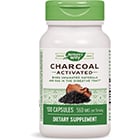
7. Keep your phone safe with this nifty waterproof pouch
Your phone is arguably your most important piece of safety equipment since you can easily make emergency calls and verify information etc. Therefore, you’ll want to keep it safe from water damage with a waterproof phone pouch when exploring cenotes, lounging by the pool, having a beach day, snorkeling, boating, and all the other water activities that come with a trip to Mexico. This universal pouch can be used up to 75ft underwater for epic photos and videos when swimming, snorkeling, or diving. Attach the case to a floating wrist strap so that you won’t lose your phone to the depths of the ocean if it goes overboard.

8. Wear these mosquito repelling wristbands to ward off disease carrying insects
Mosquito-borne illness is still prevalent in Mexico, including Zika and Dengue fever. Some less common conditions are Chikungunya, leishmaniasis, and Chagas disease. Pack smart with these mosquito-repellent wristbands – they are wearable and safe for kids, which is super useful for staying on-the-go with a reusable and waterproof option. In certain jungle-dense areas, you may want to double up with mosquito spray for full coverage (just check that it’s deet-free and non-toxic).
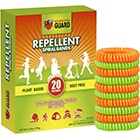
9. Use a well-reviewed tour guide to avoid scams & tourist traps
Instead of winging it with no plans – use a reputable platform so you’re always being guided by trustworthy hosts with thousands of reviews from fellow travelers. We use Get Your Guide because they offer the most authentic worldwide tours, often at a discounted rate compared to local services. This is also a way to meet new friends, so join a group tour instead of opting for private!
Some of the most popular tours include visiting the Mayan ruin of Chichén Itzá , taking a hot air balloon ride over the Teotihuacan Valley , cruising on a catamaran near Cancún , and experiencing the unique culture of Mexico City .

See all Mexico attractions at GetYourGuide.com ➜
10. Beat heatstroke with these cooling towels
The Mexican sun shines a little brighter! Being close to the equator makes the UV rays noticeably stronger, and on top of the humidity, you’ll want a sure way to beat the heat. This magical cooling towel is a game-changer! Simply add water, wring it out, and voila – you have a soothing towel that drops 20-30 degrees lower than the outside air temp for up to an hour! When you’re ready for more relief, just add more water. It’s perfect for beach days, afternoon hikes, Mayan ruin climbs, or outdoor adventures that can be a bit draining without this secret weapon.
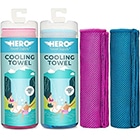
11. Luggage Straps
More than 26-million pieces of luggage were lost, delayed, or damaged in 2022. If you’ve seen the way bags are handled by airport and cruise staff, then you know the importance of luggage straps. These heavy-duty, adjustable belts reinforce your bag and take the pressure off your zippers by centralizing the weight. Able to support 700+ pounds of force tension, it’s a small security blanket that keeps everything from flying open and out onto the carousel!
My favorite bonus is that the bright colors help my bags to stand out at the arrivals terminal, so I can easily distinguish which cases are mine – rather than pushing in front of the crowds and checking every case that almost resembles mine. These straps also have a built-in identification card, so it’s less likely that someone will mistakenly take your bag, AND they’re TSA-friendly in case you’re selected for a random search.

Health & Hygiene Safety
1. get your gut ready with probiotics & electrolytes.
Before your travels, fortify your gut with probiotics and electrolytes. The probiotics will strengthen your digestive system and reduce sugars that pathogens love to feed on. If you do get food poisoning, the electrolytes will supercharge your water, helping to replace your body’s fluids so you don’t enter a state of dehydration. Avoid rich foods for 24-48 hours and eat bland things like apples, bananas, crackers, and toast until you’re feeling better. Just rest and let the charcoal do its thing.

2. Be selective with street vendors
With this in mind, be conscientious of the food choices you make. Avoid street food or open-air markets where the food looks badly stored. You will be looking for food that is on ice, heated, or preserved in a way that inhibits bacteria growth. If it seems like it’s been left out in the sun for hours, skip it. I also look for places with long lines and where the locals appear drawn to.
The sad thing is, my wife got food poisoning from a fancy Michelin-star restaurant once, so you really can get sick no matter how high the quality is. Use your discernment and it will reduce the likelihood of any sickness or nausea.
3. Don’t forget about the ice!
It’s obvious, yet not. While you’re doing the work to purify your water, don’t neglect to forgo the ice machine, which is usually made with the same contaminated water supply. This concept also applies to using purified water to brush your teeth. And keeping your mouth closed in the shower.

4. Wash raw fruits and vegetables
The same goes for washing your produce before consuming it. Use a ratio of 1 part vinegar to 3 parts water and soak your food for 3-5 minutes. Scrub off any griminess or dirt; it will go a long way to keeping your body healthy.
5. Ask your doctor about vaccinations before traveling
There are certain vaccination requirements to stay up-to-date on before traveling. For Mexico, the CDC advises vaccine protection against Hepatitis A, Hepatitis B, COVID-19, rabies, polio, measles, chickenpox, shingles, influenza, pneumonia, measles, meningitis, cholera, typhoid, and mumps.
6. Bring hand sanitizer
I always bring a compact bottle of hand sanitizer when I’m exploring in case of any sticky situations! Be sure to wash your hands regularly with soap, especially around meal times.

7. Know the local medical options
If you are in a medical emergency, know your local medical providers and the nearest clinic to your accommodation. If you are dehydrated, in an accident, or need to see a doctor, have your international health plan information on hand.
8. Opt for Reef-safe sunscreen (mandated in some areas)
In areas like Cozumel and the Riviera Maya (Cancun and Playa Del Carmen), it is actually required by law to use reef-friendly sunscreen that protects the nearby coral reefs. Pack a brand that is made with non-toxic products that won’t harm marine life or cause unfixable harm to underwater ecosystems.

Preventing Theft
1. don't fall for common tourist scams.
Since millions of newcomers visit Mexico each year, there are plenty of tourist-targeted scams that the locals use to pull-one-over on those that are less aware of common customs. Some scams to look out for are fake taxis, airport timeshare workers, higher dinner bills, fake alcohol, and laced substances. Avoid the cartels at all costs and choose vendors that look officially authorized. Read the reviews and do your research to find the most trustworthy restaurants and establishments.

2. Exercise caution at ATMS and banks
One of the many clever scams in Mexico is related to ATM machines. Be conscientious about using authentic machines that are attached to legitimate financial institutions. If you stumble across a random street ATM, it could easily have fake skimmers that process your credit card information when you swipe. You also may not even get your card back, or worse, it could be an area targeted by kidnappers or extortionists.
I also advise you to convert more cash to pesos early on so you do not have to make as many stops at the bank or any at all. Carry minimal amounts of cash with you at a time and leave the rest at your hotel, secured in the safe.
3. Don’t keep valuables in your pocket
As mentioned above, we recommend using an RFID-blocking neck wallet to ensure your essentials are out of your pocket where sticky fingers can easily grab them. Especially in crowded places like tourist attractions or public transit stations, the anti-RFID material will come in handy to prevent any modern e-thieves from scanning your credit cards or passport information. In the age where scan readers are becoming the norm, RFID protection is more necessary than ever.
4. Don’t wear flashy jewelry
In a place where crime and corruption do exist, it’s wise not to make yourself look like an auspicious target. Avoid drawing unnecessary attention to yourself by leaving the flashy jewelry at home. Even if it’s fake or costume jewelry, it can draw in curious eyes and hinder you from blending in as well as you should.
5. Document what you have with pictures and receipts
If you do decide to bring a few valuable items (like your phone, camera, laptop, or jewelry etc.), you should also take a picture of everything and keep your receipts. This way, if anything is taken, it will simplify the claims process through Faye Travel Insurance .
Faye covers up to $2,000 of any lost, stolen, or damaged luggage, including clothing, personal items, and professional equipment like a phone or laptop. This is another huge benefit of getting travel insurance and is the most common type of claim. Faye makes it super easy and fast to make claims through their mobile app. Having documentation will help you get reimbursed quickly for anything that does get lost, stolen, or damaged.
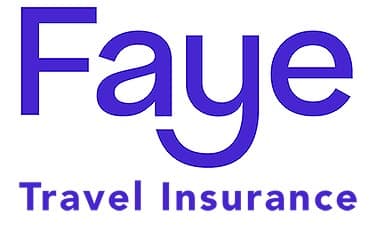
6. Be aware of major Mexican holidays
This is when cities will be at their busiest and crime at its highest. Some specific times to be aware of are:
- Semana Santa (7 days leading up to Easter)
- Cinco de Mayo (May 5th)
- Independence Day (September 15/16th)
- The Day of the Dead (November 1st and 2nd)
- Christmas (December 24/25th).
If visiting around these timeframes, don’t cancel any plans, just proceed with a bit more caution and heightened awareness of your surroundings.
7. Don’t try to be a knight in shining armor
You may hate this, but… If someone is robbing you, just give them the cash and hand over what they want. In most cases, you will not be harmed; they only want your valuables.
It is unlikely it will happen, but if it does, being cooperative can make all the difference. Do not try to be a hero, but rather, put your well-being ahead of material items that can be replaced.
Solo-Female Travel Safety
1. choose a safe city and neighborhood.
The single most important step you can take as a solo female traveler is to set yourself up for success in a safe area. Tourist areas are protected by the police because tourism is the largest economic driver in the country, so popular destinations will usually warrant lower crime rates – cities like Puerta Vallarta, Playa Del Carmen, Cabo San Lucas, Tulum, Sayulita, Mexico City, and Oaxaca City.
Note that some of the least safe cities that commonly see crime are Juarez, Tijuana, and Cuilacan. Whichever city you decide to visit, research the safest neighborhoods where you’ll have easy access to the main activities you are interested in.

2. Don’t walk alone at night
While it may seem like a common enough thing, walking alone at night can be like asking for trouble. It depends on the city and neighborhood you are staying in, but generally, it’s best to avoid walking long distances after 10 p.m., especially in isolated areas.
Be careful when immersing yourself in the Mexican nightlife, and know that the metro stops running at midnight. Regardless of your gender or group size, it’s smarter to opt for an authorized taxi or Uber. In fact, Uber is generally safer here than the taxi companies.
3. Cover your beverage while drinking
When traveling solo, you should be cautious not to overdrink. But if you have a cocktail or two, cover it with a disposable drink cover to make sure no one is slipping anything funny in your drink! You can’t keep an eye on your drink at all times, so this will add an extra layer of defense. Again, it’s not wise to get inebriated in a foreign country, particularly if you’re unfamiliar with the language.

4. Dress more conservatively in certain cities
In coastal towns, shorts are common and people will be wearing beach cover-ups as everyday attire. But this is not the case all over Mexico. You won’t typically see bare shoulders or legs in the more inland towns like Mexico City. Wearing long skirts or pants can help you to blend in and not look like a tacky tourist. This will also help you be less of a target to cat callers. If you are being harassed, ignore them and don’t indulge them.
Note that some temples and sacred sites may also require a more modest attire like a shawl wrapped around exposed arms as a sign of respect.

5. Share your location with loved ones
Someone should always know of your plans before you jet off to Mexico, so share a copy of your itinerary with family before you depart. Keep loved ones updated on any changes to your schedule so that if things go awry, people know your location at all times. You can use apps like Find My Friends to stay connected. But have contingency plans like itinerary sharing that is available offline.
6. Join Facebook meet-up groups
There is safety in numbers and you are far less likely to be bothered if you are surrounded by other people. Use this as an opportunity to meet new people and join a group. Facebook and other social platforms have great networking opportunities so you can connect with locals or other wanderlusters that are heading to Mexico. Like the “ New Friends Club of Mexico City .”
7. Take your license out, not your passport
When exploring the town or enjoying the vibrant nightlife, bring your domestic I.D. card and NOT your passport. It’s too risky. If you lose your passport, you will not be able to get home easily (at least not without an emergency trip to the local embassy or consulate). But if you lose the I.D. card, it can easily be replaced once you return home and it won’t cause any issues at airport security.
Don’t Forget These Other Items
1. quick-dry travel towel.
Another must-have for water-centered activities is a fast-drying travel towel. It’s made from super-soft microfiber that dries 10x faster than a standard cotton towel, meaning you won’t have to lug around a soggy, smelly towel all day. It comes with a compact carrying case that’s easy to throw into any daybag. It’s odor-resistant, sand-repelling, and comes in a variety of cute colors!

2. Lipstick-sized Portable Charger
We rely on our phones for boarding passes, directions, transportation, photos, and more when traveling, so it’s likely we’ll run out of battery before the day is over, which can really throw a wrench in your plans. Instead of going back to the hotel to recharge your phone midday, pack a lightweight, portable charger so you can keep your devices charged on the go!

3. Hanging Toiletry Bag
To seamlessly maintain your routine, you’ll need a hanging toiletry organizer that is spacious enough for all of your sunscreen, aloe, skincare, makeup, and hair products. After years of searching for the perfect bag, we’ve been blown away by this one! The 360-swivel hook makes it easy to hang anywhere, and the 4 large plastic compartments fit your beauty routine while containing any leaks that may happen during transit. Plus, the 3 external pockets are thoughtfully placed for easy access without having to unzip the whole thing.
Designed with love in Hawaii by Eco Sun, a company that strives to do more in the world, each sale gives back to women’s education in underserved communities. This company designs with sustainability in mind, and backs all of their products with a lifetime happiness guarantee. So you have nothing to lose and everything to gain!
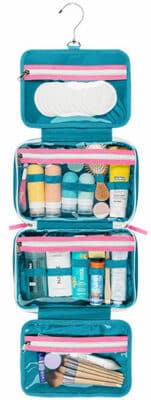
4. Mesh Water Shoes
Prevent any slips or falls and keep your feet comfortable with a pair of mesh water shoes. The extra-grippy traction on the soles will keep you from slipping and getting hurt on wet boat decks, slippery waterfall hikes, or wobbly paddleboards. Plus, the mesh material actually allows your feet to breathe and dry quickly instead of getting waterlogged like a pair of tennis shoes would.

5. Beach Bag with Cooler
For pool, beach, and snorkeling days, a beach bag with a built-in cooler will carry all of your essentials like travel towels, cover-ups, and sunscreen, and the insulated bottom compartment will keep snacks and drinks cold! It’s waterproof, sandproof, and has nine pockets to keep things organized and easy to reach. It’s perfect to bring on any adventure because it’s lightweight and super easy to clean!

6. Windproof Travel Umbrella
The rainy season in Mexico is May-September so if you plan to visit during this time, an umbrella is essential. Afternoon showers are a daily occurrence, but luckily they usually don’t last long. Be prepared with an umbrella and expect rain anytime between 2-6 p.m. Packing a quality travel umbrella will make all the difference. This one is extremely sturdy, has a waterproof coating, and even comes with a lifetime replacement guarantee, so you can count on it for many trips to come!
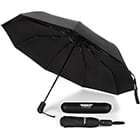
7. Motion Sickness Prevention
For winding roads and rocky boats, be sure to bring some form of motion sickness prevention. We prefer these natural patches over drugs like Dramamine because they don’t have the drowsy effect that leaves you feeling like a zombie when you should be busy having a blast. I’m super prone to motion sickness and these patches are the only ones that don’t leave me feeling green!
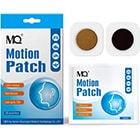
8. Packing Cubes
If you’re tired of living out of a disorganized suitcase when you’re on vacation, then you have to try packing cubes. You can have a cube designated for tops, bottoms, beachwear, eveningwear, whatever works for you! Each of these packing cubes has a thoughtful space for an index card so you can label what’s inside each one and not waste time digging through your whole luggage for that one tank top. This set even comes with two bonus laundry bags perfect for keeping dirty clothes or shoes separate.
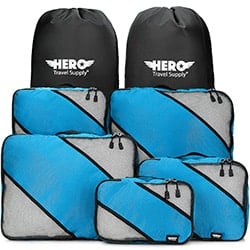
9. Hangover Prevention
If you’ve had one too many piña coladas on the beach or margaritas by the pool, this hangover aid will save you a lot of headache (literally). The main reason you feel terrible after a night of drinking is because minerals are being depleted and your liver is overworked. These supplements contain essential vitamins and minerals and they support your liver to help your body detox the alcohol – leaving you feeling so much better the next morning. Cheers was featured on Shark Tank and is guaranteed to ease any hangover!

10. Luggage Straps
General mexico travel safety tips, 1. ensure your passport is up-to-date (make copies).
While Mexico only requires that you have a valid passport when visiting, the United States requires your passport to be valid for 6 months past your planned trip date. Make sure yours meets this requirement, and if not, be sure to renew it or apply for one at least 3 months before your trip so there’s plenty of time for it to arrive. Don’t forget to make copies of your passport in case it gets lost or stolen!

2. Enroll in the Smart Traveler Enrollment Program
For a newcomer or repeat visitor to Mexico, it’s advised to join STEP (Smart Traveler Enrollment Program) . This is a free service created by the Department of State for U.S. citizens who are venturing abroad. The program allows you to enter your whereabouts so the government knows your general location during your trip. This will make it easier in an emergency since the embassies and local consulates will be more informed on how and where to help you.
3. Consider staying at a resort
If you’re feeling extra cautious, consider staying at an all-inclusive resort that will be gated and safer. This is generally where people stay when visiting coastal cities because it’s considerably safer than staying in an unknown Airbnb. A resort can schedule secure taxis or private transfers, offer in-house dining so you don’t have to go out after dark and give you recommendations for safe areas to explore or tours to take.
4. Be aware of natural disaster protocols
Hurricanes are common along the coast, and earthquakes are prevalent across the country. Be sure to ask your hotel what the evacuation protocol is in case of a natural disaster. For example, in the case of an earthquake, you most likely will need to evacuate the building and look for official “meeting points” that are indicated with signs and painted on the streets and sidewalks outside.
5. Know your emergency phone numbers
In most large cities across Mexico, 9-1-1 is used in case of an emergency. If you’re driving on a highway and need emergency assistance, look out for signs that say a 3-digit number to call if you need help. Ambulances and first responders can also be reached at 066 and 080. In addition, it would be wise to save the phone number of your embassy and hotel in case you need to reach them in a dire situation.
Driving Safety
1. be aware of taxi scams.
The best way to avoid being ripped off by taxis is by booking a taxi through your hotel or a pre-paid taxi booth at the airport. However, when you need to hail a cab on the street, be sure to negotiate the price beforehand or have a general idea of how much the ride should cost, and make sure the meter starts from zero.
Another taxi scam, while very rare, is a thief poses as a taxi driver and holds the rider hostage until they hand over their valuables or withdraw money from an ATM. It’s important to never resist a robbery and hand over whatever cash or valuables you have.
Utilize authorized taxis because anything else is unregulated and illegal. Uber is another great option, and sometimes safer than the competitive nature of local taxi drivers.
2. Negotiate your taxi fair before the ride
To avoid being taken on a wild goose chase, ask your driver what the estimated ride rate will be prior to the journey. This prevents them from overcharging you or taking the long way.
Other scams to keep in mind are choosing an authorized taxi vehicle (it’s smart to have your resort call a local business on your behalf to request rides), or utilizing local ride-share apps like Uber and Cabify . And don’t let them convince you of the imaginary “airport tax” – it doesn’t exist!
3. Skip the rental car
The leading cause of tourist deaths in Mexico isn’t due to the cartel, gun violence, or kidnapping– it’s traffic accidents. If you’re not used to the way of driving in Mexico, it can be quite dangerous. Knowing the rules of the road and how the locals drive is extremely important for staying safe, but if you don’t want to risk and see if your driving skills are up to par, we recommend opting for public transport.
You can easily (and cheaply) get around all Mexican cities by using a taxi or Uber – meaning a rental car is unnecessary unless you want to drive yourself from one city to another.
4. If you do get a rental car, insure it
If you’re confident driving abroad, don’t make the mistake of being too confident and forgoing rental car insurance. Your personal auto insurance won’t cover your rental car in Mexico, but Faye’s Rental Car Care add-on will. It covers any damage to your rental (up to $50k) and even includes rental car theft coverage, which is a must for Mexico as car theft is a problem across the country (even in tourist hot spots).
With their easy-to-use mobile app, Faye offers 24/7 assistance so that you can make a claim and get reimbursed at any time, especially when you’re in a pinch (like if your vehicle breaks down). Everything from making claims to reimbursements is done straight from their app on your phone. Insurance with Faye is so much better and significantly cheaper than any insurance the rental agency will try and upsell you!

5. Don’t drive at night
Your chances of encountering crime while on the road significantly increase at night; don’t risk it. Thieves will intentionally set hazardous items like rocks or nails in the middle of the roads and highways at night, forcing you to stop where they can then catch you off-guard and rob you.
What is even more common and also very dangerous is running into animals on the road after dark. Cows, goats, sheep, and dogs are known to get loose and find themselves in the middle of a busy highway. You often can’t see them until it’s too late. Crashing into a full-grown bull at 60mph would be catastrophic.
6. Use toll roads when feasible
Toll roads are more secure and have fewer incidents of crime than freeways. The toll fees can add up, but your safety is not worth saving a few bucks. Plus, the toll fees go towards emergency roadside assistance in case you get into an accident. It doesn’t replace travel or car insurance, but it does help cover the cost of emergency first responders.
7. Don’t carry excessive amounts of cash
Military checkpoints, unofficial roadblocks, police stops, and even bandits are not uncommon occurrences on the road in Mexico. If you get stopped, they will likely want to search your car for drugs, weapons, and cash. If they find you have anything more than a few hundred dollars on you, they may want to question you further or even expect a bribe from you to let you go. Don’t risk having your cash stolen. Bring as little as possible. Keep some in your wallet and hide any extra out of sight.

Asher Fergusson
- English (EN)
- Español (ES)
- Português (BR)
Is Mexico Safe? Crime Rates & Safety Report
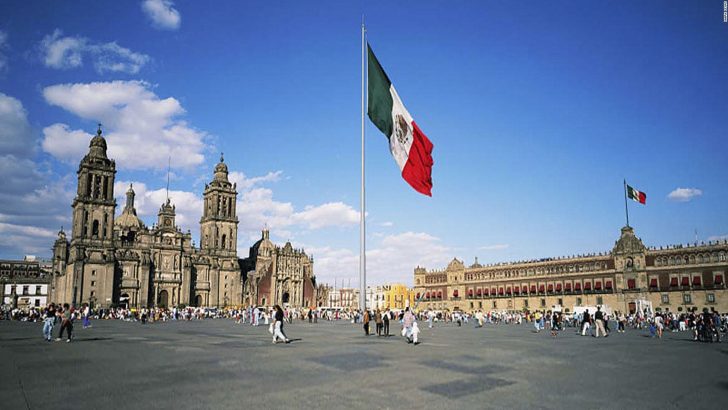
- Mexico : Safety by City
- Aguascalientes
- Cabo San Lucas
- Chichen Itza
- Guadalajara
- Isla Holbox
- Isla Mujeres
- Mexico City
- Nuevo Laredo
- Piedras Negras
- Playa del Carmen
- Puerto Morelos
- Puerto Vallarta
- Queretaro City
- San Luis Potosi
- San Miguel de Allende
- Zihuatanejo
Mexico has a lot to offer, from beautiful beaches, mountains, canyons, and rich cultural life from a diverse group of influences.
There is something intriguing for everyone.
Ancient Mayan and Aztec ruins, as well as some amazing colonial architecture, is itself a major reason to visit Mexico.
In the south especially, there are gorgeous beaches with clear blue water complete with a thriving nightlife.
While Cancun is the major tourist attraction, there are beaches just as nice that are not as developed or crowded.
In some cases, you can find more than one attraction in the same area, such as beaches, ruins, and lots of variety in Mexican culture.
From major cities to out-of-the-way hamlets, Mexico is the neighbor you should want to get to know.
- Warnings & Dangers in Mexico
OVERALL RISK: MEDIUM
The U.S. Government advises people to "reconsider travel" to Mexico, which is the third-highest of four levels of danger.Covid-19, as well as a rise in crime and kidnappings, are the major reasons.Like many countries, some areas are safer than others.Major tourist areas are generally safe.The overall crime rate per thousand people is actually higher in the United States than in Mexico.
TRANSPORT & TAXIS RISK: LOW
You need to use some common sense.Don't accept rides from independent drivers.Ride only in approved or licensed taxis, which are labeled.Get your hotel to call a taxi for you, instead of hailing one on the street.Public transportation is safe but can be crowded and uncomfortable.Generally, it is much safer than renting a car and driving yourself.
PICKPOCKETS RISK: HIGH
This is especially true in tourist areas, where people look for easy targets.Try not to look like a tourist.Don't flash your money or expensive electronics around in public. Keep your valuables locked up and carry as little cash as possible.Keep your papers and wallet safe.Tourist areas and large cities are the worst.
NATURAL DISASTERS RISK: LOW
There have been earthquakes in mountainous areas, as well as hurricanes along the coast, but it is rare to have a major disaster in Mexico.Keep an eye on weather forecasts as you would at home.The infrastructure in Mexico is not that great, so if there is one, it may be worse than if you were at home. Even so, they are rare here.
MUGGING RISK: MEDIUM
Robberies and muggings are on the rise in certain areas.Even so, tourist areas are generally safe during the daytime, as is most of the country.If you stay at a resort in a tourist area, your risk is very low.If you are out at night by yourself in a city, your risk increases dramatically, just as it would in the United States.
TERRORISM RISK: LOW
According to U.S. Govt reports, there is no evidence of foreign terror groups having a base in Mexico or working with drug cartels.There have been very few incidents of terrorism in recent years and those were isolated cases.While terrorism could happen anywhere, there seems to be little risk of it happening in Mexico.
SCAMS RISK: HIGH
Especially in tourist areas, scammers are on the prowl looking for a victim.Fake taxis, fake tour operators, souvenirs, and timeshares seem to be the most common scams.One very common scam is for restaurants to have a different menu and prices for tourists than what locals get.You won't get much help from the police if you are scammed, so you need to be careful.
WOMEN TRAVELERS RISK: LOW
We say low because it really is not any different than in the United States.If you stay in tourist areas, use some common sense - don't go out at night alone - there is little danger.There have been some kidnappings, so that could be a danger.It is not good for a woman to be away from tourist areas alone for that reason.
TAP WATER RISK: HIGH
"Montezuma's Revenge," causes most tourists who drink water to get sick for a day or two.Some are just different minerals that you could get used to. Water is contaminated in many areas, however. Ice at a restaurant may come from tap water.You will get sick from tap water, but it is not fatal or serious in most cases.
- Safest Places to Visit in Mexico
The safest place to visit in Mexico is Cancun, or anywhere along what is called the Mexican Riviera.
The area of Yucatan is built for tourists and it is safe for that reason.
You can also take guided day trips from there to see the Mayan Ruins of Chichen Itza or Tulum, which are also safe.
Cozumel is a tiny island near Cancun that is also a tourist haven, as well as a snorkeling paradise.
The historic center of Mexico City is also a fabulous place to visit and is safe as long as you don’t wander about at night alone.
Merida is a large Yucatan city that is often overlooked by American tourists.
It has a great colonial heritage, beautiful streets, and squares.
It is close to the ocean, with some beautiful underdeveloped beaches.
- Places to Avoid in Mexico
Cities that border the United States are considered unsafe because of drug cartels.
Ciudad Juarez, across from El Paso; Tijuana, south of California; Reynosa, which borders Texas, and Ciudad Obregon near Arizona, are all considered unsafe.
Do not travel there alone and exercise extreme caution.
The U.S. Government has issued a “do not travel” designation for Mazatlán, Acapulco, Matamoros, and Nuevo Laredo.
The “do not travel” designation is because of increased violence, drug cartel activity, and Covid-19.
Generally, the southern part of Mexico is much safer than the northern states.
The states of Sinaloa, Nuevo Leon, Guerrero, and Michoacan all have “do not travel” advisories from the state department.
Some resort cities on this list are unsafe outside the resort, but nearly all resorts themselves are safe for travelers.
- Safety Tips for Traveling to Mexico
1. Avoid looking like a tourist.
Try to blend in as far as clothing, wherever you are.
Don’t flash expensive electronics, jewelry, or cash around where a pickpocket might see it.
Criminals look for easy opportunities.
Don’t be an easy mark.
2. Obey your intuition.
If something feels off or scary, don’t hesitate to run away.
Your intuition is probably right, and even if not, better safe than sorry.
While most areas are safe, there are bad people everywhere, so if your radar is going off, it is doing so for a reason.
3. Safe mentality.
Stay alert and aware of your surroundings.
Make safety your top priority, no matter what else you are doing.
4. Take the Uber.
Public transportation and taxis are safe, but nothing beats Uber as far as safety goes.
When it is available, it’s safer than public transportation.
5. Take group tours.
These are operated by well-trained guides and drivers, and they have a lot of tours to choose from.
Don’t take a tour with some guy on the street making an offer.
It might be great, or you might get killed.
6. Don’t drink the water.
It won’t kill you, but it will make you very sick for a day or two.
Some of it is just the minerals in the water that we are not used to, but there are also contaminated systems in Mexico.
7. Don’t go out at night alone.
Criminals wander around at night looking for an easy target, and a tourist alone is an easy target.
This is especially true for women, but it’s dangerous for men too.
8. Stay downtown.
Unlike the United States, the culture and tourist areas are downtown in Mexico.
Look for the “Centro Historico,” which is the major tourist area in town.
These areas cater to tourists and the government helps keep them safe.
9. Learn a little Spanish.
You don’t need to be fluent, but knowing some words will help.
If people see you are trying to speak their language, they are more likely to offer to help you.
10. Climate awareness.
Be aware of where you are.
Mexico City, for instance, is at a high elevation and that can give you altitude sickness.
The southern areas are hot, so drink plenty of water.
- So... How Safe Is Mexico Really?
There is no place on Earth that is safe all the time.
Bad things can happen, and that is what makes the news.
In reality, Mexico is as safe as the United States.
Forbes Magazine interviewed an FBI agent who worked in Mexico, and he said the country is safe if you use common sense.
A website compared crime statistics between Mexico and the United States and found Mexico to be less dangerous in many statistical categories.
- Crime in general per thousand people is three times higher in the United States.
- Rapes per thousand people are higher in the United States.
- Murders per thousand are higher in Mexico, but gun violence is less prevalent in Mexico.
- Assaults are four times as likely to happen per thousand people in the United States than in Mexico.
- Robberies, or muggings, are more prevalent in Mexico and this happens when people are caught out alone in most cases.
- Some areas are unsafe, and it is not safe to be out at night alone.
Driving a car in rural areas alone is also unsafe.
Tourist areas are safe.
The Mexican government makes a lot of effort to keep it that way.
Even in dangerous areas, you should be fine at a resort as long as you stay at the resort.
- How Does Mexico Compare?
- Useful Information
You do not need a visa to travel to Mexico.A regular passport is all you need.If you are on a cruise ship that leaves and returns to the USA, you won't even need a passport. It takes 8-10 weeks to get a passport once you have applied.The passport costs $110, but you can get a passport card for a short-term visit for $30.
The Peso is used in Mexico, and the exchange rate can change daily.The best place to make the exchange is at a bank, or at an ATM.You may also make the exchange at airports.Mexicans love to have U.S. Dollars, so take some and use them judiciously.Avoid changing money on the street as that can be a scam.
Mexico is a big country, so the weather is as diverse as it is in the United States.In the south, it is hot all the time in a Caribbean-type ecosystem.It can get cold at night in the high mountains around Mexico City any time of year. Light, loose-fitting clothing is best in summer, but bring some warm clothes if you head to the mountains.
Major cities have big airports, and some relatively small cities have them.If you are not on a cruise ship, flying is the best way to get to Mexico.The airport has taxis that will take you to town or where you need to go.Use official taxis, as there are fake ones at times.
Travel Insurance
Part of the fun of traveling is not knowing what will happen.Bad things do happen at times though, so it is a good idea to get some travel insurance.This can help you if you have a sudden change of plans, or if you get injured while in Mexico.It will give you some peace of mind as you explore and find new adventures.
Mexico Weather Averages (Temperatures)
- Average High/Low Temperature
Mexico - Safety by City
Explore mexico.
- 12 Cheapest Places to Live in Mexico
- 10 Best Beaches in Mexico
- 10 Most Dangerous Cities In Mexico
- 10 Best Zoos & Aquariums in Mexico
- 11 Most Beautiful Castles in Mexico
- Are There Alligators in Mexico?
- 15 Best Flea Markets in Mexico
- 16 Pros and Cons of Living in Mexico
- 10 Safest Cities in Mexico
- Top 6 All-Inclusive Family Resorts in Mexico
- Reasons To Visit the City of Tampico in Mexico
- Mexican Slang You Should Know to Feel Like a Local
- Top 12 Activities for Your Trip to Rocky Point, Mexico
- Staying Safe in Mexico: 8 Simple Tips You Should Follow
- Where to Next?

19 Reviews on Mexico
Give mexico a chance.
Mexico and it’s people are beautiful, personally have never had any problems, but Mexico has lost it’s way over the years (Very Sad). Just use caution, and you should be ok
I HAVE TRAVELLED TO SEVERAL MEXICAN CITIES AND HAVE YET TO EXPERIENCE ANY PROBLEMS ALWAYS BEING CAREFUL ABOUT OUR SURROUNDINGS AND ALWAYS USING A CAB RECOMMENDED BY OUR HOTEL FOR ALL OUR LOCAL EXCURSIONS, ALWAYS TIPPING THEM FAIRLY AND ESTABLISHING A TRUSTING RELATIONSHIP WITH OUR DRIVERS AND REUSING THEM. WE AVOID LATE EXCURSIONS, NO JEWELRY, AND FEW CREDIT CARDS, ALONG WITH A SMALL CAMERA TO AVOID ATTRACTION. WE WILL EVEN HAVE LUNCH WITH OUR DRIVER TO MAKE US AND HIM FEEL AT EASE. I HAVE NOTICED THAT WHEN WE FLAG A CAB DOWN THE PRICE FOR THE TRIP IS EXCEGERRATED SIGNIFICANTLY USALLY TWO OR THREE TIMES WHAT IT SHOULD BE.
I have been to Mexico and I had no problem at all.People were friendly,food was great.There is no crime. Go to Mexico! It’s safe!
Truth is bitter
The only thing that’s missing from half of the country is effective government control. The drug cartels field military-grade weapons, and the government needs to respond with their own military helicopters and army formations e.g. to arrest some major druglords.
Brazil might be the only country besides Mexico that’s officially at peace, and yet has to regularly deploy the army to fight against organized crime (though there might be a few other countries as well in Latin America). The cartels will set roadblocks on major highways to enforce the borders of their extensive domains and will commit atrocities to make everyone remember who’s actually in control.
Only the Yucatan peninsula should be relatively safe for travel.
PICKPOCKETS? SCAMS? No way. I have been to Mexico and I have experienced NONE of that. There may be some in the northern part, but NOT in Mexico City! People are VERY friendly. Please go!
The fact that you dont experience a crime, doesnt mean crime doesnt exist. Dont be silly, mexico is alright, but as any latin american country, you cannot do things you can do in Europe like going out by night.
And im a mexican btw, i know my country way better than you
No you don’t You’re over exaggerating things because you’re believing all the things that the media exaggerated about safety in Mexico.
– I’m a Mexican living in the UK.
Need more information
Thank you for your reviews and information. I have noticed that Mazatlan is not covered within your list, is there a reason this city has been overlooked.
Mexico is not safe. Cartels target tourists you need to be careful. Police are corrupt and do not care.
Mexico is actually not what you think.
If you stick to the right areas in Mexico you will be completely safe. This whole Narco stuff is a problem but where I’ve been that being a small town in Jalisco called San Juan De Los Lagos, Its pretty safe, people in Mexico are nice too and will help you if needed. The media is just making Mexico look like a bad place, (which it is on some parts) but for the most part its a safe country if you stick to the good parts.
If you go to Mexico, you might get your head cut off
Mexico is my second home
In my opinion, Mexico is one of the most beautiful countries in the entire world. As a side note, for those that are gamers, you probably know that Forza Horizon 5 is based in Mexico and that game is so beautiful just as Mexico is. This place never fails to amaze me every time I get a chance to visit. I only had time for visiting a few of the many beauties it offers.
What I’ve managed to see so far:
1. Mexico’s Grand Canyon or Copper Canyon or Barranca del Cobre is a spectacular group of deep canyons. There are many ways to explore this place which believe it or not, is larger than the Grand Canyon.
2. Guanajuato is one of those places that needs to be explored by walking. It has many beautiful plazas, many, many splendid buildings architecturally wise. The San Diego Church or the Juarez Theater are just two of them. Another place to visit here is the Museum of Quixote. Don’t miss it.
3. Guadalajara is the second city in size after Mexico City and has a magnificent mix of colonial and Tapatios influences. Here you can truly experience Mexican culture with mariachi being present everywhere, dancing, singing and many, many amazing Mexican dishes that leave my mouth watering just thinking about them.
4. Cancun is a place where you go to relax on the beach and admire the smooth, clear sea. Snorkeling is awesome here as is scuba diving. Plenty of tropical fish to see and places to explore underwater if that’s your cup of tea.
All these places are generally safe during the day, less during the night. Pickpockets are present especially in the larger cities or where there are a lot of crowds so be careful in those instances. It’s generally safe to travel alone, as a man or woman, but traveling during night time is not ok I think. I wouldn’t do it.
Multiple listing "Los Cabos" is the capes, which is CSL and SJD.
Los Cabos consists of Cabo San Lucas and San Jose del Cabo (which you suggest people avoid.)
I am confused why both are listed, and why Cabo San Lucas gets a score of 68, but when you combine the two (to Los Cabos) it gets a score of 80. Since you’re warning people away from San Jose del Cabo, the score should logically be lower, not higher. I guess San Jose del Cabo is MUCH safer than Cabo San Lucas as it would need a score of 92 to average the two into the 80 score of the two cities, assuming equal weighting on each city – 200k vs 150k people. Please sort this out, it’s confusing, from what you’re posting most of the dangers of swimming, riptides, sharks etc are in CSL.
Mérida is the best of Mexico
I crossed the Mexican border for the very first time in 1977.
I spent the day in Juárez which, at that time, was perfectly safe.
Three years later, I crossed the border at Laredo/Nuevo Laredo, launching a three-month-long journey across all of eastern Mexico, Guatemala, Honduras, Nicaragua and Costa Rica. At no point did I feel in danger.
I had fallen in love with Mexico, and returned soon afterward (1981). Eventually, I made my way to Mérida, and really fell in love with that city. I have had a connection with Yucatán since that day. Yes, many parts of Mexico are dangerous today, especially for foreigners. So, rule #1 is to NOT stick out as a tourist. Blend in. It truly breaks my heart to see what has happened over the past 42 years.
I do not personally recommend Quintana Roo, except for the islands of Isla Mujeres and Cozumel.
Cancún and even Tulum have become dangerous. Anyway, I never did like Cancún. Too touristy for my taste. Mérida has always had a reputation for being a very safe city and, while not as safe as it was when I arrived 40 years ago, what city IS? It is a beautiful city with a rich history and culture, and it is very walkable. Winter is the best time to visit, since it is the dry season.
Winter nights are cool, but the days are warm to hot. Public transportation is excellent. Nearby places of interest include Progreso, Dzibilchaltún, Uxmal (and the Ruta Puuc), the Grutas de Loltún, Chichén Itzá (2½ hrs by bus), and various beautiful cenotes. Merida’s central mercado spreads over several city blocks. The “plaza grande” (central square) is historic and beautiful. The cathedral was completed in 1598.
Yucatán has a culture all its own, including dishes that you will find nowhere else (Poc Chuc, Relleno Negro, Cochinita Pibil, Papadzules, Huevos Motuleños, etcetera). I highly recommend Mérida.
Ok but could be better
It’s not that bad last time i went was when i was real little. If you feel lucky maybe you can buy some things there. You should never let your guard down when traveling to such places. I know there are worse places to visit in the world but this gets 4 stars because it is not that interesting. I’m not recommending you go there but if you want to no one is stopping you.
I spent three months in Mexico in 1982 and was married on Isla Mujeres. I have been back many times, sometimes alone, with my young children and with friends. I have never had any problems anywhere I have gone. I have rented cars, had accidents, used public transportation and have travelled by air. When I travel alone I don’t go out at night and I don’t drive at night on the highways but have no trouble driving in the cities or towns. I speak Spanish well enough and this helps so much. I love the geography, people, and culture. As long as you stay away from heavy boozing and drugs you’ll be fine. So much to explore.
Safe but extremely boring sometimes
Mexico wasn’t too bad when i payed a visit. However it can veg boring from time to time. The people were really friendly. I’ve been to this country as a kid but thats when i was a little kid. I wouldn’t let me guard down when it comes to crime but it is good to take a tour every once in a while.
EARTHQUAKES?TSUNAMIS genuine threat
Plenty of major earthquakes, including 2 just 4 years before you created this article that were over 7 on the scale! Tsunamis even possible on the coast. Do more research
Share Your Experience Cancel reply
Your Review
Title of your review
Article Contents
- Overall Risk
- Transport & Taxis Risk
- Pickpockets Risk
- Natural Disasters Risk
- Mugging Risk
- Terrorism Risk
- Women Travelers Risk
- Tap Water Risk
- Weather Averages (Temperatures)
- User Reviews
- Share Your Experience
Popular Destinations

Safety Index
Recent reviews & comments.
- Brandon Fields on Simi Valley
- Robert Dawson on Simi Valley
- Carl Richards on Carmel
- Collin Smith on Rosine
- Jean Alberts on Rosine
Popular US States
- Pennsylvania
clock This article was published more than 1 year ago
Is it safe to travel to Mexico? What to know ahead of spring break.
The latest context and advice about violence, protests and travel warnings from the u.s. government.

As spring break planning heats up, incidents of violence in Mexico continue to make news — leaving travelers to wonder whether a perennially popular destination is safe to visit.
A rash of recent headlines proclaimed that the U.S. State Department was warning against visiting Mexico leading up to the busy vacation season. Although the department has “do not travel” warnings in place for six states, a representative told The Washington Post that it has not updated its travel advisories for Mexico since October.
The U.S. Embassy and Consulates in Mexico have, however, issued a handful of security alerts since January for Ciudad Juárez and several cities in Sinaloa and Quintana Roo states. Reuters reported that an Aeromexico plane was struck by gunfire in early January; the Culiacán airport closed because of violence following the arrest of alleged fentanyl trafficker Ovidio Guzmán, son of Joaquín “El Chapo” Guzmán.
“In light of widely publicized security incidents in popular tourist destinations, please remember that all destinations have some level of risk,” a Jan. 23 alert about taxi disputes in Cancún notes. “Violent crime — such as homicide, kidnapping, carjacking, and robbery — is widespread and common in Mexico.”
Most recently, four U.S. citizens were kidnapped from their vehicle by unidentified armed men in Mexico, the FBI said. The Americans crossed the border Friday into the city of Matamoros , across from Brownsville, Tex. Two were found dead, Mexican officials said Tuesday, and two were rescued and returned to the United States.
A California public defender died in January at a resort in Baja California in what local authorities characterized as a fall from the third floor of the hotel. His family has questioned that ruling, the Orange County Register reported , pointing to analysis of the autopsy that showed injuries inconsistent with a fall.
The United States, of course, has its own problems with violence; mass shootings have averaged more than one a day in 2023, and homicides reached their highest levels in decades over the past few years. Other countries, including Canada , Germany and Australia , routinely warn their citizens about gun crime when traveling to the United States.
Through November of last year, more than 30 million U.S. citizens traveled to Mexico, an increase of 18 percent from the previous year, according to data from the U.S. Department of Commerce. Here’s what government, security and travel experts say visitors should know.
Tourist drug demand is bringing cartel violence to Mexico’s most popular resorts
More travel news
How we travel now: More people are taking booze-free trips — and airlines and hotels are taking note. Some couples are ditching the traditional honeymoon for a “buddymoon” with their pals. Interested? Here are the best tools for making a group trip work.
Bad behavior: Entitled tourists are running amok, defacing the Colosseum , getting rowdy in Bali and messing with wild animals in national parks. Some destinations are fighting back with public awareness campaigns — or just by telling out-of-control visitors to stay away .
Safety concerns: A door blew off an Alaska Airlines Boeing 737 Max 9 jet, leaving passengers traumatized — but without serious injuries. The ordeal led to widespread flight cancellations after the jet was grounded, and some travelers have taken steps to avoid the plane in the future. The incident has also sparked a fresh discussion about whether it’s safe to fly with a baby on your lap .


Search Smartraveller

Latest update
Exercise a high degree of caution in Mexico overall due to the threat of violent crime.
Higher levels apply in some areas.
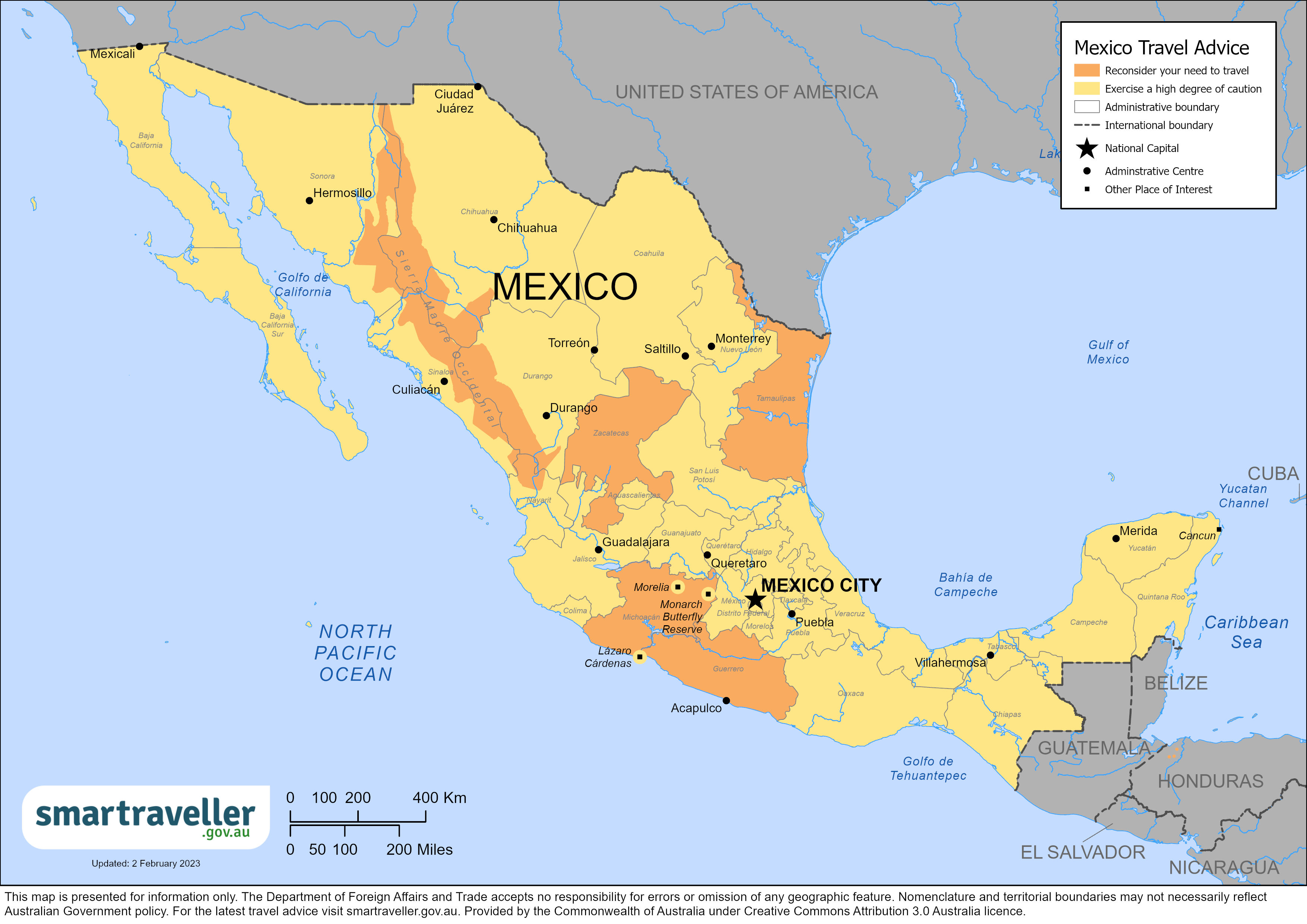
Mexico (PDF 1007.79 KB)
Americas (PDF 3.29 MB)
Local emergency contacts
Fire and rescue services, medical emergencies.
Call 911 or go to the hospital.
Call 911 or go to the local police station.
Advice levels
Exercise a high degree of caution in Mexico overall.
Reconsider your need to travel to Michoacán (except Morelia and Lázaro Cardenas and the Monarch butterfly reserves), Sierra Madre Occidental Mountains in southern Chihuahua and the states of Guerrero (including Acapulco), North-eastern Sinaloa, North-western Durango, South-eastern Sonora (except for the Chihuahua-Pacific Railway), Tamaulipas and Zacatecas.
Reconsider your need to travel to:
- Michoacán (except Morelia and Lázaro Cardenas and the Monarch butterfly reserves)
- Sierra Madre Occidental Mountains in southern Chihuahua
- Guerrero State (including Acapulco)
- North-eastern Sinaloa State
- North-western Durango State
- South-eastern Sonora State (except for the Chihuahua-Pacific Railway)
- Tamaulipas State and
- Zacatecas State
due to high levels of violent crime (including kidnapping and extortion) and their volatile security situation.
- Avoid protests and large public gatherings. These can become violent. It's against the law for foreigners to participate in political activity.
- Mexico has a high risk of violent crime, including murder, armed robbery, sexual assault and kidnapping. Don't travel at night outside major cities. Drug-related violence is widespread.
- Kidnapping and extortion are serious risks. Don't draw attention to your money or business affairs. Only use ATMs in public spaces and during the daytime.
- Stop at all roadblocks, or you risk getting killed.
- Hurricanes and earthquakes are common in Mexico. Local authorities will direct you to your nearest shelter in the event of a hurricane. Know the earthquake safety measures where you're staying.
Full travel advice: Safety
- Malaria and Zika virus are risks in Mexico. If you're pregnant, ask your doctor about the risk of Zika virus before you travel.
- Mexico has insect-borne diseases, including dengue fever, chikungunya, Chagas disease and leishmaniasis. Ensure your accommodation is insect-proof. Use insect repellent.
- Parts of Mexico are at high altitudes. Air pollution can also cause health issues, particularly over winter (December to February). Talk to your doctor before you travel if you have heart, lung or breathing issues.
Full travel advice: Health
- Smoking, including vaping, is banned in all public places in Mexico, including beaches, parks, hotels and restaurants. Importing electronic cigarettes and vaping devices is also prohibited. You may be fined or arrested.
- Some activities are illegal for foreigners in Mexico. These include political activity, driving without insurance, and failing to report a road accident. Ensure you understand and follow local laws.
- Possessing or exporting ancient Mexican artefacts and carrying firearms or ammunition without a permit are also illegal. Apply for a firearm permit at a Mexican embassy or consulate before you arrive.
- Although same-sex marriage is legal in Mexico, some parts of the country are conservative. LGBTI travellers should consider limiting public displays of affection.
Full travel advice: Local laws
- If you're visiting for 180 days or less as a tourist, you'll receive a visa on arrival for the duration of your planned stay. You can't extend your visa if you plan to stay longer than advised to the immigration officer on arrival. Mexican authorities advise to avoid being detained or deported, you must complete an online Multiple Immigration Form (FMM) and obtain a QR code.
- Make sure immigration officials stamp your passport on arrival, as this will state the number of days your visa will be valid. Entry and exit conditions can change at short notice. You should contact the nearest embassy or consulate of Mexico for the latest details.
- To cross the land border between Mexico and the US, you must provide a verbal attestation for your reason for travel. Make sure you receive an entry stamp in your passport.
- Periodic closures of Mexico's land borders with Guatemala and Belize may occur. Check with local authorities before crossing the border or taking a flight.
- If you're taking public transport or taxis, use only first-class buses and official registered taxis. Use ride-share services where possible instead of taxis. Crime levels on intercity buses are high, especially after dark.
Full travel advice: Travel
Local contacts
- The Consular Services Charter tells you what the Australian Government can and can't do to help when you're overseas.
- To stay up to date with local information, follow the Embassy's social media accounts: ( Facebook ), ( X ).
- The Australian Embassy in Mexico City can provide consular assistance by email, phone, or appointment.
- You can also contact the Australian Consulate in Cancún for limited consular assistance.
Full travel advice: Local contacts
Full advice
Violent crime, violent crime.
Mexico has a high risk of violent crime, especially after dark.
Murder, armed robbery , sexual assault and kidnapping are high risks. These crimes can occur at tourist spots and resorts.
Criminals posing as police officers have committed sexual assault, extortion and robbery. They may drive fake police cars.
Gangs have attacked travellers after they've changed money at airports.
To protect yourself from violent crime:
- avoid travelling at night outside major cities, including on major highways
- monitor the media for new safety risks
- don't change large amounts of money at the airport
Crime on intercity buses and highways is common in Mexico.
Thieves have robbed tourists on buses along the Pacific Highway, including from Acapulco to Ixtapa and Huatulco.
Violent carjackings have increased. The northern borders and along the Pacific coast are high-risk areas.
Criminals have attacked tourists on toll roads and highways. The Sonora, Sinaloa, Tamaulipas and border regions are high-risk areas.
Organised crime groups have targeted large campervans and SUVs travelling in and out of the United States.
To reduce the risk of crime when travelling by road:
- use ride-share services where possible instead of taxis
- use official taxis from airports and pre-pay your fare at an official taxi company booth in the airport terminal
- use radio taxis or taxis at assigned stands (sitios), especially in Mexico City
- use first-class buses
- only travel during daylight hours and allow enough time to get to your destination before dark
- drive via toll roads (cuota)
Watch out for drink and food spiking, which can occur in bars, clubs and restaurants. You're at higher risk of sexual assault and theft if you get drugged.
Drug and gang violence
Violent crimes related to the drug trade are widespread in Mexico.
Shoot-outs, grenade attacks and car bombings have occurred in public places.
Targeted attacks have increased on the military, government officials and journalists.
You may become a victim of violence directed against someone else.
Federal police and the military use roadblocks and random vehicle checks to deal with drug-related violence.
Drug cartels set up unofficial roadblocks in the northern areas of Mexico to obstruct military and police movement.
Stop at all roadblocks, or you risk getting killed. Comply with the instructions given.
Risks are higher in those areas most affected by drug-related and gang violence, including:
- Northern border states – Baja California, Sonora, Chihuahua, Coahuila, Nuevo Leon and Tamaulipas
- Pacific coast states – Colima, Guerrero, Jalisco, Michoacán, Nayarit and Sinaloa
- Central region states – Guanajuato, Durango, San Luis Potosi and Zacatecas
- State of Mexico and the State of Veracruz on the Gulf coast
- Major cities along Mexico's border with the United States – Tijuana, Ciudad Juarez, Nuevo Laredo, Matamoros, Nogales, Piedras Negras and Reynosa
State of Guanajuato
Violence and drug cartel activity are on the rise across the State.
Gang members are known to erect roadblocks on major highways. Murders, including mass killings, occur regularly.
Even as a tourist, you risk getting caught up in violence inadvertently.
Avoid known hot spots such as Acámbaro, Celaya, Irapuato, León, Salamanca, Silao and Santiago.
State of Guerrero
The violent crime rate remains high, and the security situation is volatile.
Violent criminal gangs are more active in rural areas than cities.
Acapulco has high levels of violent crime, such as murder and shootings. The resort city is unsafe, especially outside tourist areas. Due to the precarious security situation following damage by Hurricane Otis, there's a threat of armed violence, banditry, and looting in cities and on roads.
Crime risks are lower in the tourist areas of Ixtapa-Zihuatanejo and Taxco and on the toll road to Taxco than in other parts of Guerrero.
Protesters can disrupt toll booths along the road to Taxco, causing delays.
State of Michoacán
Many 'self-defence' groups have formed in the State. They are unpredictable, and the security situation is volatile.
Security near the Monarch butterfly reserves, including on the border with the State of Mexico, has deteriorated due to cartel activity.
Crime is lower in Morelia city.
State of Tamaulipas
Tamaulipas has widespread criminal activity linked to drug trafficking. Kidnapping and extortion are also common.
State of Quintana Roo
Violent crimes related to the drug trade have occurred in tourist areas of Quintana Roo, such as Cancun, Tulum and Playa del Carmen. Shoot-outs have occurred in public places, injuring or killing tourists.
State of Zacatecas
Zacatecas has widespread criminal activity linked to drug trafficking. Violence is increasing due to clashes between competing drug cartels. Kidnapping and extortion are common.
Other violent areas
High levels of violent crime and lawlessness occur in:
- the Sierra Madre Occidental Mountains in southern Chihuahua State
- north-eastern Sinaloa State
- north-western Durango State
- south-eastern Sonora State
Organised crime gangs operate in these regions. The Chihuahua-Pacific Railway is less affected.
The State of Mexico has a high level of violent crime. Murder, assault , armed robbery, extortion and kidnapping are common.
According to Mexican Government statistics, Baja California Sur and Quintana Roo have reported significant increases in drug-related violence, particularly murder. The states with the highest homicide rates are Baja California Sur, Colima, Quintana Roo, Morelos, Zacatecas, Guanajuato, Baja California, Chihuahua, Michoacan and Sonora.
To reduce your risks if travelling to violent areas, stay in:
- tourist areas
- well-known and well-frequented public areas with good access to safe transport in the evenings
To protect yourself from crime in violent areas:
- avoid road travel, especially at night
- avoid isolated locations
- pay close attention to your personal security
- stay alert to possible threats around you
- follow the advice of local authorities
- monitor the media for safety or security risks
Other crime risks
Petty crime.
Petty crime, such as pickpocketing and bag-snatching, is common. Take care on public transport, at tourist spots, airports, hotels and bus stations.
Thieves often work with or pose as taxi drivers. Be aware travellers have been robbed when using taxis hailed from the street.
More information:
- Preventing crime and petty theft
Cyber security
You may be at risk of cyber-based threats during overseas travel to any country. Digital identity theft is a growing concern. Your devices and personal data can be compromised, especially if you’re connecting to Wi-Fi, using or connecting to shared or public computers, or to Bluetooth.
Social media can also be risky in destinations where there are social or political tensions or laws that may seem unreasonable by Australian standards. Travellers have been arrested for things they have said on social media. Don't comment on local or political events on your social media.
- Cyber security when travelling overseas
Kidnapping occurs across the world with political, ideological, and criminal motives. Foreigners, including Australians, have been kidnapped overseas whilst travelling. Kidnaps can happen anywhere, anytime, including in destinations that are typically at lower risk.
Kidnapping is a serious risk in Mexico. Kidnapping occurs throughout the country, with the highest number of cases recorded in and around Mexico City, along the Gulf Coast from Tamaulipas to Tabasco states, and in other large cities. Kidnappers target a broad demographic, including foreigners and expatriates. Victims of traditional kidnappings are physically abducted and held captive until a ransom is paid. In some cases, the captors receive a ransom and kill the victim.
Some victims claim police officers are involved in their kidnapping.
Virtual kidnappings target people over the phone to extort money. Kidnappers pose as officials or cartel members and demand payments for the release of a family member they have allegedly detained. If you receive a call or message, contact local police.
Express kidnappings are also regularly reported in Mexico. Kidnappers force victims to withdraw funds from ATMs before they are released.
If, despite our advice, you travel to an area with a high risk of kidnapping, our ability to provide consular assistance in these destinations will be limited.
To reduce the risk of kidnapping:
- always be alert to your personal security and surroundings
- get professional security advice for travel in locations with a heightened kidnap risk
- check your accommodation has appropriate security measures
- avoid isolated locations, particularly when travelling alone
- notify family or friends of planned travel and share your location
- avoid talking about your money or business affairs
- use ATMs in public places and during daylight hours
- avoid giving personal details to strangers online or over the phone
The Australian Government's longstanding policy is that it doesn't make payments or concessions to kidnappers. Ransom payments to kidnappers have funded further terrorist attacks and criminal activity. Paying a ransom to terrorist groups will likely break Australian counter-terrorism financing laws.
More information:
Civil unrest and political tension
Demonstrations and protests.
It's illegal for foreigners to take part in political activity in Mexico.
Public protests and events that draw large groups of people can turn violent. They're common and often:
- disrupt public services
- cause traffic delays
- stop movement around affected areas
Protesters may blockade roads.
Public protests in Mexico City are common. Expect protests and potential roadblocks in the states of Oaxaca, Chiapas, Guerrero and Michoacán.
To protect yourself during periods of unrest:
- check local sources for details of possible strikes or unrest
- follow advice from local authorities
- change your travel plans in case of disruptions
Demonstrations and civil unrest
Terrorism is a threat worldwide.
Swimming safety
Even strong swimmers can be at risk from undertows and currents on both coasts of Mexico. Obey the beach warning flags.
Climate and natural disasters
Mexico experiences natural disasters and severe weather , such as:
- earthquakes
- volcanic activity
If you're involved in a natural disaster:
- secure your passport in a safe, waterproof location
- keep in contact with your friends and family
- monitor local media and other sources
- contact your tour operator or airline
Register with the Global Disaster Alert and Coordination System to receive alerts on major disasters.
Hurricanes and severe weather
Severe weather occurs in Mexico.
The hurricane season is from June to November. The direction and strength of hurricanes can change with little warning.
Landslides, mudslides and flash flooding can also occur, including in Mexico City.
If there's a hurricane or severe storm:
- you may get stuck in the area
- flights could be delayed or suspended
- flights out may fill quickly
- adequate shelter may not be available
- electricity supply, communication networks and transport options may be disrupted.
To protect yourself if a hurricane is approaching:
- listen to the instructions of local authorities
- know the evacuation plan for your hotel or cruise ship
- identify your local shelter
- monitor alerts and advice from the US National Hurricane Center and local authorities
Earthquakes
Mexico experiences earthquakes and tremors each year. Aftershocks are common and can damage already weakened structures.
Earthquakes can disrupt power and communication systems.
Get to know the earthquake safety measures for each place you stay and visit.
Tsunamis may occur in Mexico.
Receive tsunami alerts by registering with the following:
- Global Disaster Alert and Co-ordination System
- Pacific Tsunami Warning Centre
If you're near the coast, move immediately to high ground if advised by local authorities or if you:
- feel a strong earthquake that makes it hard to stand up
- feel a weak, rolling earthquake that lasts a minute or more
- see a sudden rise or fall in sea level
- hear loud and unusual noises from the sea
Don't wait for official warnings, such as alarms or sirens. Once on high ground, check local media.
Active volcanoes include the Popocatepetl and Colima volcanoes.
Volcanic ash from eruptions of these volcanoes can disrupt domestic and international flights and cause airport closures. Exposure to falling ash and toxic fumes from active volcanoes can also affect your health, especially if you suffer from respiratory ailments.
- Avoid the affected areas
- Monitor local media to remain informed
- Contact your travel agent or airline regarding airport and flight status
- Be prepared to change your travel arrangements or evacuate the area on short notice
- Follow the advice of local authorities, including evacuation orders
The Global Disaster Alert and Coordination System can give you general volcano alerts.
Travel Insurance
Get comprehensive travel insurance before you leave.
Your policy needs to cover all overseas medical costs, including medical evacuation. The Australian Government won’t pay for these costs.
If you can't afford travel insurance, you can't afford to travel. This applies to everyone, no matter how healthy and fit you are.
If you're not insured, you may have to pay many thousands of dollars up-front for medical care.
- what activities and care your policy covers
- that your insurance covers you for the whole time you’ll be away
Physical and mental health
Consider your physical and mental health before you travel, especially if you have an existing medical condition.
See your doctor or travel clinic to:
- have a basic health check-up
- ask if your travel plans may affect your health
- plan any vaccinations you need
Do this at least 8 weeks before you leave.
If you have immediate concerns for your welfare or the welfare of someone you know, call the 24-hour Consular Emergency Centre on +61 2 6261 3305 or contact your nearest Australian Embassy, High Commission or Consulate to discuss counselling hotlines and services available in your location
- General health advice
- Healthy holiday tips (Healthdirect Australia)
Not all medication available over the counter or by prescription in Australia is available in other countries. Some may even be considered illegal or a controlled substance, even if prescribed by an Australian doctor.
If you plan to bring medication, check if it's legal in Mexico. Take enough legal medicine for your trip.
Carry a copy of your prescription or a letter from your doctor stating:
- what the medication is
- your required dosage
- that it's for personal use
Health risks
Insect-borne diseases.
Malaria is a risk in Mexico, particularly in:
- the State of Chiapas
- rural areas of Nayarit, Oaxaca and Sinaloa
- some parts of Chihuahua, Durango and Sonora.
Zika virus is widespread in Mexico. There's no vaccination for Zika virus.
Read the Australian Department of Health and Aged Care page on Zika virus for advice on how to reduce your risk.
If you're pregnant, the department recommends that you:
- discuss travel plans with your doctor
- consider deferring non-essential travel to affected areas.
In Mexico, there's also a risk of:
- chikungunya
- chagas disease
- leishmaniasis
To protect yourself from disease:
- make sure your accommodation is insect-proof
- use insect repellent
- wear long, loose, light-coloured clothing
- consider medication to prevent malaria
Get medical advice if you have a fever, muscle pain, rash or severe headache.
Other health risks
High altitude and air pollution can cause health issues in some regions. Pollution peaks in winter from December to February.
If you have heart, lung or respiratory problems, ask your doctor for advice before you travel.
Foodborne, waterborne and other diseases are widespread. These include:
- tuberculosis
- cyclosporiasis
Serious outbreaks sometimes occur.
To protect yourself from illness:
- drink boiled water or bottled water with sealed lids
- avoid ice cubes
- avoid raw and undercooked food, such as salads
- get vaccinated before you travel
- avoid contact with dogs and other mammals
If you're bitten or scratched by an animal, get medical help straight away.
Get medical advice if you have a fever or diarrhoea.
- Infectious diseases
Medical care
Medical facilities.
Private hospitals in Mexico City and other major cities provide a reasonable standard of care. Services are limited in rural areas.
Treatment at private clinics and hospitals is very expensive.
Doctors and hospitals are unlikely to work with your overseas travel insurer. You'll need to pay before they'll treat you, even for emergency care.
You can find hyperbaric chambers in major cities and resort towns where scuba diving is popular.
You're subject to all local laws and penalties, including those that may appear harsh by Australian standards. Research local laws before travelling.
If you're arrested or jailed, the Australian Government will do what it can to help you under our Consular Services Charter . But we can't get you out of trouble or out of jail.
Smoking, including vaping, has been banned in all public places, including beaches, parks, hotels and restaurants. You may be fined or arrested.
Property laws
Property laws and time-share agreements can be complex.
Before you buy or invest in property, do your research and get legal advice.
In Mexico, it's illegal to:
- conduct political activity, including demonstrations
- possess ancient Mexican artefacts or export them from Mexico
- carry firearms or ammunition without a permit, including in Mexican waters
- drive a car without insurance
- fail to report a road accident.
If you need a firearm permit, apply at a Mexican Embassy or Consulate before you arrive.
You're responsible for any illegal items found in rented or borrowed vehicles. This applies even if you don't know they're there.
If you're the victim of a crime and want to report the incident, do so immediately to the nearest branch of the state prosecutor’s office (Agencia del Ministerio Público). A criminal investigation is not possible without a formal complaint to Mexican authorities. Complaints must be made in person before leaving Mexico.
Australian laws
Some Australian criminal laws still apply when you’re overseas. If you break these laws, you may face prosecution in Australia.
Staying within the law and respecting customs
Dual citizenship
Check if being an Australian-Mexican dual citizen may affect your travel.
Always travel on your Australian passport .
- Dual nationals
Local customs
Although same sex marriage is legal in Mexico, some parts of the country are conservative.
LGBTQIA+ travellers should consider limiting public displays of affection.
Visas and border measures
Every country or territory decides who can enter or leave through its borders. For specific information about the evidence you'll need to enter a foreign destination, check with the nearest embassy, consulate or immigration department of the destination you're entering.
If you visit for 180 days or less as a tourist, you can get a visa on arrival. Be aware of the date that's stamped in your passport on arrival, as you may not receive the full 180 days. Your visa will expire on the entry stamp date. This is usually for the amount of time you indicate to the immigration officer that you are staying in Mexico.
To avoid being detained or deported, you'll need to:
- fill in an online Multiple Immigration Form (FMM) and obtain a QR code
- make sure your passport is stamped by immigration officials on arrival
You can complete the FMM online before you arrive or on arrival.
If you're entering by road, make sure you get the stamp on your passport at the immigration office (Instituto Nacional de Migración: Spanish) . These are usually located near, but not directly at, a border crossing.
Present your completed FMM for inspection at immigration if entering by air. You'll need to show it when you leave Mexico.
Border measures
To cross the land border between Mexico and the US, you'll need to verbally provide the reason for your travel.
Periodic closures of Mexico's land borders with Guatemala and Belize may occur. Check with local authorities before crossing the border or travelling by plane.
Confirm your travel and transit arrangements directly with your airline or travel agent.
Travel via the United States or Canada
If you're travelling through the US , ensure you meet all current US entry or transit requirements, including if you're transiting through Hawaii.
If you travel through Canada , ensure you meet all entry and transit requirements.
Other formalities
Mexico charges all visitors an immigration fee.
If you arrive on a commercial flight, the cost of your ticket includes the fee.
If you enter by land, the immigration office will arrange for you to pay the fee at a nearby bank. There's no exit tax.
A child under 18 years who's also a citizen or resident of Mexico must carry a Mexican Minor Travel Consent Form (Spanish) or a notarised consent if travelling with anyone other than their parent or legal guardian.
You may need a permit if you arrive in Mexico by motor vehicle. Check with the Embassy of Mexico before you travel.
- Advice for people travelling with children
Some countries won't let you enter unless your passport is valid for 6 months after you plan to leave that country. This may apply even if you're just transiting or stopping over.
Some foreign governments and airlines apply the rule inconsistently. Travellers can receive conflicting advice from different sources.
You can end up stranded if your passport isn't valid for more than 6 months.
The Australian Government does not set these rules. Check your passport's expiry date before you travel. If you're not sure it'll be valid for long enough, consider getting a new passport .
Lost or stolen passport
Your passport is a valuable document. It's attractive to people who may try to use your identity to commit crimes.
Some people may try to trick you into giving them your passport. Always keep it in a safe place.
If your passport is lost or stolen, tell the Australian Government as soon as possible:
- In Australia, contact the Australian Passport Information Service .
- If you're overseas, contact the nearest Australian Embassy or Consulate .
Passport with 'X' gender identifier
Although Australian passports comply with international standards for sex and gender, we can't guarantee that a passport showing 'X' in the sex field will be accepted for entry or transit by another country. Contact the nearest embassy, high commission or consulate of your destination before you arrive at the border to confirm if authorities will accept passports with 'X' gender markers.
- LGBTQIA+ travellers
Mexico's official currency is the Mexican Peso (MXN).
Declare amounts over US$10,000 or foreign currency equivalent. Do this on arrival and departure. This covers all forms of currency, not only cash.
US dollars are widely accepted in holiday resort areas. You can't generally exchange Australian currency and traveller's cheques in Mexico.
ATMs are widely available in cities and towns. Take care as credit card fraud occurs.
Carry cash if you're travelling to rural areas.
Most international hotels and tourist facilities accept credit and debit cards.
Ask your bank whether your ATM card will work in Mexico.
Local travel
Driving permit.
You can use your valid Australian driver's licence to drive in Mexico.
Road travel
Vehicles generally don't stop for pedestrians or indicate when they're turning. Intersections can be confusing, with vehicles coming from unexpected directions.
Strict laws cover insurance and reporting of accidents.
If you drive in Mexico:
- learn local road use and driving rules
- keep doors locked and windows up, even when moving
- use toll roads (cuota) to reduce the risk of crime
If you're a victim of roadside robbery or stopped at a roadblock, do as you're asked.
Driving on rural roads in Mexico is dangerous due to:
- poor road conditions.
- pedestrians and livestock on roads
- inadequate street lighting and signage
Criminals target vehicles, including campervans and SUVs, especially in rural areas.
- Driving or riding
Use ride-share services, where possible, instead of taxis. If this isn't an option, it's best to use registered official taxis and limousines, preferably arranged through your hotel. To avoid issues:
- use official taxis from airports
- pre-pay your fare at an official taxi company booth at the airport
- use radio taxis or taxis waiting at assigned stands (sitios), especially in Mexico City
Public transport
Crime levels on intercity buses and highways are high, and the risks increase after dark. See Safety
Use first-class buses.
Women travelling on public transport should be cautious.
- Transport and getting around safely
- Advice for women
Check Mexico's air safety profile with the Aviation Safety Network.
DFAT doesn't provide information on the safety of individual commercial airlines or flight paths.
Emergencies
Depending on what you need, contact your:
- family and friends
- travel agent
- insurance provider
Always get a police report when you report a crime.
Your insurer should have a 24-hour emergency number.
Consular contacts
Read the Consular Services Charter . It details what the Australian Government can and can’t do to help you overseas.
Australian Embassy, Mexico City
Ruben Dario #55 Corner of Campos Eliseos, Polanco Colonia Bosque de Chapultepec 11580 CDMX Mexico Phone: +52 55 1101 2200 Email: [email protected] Website: mexico.embassy.gov.au Facebook: Australian Embassy, Mexico City X: Australian Embassy, Mexico City
Check the Embassy website for details about opening hours and any temporary closures.
Australian Consulate, Cancún
EDIFICIO GRUPO VIVO Calle Luciernaga esquina con Avenida Politécnico Región 501, Manzana 13, Lote 7 Cancún, Quintana Roo C.P. 77535, México Email: [email protected]
24-hour Consular Emergency Centre
In a consular emergency, if you can't contact an embassy, call the 24-hour Consular Emergency Centre on:
- +61 2 6261 3305 from overseas
- 1300 555 135 in Australia

Travelling to Mexico?
Sign up to get the latest travel advice updates..
Be the first to know official government advice when travelling.
Cookies on GOV.UK
We use some essential cookies to make this website work.
We’d like to set additional cookies to understand how you use GOV.UK, remember your settings and improve government services.
We also use cookies set by other sites to help us deliver content from their services.
You have accepted additional cookies. You can change your cookie settings at any time.
You have rejected additional cookies. You can change your cookie settings at any time.
Safety and security
This guide also has safety advice for regions of Mexico .
There is a high threat of terrorist attack globally affecting UK interests and British nationals, including from groups and individuals who view the UK and British nationals as targets. Stay aware of your surroundings at all times.
UK Counter Terrorism Policing has information and advice on staying safe abroad and what to do in the event of a terrorist attack. Find out how to reduce your risk from terrorism while abroad .
Terrorism in Mexico
Terrorist attacks in Mexico cannot be ruled out.
Political situation
Political demonstrations are common in Mexico City and can happen across the country. Demonstrations can be tense, confrontational and potentially violent. Onlookers can be quickly drawn in.
It is illegal for foreign nationals to participate in political activities in Mexico. If you join demonstrations, the Mexican authorities may detain and deport you.
Monitor local media and avoid all demonstrations. If you come across protests, move away from the area.
Crime is a risk to foreign nationals in Mexico, particularly in major cities and tourist resort areas. Street crime is a serious issue in these places.
Many Mexican and foreign businesses choose to hire private security. You should:
- research your destination thoroughly
- only travel during daylight hours when possible
- monitor local media
- tell trusted contacts your travel plans
If you want to report a crime, do so immediately at the nearest branch of the state prosecutor’s office (‘Agencia del Ministerio Público’). A criminal investigation is not possible without a formal complaint to the Mexican authorities. You must make a complaint in person before you leave Mexico.
The Mexico City Command and Control Centre (‘Centro de Atención a Emergencias y Protección Ciudadana de la Ciudad de México’) has information and advice on safety in Mexico City in Spanish.
Take care withdrawing money from ATMs or using exchange offices (bureau de change). Criminals have targeted people using these services. It’s generally safer to use ATMs during daylight hours inside shops or malls. Avoid withdrawing large amounts and watch who is around you while you are at an ATM.
Protecting your belongings
Pickpocketing and theft are common, including on public transport. You should:
- avoid wearing expensive-looking clothing, jewellery or watches
- limit the amount of cash or credit and debit cards you carry
- watch your luggage, even in apparently secure places like the lobby of your hotel
Be wary of criminals posing as police officers and trying to fine or arrest you for no reason. They have targeted travellers driving rental cars.
Some genuine police officers have extorted money from tourists for alleged minor offences or traffic violations. If this happens:
- do not hand over money or your passport
- ask for a copy of the fine, which is payable later
- try to note the officer’s name, badge number and patrol car number
Criminals may try to get your friends or relatives to transfer money to Mexico. This can happen if your phone is stolen or hacked. Before you travel, agree how you will contact friends or relatives and how you would arrange to transfer money.
A common phone scam involves criminals posing as a kidnapped family member or employee and demanding money for their release. They may also claim a relative is being detained. If you are threatened over the phone, hang up and check on your family member or employee’s safety.
Drink and food spiking
Do not leave food and drinks unattended in bars and restaurants. Criminals have robbed or assaulted travellers after drugging them.
Tainted alcohol
Tainted alcohol has caused illness or blackouts. If you have any concerns, get advice from your tour operator or the local authorities.
Sexual assault
Sexual offences have been reported in tourist areas. Take care even in areas close to hotels, and especially after dark.
Kidnapping is more common in some areas of Mexico than others. See Regional risks for areas of higher risk. While tourists are not usually targeted, you should always remain aware of your surroundings.
Short-term opportunistic kidnapping (called ‘express kidnapping’) can happen, particularly in urban areas. Kidnappers force victims to withdraw money at an ATM to secure their release.
Longer-term kidnapping for financial gain also happens, and there have been allegations of police involvement. You should always remain alert and avoid travelling in higher risk areas, especially at night. Be discreet about discussing your financial or business affairs in places where others may overhear you.
Drug-related violence in Mexico has increased over recent years. Do not become involved with drugs of any kind.
Some areas of Mexico have a high crime rate due to fighting between rival organised crime gangs. In these areas, there is a risk of being caught in the crossfire or of being mistaken for a gang member. While risks are lower in tourist areas, you should:
- take advice from local authorities or your hotel
- be aware of your surroundings at all times
- use reputable tourism or transport companies
- travel during the daytime where possible
Vehicle crime
Stay away from isolated roads and use toll roads (‘cuotas’) whenever possible. Keep car doors locked and windows closed, especially at traffic lights.
Violent carjackings and robberies happen along the Pacific Highway. If you suspect someone is following or watching you, drive to a police station or another safe place. Criminals have targeted large camper vans and sports utility vehicles (SUVs).
Criminals can deliberately cause traffic accidents to make insurance claims or get cash from the other party. They sometimes threaten violence or intimidation. Contact the authorities for support if necessary.
If you are involved in a carjacking, stay calm and surrender your valuables and your vehicle if asked. Resisting demands for your belongings can put you at significant risk of harm.
In remote areas, you may come across unofficial roadblocks, including on main roads. Local groups seeking money for an unofficial toll control these roadblocks. They can become violent and deny entry.
Unlicensed taxis
Unlicensed taxi drivers have robbed and assaulted passengers, including in Mexico City. Use the better regulated ‘sitio’ taxis from authorised taxi ranks or ask your hotel to order you a taxi. At airports, only use authorised pre-paid airport taxi services.
Licensed taxi drivers protesting about Uber have blocked roads near Cancun’s hotels. The protesters have pulled tourists from Uber taxis. Tourists have also missed flights due to roadblocks. Protests can happen without notice. Look for local announcements and follow your hotel’s advice on how to avoid protests.
Public transport
Be alert on public transport, at airports and in bus stations. Theft on buses is common, so keep your belongings safe.
There is a risk of bus hijacking. Try to travel on first-class buses using toll roads, which have a lower rate of incidents than second and third-class buses travelling on the less secure free (‘libre’) roads. Most first-class bus companies perform security checks when passengers board the bus.
Women travelling alone on public transport have been harassed, robbed and sexually assaulted.
Cancun and other tourist destinations
The Mexican government makes efforts to protect major tourist destinations, including:
- Nuevo Vallarta
- Playa del Carmen
- Puerto Vallarta
Criminals have physically and sexually assaulted British travellers in these locations. In some cases, hotel employees, taxi drivers and security personnel were involved. Hotel staff have sometimes been unhelpful and tried to convince victims not to contact police.
Rival criminal gangs have clashed in popular Cancun tourist destinations and surrounding areas. Gangs have not targeted tourists, but violent incidents could affect anyone nearby. Since 2021, several shootings have affected tourists.
Be very cautious after dark in downtown areas of Cancun, Tulum and Playa del Carmen. Stay in well-lit pedestrian streets and tourist zones. Follow advice from the local authorities and your tour operator.
Laws and cultural differences
For information on procedures, local laws or social services, you can contact Mexico City’s public telephone service LOCATEL on 5658 1111 (English-speaking staff available).
Personal ID
The Mexican authorities can ask to see your passport and entry stamp to prove your entrance and stay. They do not accept copies or photos. To prove your visa status, you can get a digital registry of your entry documents from the Portal de Servicios INM (in Spanish). If you cannot show the correct documents, immigration officers may question and detain you while they check your immigration status. Depending on the outcome, they can deport you.
If you are a resident, the police may ask to see your Mexican residency card. They have detained British people for not having the correct documents.
Smoking and e-cigarette bans
It is illegal to bring e-cigarettes, vaping devices and solutions into Mexico or to buy and sell them. Customs officials will confiscate these items; and they could fine or detain you.
If you smoke or vape in a public place, you can get a fine of up to 3,000 Mexican pesos (about £150).
Illegal drugs and prison sentences
Do not become involved with drugs of any kind. Penalties for drug offences are severe and convictions carry sentences of up to 25 years.
LGBT+ travellers
Same-sex relations in Mexico are generally tolerated, rather than accepted. Civil unions between same-sex partners are legal in Mexico. People may frown on same-sex couples showing affection in public. Read more advice for LGBT+ travellers .
Surrogacy in Mexico
Only some Mexican states legally recognise assisted human reproduction, including surrogacy. Before you consider a surrogacy arrangement in Mexico, make sure you:
- learn and follow the relevant laws and regulations
- meet all legal requirements to take the child out of Mexico
- get independent legal advice
For more information, see surrogacy overseas .
Hotel balconies
In some hotels, balcony railings are low and there is a risk of falling.
Outdoor activities and adventure tourism
Adventure sports.
If you take part in adventure sports, including paragliding, skydiving, scuba diving and jet-skiing, be aware equipment may not meet UK safety and insurance standards. British nationals participating in these activities have been injured and, in some cases, killed. Check your travel insurance covers you for all your planned activities.
Make sure the company you use:
- is reputable
- takes safety precautions
- uses up-to-date equipment
- is fully licensed and insured
Swimming safety
Sea conditions can be unpredictable, and some beaches are unpatrolled. Follow coastguard and local authority guidance on whether it is safe to swim.
See water safety on holiday from the Royal Life Saving Society.
Sharks and crocodiles
Shark attacks are rare in Mexico, but you should take care, particularly when surfing. Research the area and follow local advice.
Crocodiles normally live in lagoons and coastal areas in Mexico, including Cancun and Pacific coast resorts. Respect warning signs around lagoons in these areas and do not walk close to the water. Crocodiles have attacked and seriously injured tourists in the past.
Transport risks
Road travel.
If you are planning to drive in Mexico, see information on driving abroad .
You can use a UK photocard driving licence to drive in Mexico. If you still have a paper driving licence, you may need to update it to a photocard licence or get the 1926 version of the international driving permit (IDP) as well.
Driving standards
Driving standards are very different from the UK. Roads can have potholes, and conditions can be unpredictable. Be prepared to stop unexpectedly and beware of vehicles moving slowly, changing lane without indicating and going through red lights. Many drivers do not have car insurance.
Driving restrictions
To reduce pollution, the authorities ban cars entering parts of Mexico City and other places on some days of the week, based on their number plates. For details, check the Hoy no Circula programme (in Spanish).
The authorities strictly enforce these regulations. Offenders face heavy fines and temporary confiscation of their vehicle. Check with your car hire company to see if these rules apply to you.
In Mexico City, vehicles without registration plates from the State of Mexico (‘Estado de Mexico’) or Mexico City are not allowed to enter Mexico City from:
- Monday to Friday, 5am to 11am
- Saturday, 5am to 10pm
There may be further driving restrictions if air pollution is high, generally from February to June.
Extreme weather and natural disasters
Find out what you can do to prepare for and respond to extreme weather and natural hazards .
The hurricane season in Mexico normally runs from June to November and can affect the Pacific and Atlantic coasts. Tropical storms and hurricanes cause floods, landslides and disruption to local services, including transport networks. After a hurricane there can still be continued flooding, high winds and rainfall.
Monitor local and international weather updates from the US National Hurricane Center and follow the advice of local authorities and your tour operator, including evacuation orders.
In 2023, Hurricane Otis hit the south coast near Acapulco. This Category 5 hurricane seriously damaged infrastructure along the coast, in Acapulco and between Zihuatenejo and Punta Maldonado. Reconstruction efforts continue to disrupt tourism, and the security situation is unpredictable. FCDO advises against all but essential travel to the city of Acapulco.
Earthquakes
There is a risk of earthquakes in most parts of Mexico. Tremors happen regularly, particularly in the states of Oaxaca and Guerrero.
The US Federal Emergency Management Agency has advice about what to do before, during and after an earthquake or tsunami . There is also advice from the Mexican Ministry of Civil Protection (PDF) (in Spanish).
If you’re in Mexico City, you can download the 911 CDMX app on iOS or Android (accessible only by local phone numbers), which can warn you 60 seconds before earthquake movement starts. Although useful, this app cannot warn you about all types of earthquake.
Volcanic eruptions
The volcanoes Popocatépetl and Colima are active and closed to the public. The danger zones around both volcanoes change depending on the current level of activity.
There is currently a 7-mile (12km) exclusion zone around Popocatépetl and the alert level is level 2 of the amber tier .
Ash fall from Popocatépetl has previously disrupted air travel and caused flight cancellations at Benito Juarez International Airport in Mexico City. Check your flight status with your airline or operator. You can also follow Benito Juárez airport on Twitter .
Falling volcanic ash and toxic fumes can affect your health, especially if you suffer from a respiratory condition.
The Mexican Disaster Prevention Centre has updates on Popocatepetl, Colima and other volcanoes. There is also Mexican government information on Twitter .
Related content
Is this page useful.
- Yes this page is useful
- No this page is not useful
Help us improve GOV.UK
Don’t include personal or financial information like your National Insurance number or credit card details.
To help us improve GOV.UK, we’d like to know more about your visit today. Please fill in this survey (opens in a new tab) .
- Share full article
Advertisement
Supported by
Mexico Pauses Relations With U.S. Embassy Amid Clash Over Judicial Overhaul
President Andrés Manuel López Obrador’s proposed changes to the judiciary are at the center of a diplomatic fight with the United States in the last weeks of his presidency.

By Simon Romero and Emiliano Rodríguez Mega
Reporting from Mexico City
For months, tensions have been building in Mexico over the president’s sweeping plans to overhaul the judiciary, shaking the country’s political system and straining diplomatic ties with the United States.
This week, those tensions exploded into the open.
President Andrés Manuel López Obrador of Mexico said on Tuesday that his government was “pausing” relations with the United States Embassy in response to criticism by the U.S. ambassador over the president’s push in the final weeks of his six-year term to make changes to the judiciary, potentially forcing thousands of judges from their jobs.
“Hopefully there will be a statement from them that they are going to be respectful of the independence of Mexico,” Mr. López Obrador said of the United States during his daily news conference. “As long as that doesn’t happen and they continue with that policy, then there is a pause with the embassy.”
“‘Pause’ means that we are going to take a break,” he added, saying it would also extend to the U.S. State Department. But Mr. López Obrador said that overall relations would not be affected, seeking to allay concerns over a potential effect on trade. Mexico is the United States’ top trading partner, and there are growing concerns and warnings about the effect of the judicial reforms on business confidence and the economy.
Mr. López Obrador also announced a pause in relations with the Canadian Embassy after its ambassador, Graeme Clark, relayed Canadian investors’ concerns over the judicial overhaul.
It was unclear what such a pause with the State Department and the embassies would mean in practical terms. Mr. López Obrador did not specify how the pause would play out. But on Tuesday afternoon Mexico’s foreign affairs minister, Alicia Bárcena Ibarra, said on social media that the relationship “with our friends and neighbors in North America is a priority and fundamental, and on a daily level remains fluid and normal.”
The president’s remarks came after comments made last week by Ken Salazar, the American ambassador, calling the proposed judicial changes, which include electing judges by popular vote, “a major risk to the functioning of Mexico’s democracy.”
Mr. Salazar asserted that the measures could threaten Mexico’s trade relationship with the United States by eroding confidence in Mexico’s legal framework and emboldening drug cartels to “take advantage of politically motivated and inexperienced judges.”
The criticism was a sharp departure from his long conciliatory approach to his relations with Mr. López Obrador. The Biden administration, which needs Mexico’s cooperation to control migration flows , has rarely criticized Mr. López Obrador, let alone done so publicly, and Mr. López Obrador has asked the United States to leave Mexico’s internal affairs to Mexicans.
In a statement on Tuesday afternoon, the United States Embassy affirmed its “utmost respect for Mexico’s sovereignty” and its “desire to continue its close collaboration with Mexico,” but said that it had “significant concerns that the popular election of judges would neither address judicial corruption nor strengthen the judicial branch.”
Claudia Sheinbaum, the president-elect and Mr. López Obrador’s protégée, has fully embraced the president’s judicial initiative.
“There is this idea that with the judicial reform, the independence and autonomy of the judiciary is lost,” she told reporters on Monday. “It is the other way around.”
Mexico’s newly elected Congress could start voting as early as next week on the changes proposed by Mr. López Obrador. If passed, they would shift the judiciary from an appointment system largely based on specialized training and qualifications to one where just about anyone with a law degree and a few years of experience could run in elections to become a judge.
The measure could force more than 5,000 judges, from the Supreme Court down to local district courts, from their jobs.
Thousands of federal judges and court workers have already joined nationwide strikes . On Sunday, protesters took to the streets in more than 20 Mexican cities in hopes of bringing attention to what they called an attack against the judiciary.
Attempts to weaken the courts have long been seen as a sign that a country’s democracy is in danger. Once judicial independence takes a blow, experts say, countries can quickly slide toward autocracy. In Poland and Hungary, crackdowns on the courts have made it easier for leaders to consolidate power. Most recently, Prime Minister Benjamin Netanyahu of Israel faced mass protests when he tried to bar judges from overruling government decisions. (The effort was struck down by Israel’s Supreme Court earlier this year.)
Mr. López Obrador says the overhaul is needed to prevent corruption and rulings that allow drug traffickers to go free. Although his term ends in October, the new Congress — where the ruling party, Morena, and its allies have secured large majorities in both houses — has a one-month window while Mr. López Obrador is still in office to approve dozens of proposed constitutional changes, including the president’s plan to elect judges and justices by popular vote.
Changing how judges and justices are selected, Mr. López Obrador has said, would wring corruption out of the judiciary and ensure everyone, not just the rich, has access to justice. And — as he himself has said — it would allow his government’s plans, such as transferring the National Guard from civilian to military control, to go unchallenged by Mexico’s Supreme Court.
“The judiciary is hopeless, it is rotten,” he said in May of last year, when he first presented his ideas for an overhaul. “It is completely at the service of the conservative bloc,” he said, referring to his opponents.
But others, citing the president’s barrage of attacks on judges who have ruled against some of his plans, say the measures amount to a thinly veiled pretext for eroding judicial independence and enhancing the power of Mr. López Obrador’s nationalistic political movement.
“They intend to disappear us as an institution,” said José Fernando Miguez, a spokesman for the striking workers and a court employee in Mexico City. “They intend to disappear people who have spent their entire lives working as judges and magistrates with extensive experience.”
Simon Romero is a Times correspondent covering Mexico, Central America and the Caribbean. He is based in Mexico City. More about Simon Romero
Emiliano Rodríguez Mega is a reporter and researcher for The Times based in Mexico City, covering Mexico, Central America and the Caribbean. More about Emiliano Rodríguez Mega
Around the World With The Times
Our reporters across the globe take you into the field..
A Venezuelan Exodus: About a quarter of the residents of Maracaibo, Venezuela’s second-largest city, have moved away due to economic misery and political repression. More are expected to soon follow .
Why Brazil Banned X: To combat disinformation, Brazil gave one judge broad power to police the internet. Now, after he blocked the social network, some are wondering whether that was a good idea .
How the Tories Lost Britain: Brexit and immigration upended their 14-year reign, setting the stage for a pitched battle to remake British conservatism .
Mexico’s Judiciary Rift: A showdown over a plan by Mexico’s outgoing president to reshape the country’s judiciary is raising fears over the effect on the rule of law and trade with the United States.
An Ancient Irish Game Adapts: For centuries, hurling’s wooden sticks have been made from Ireland’s ash trees. But with a disease destroying forests, the sport is turning to different materials .
Mexico’s president announces ‘pause’ in relationship with U.S. Embassy after criticism from ambassador
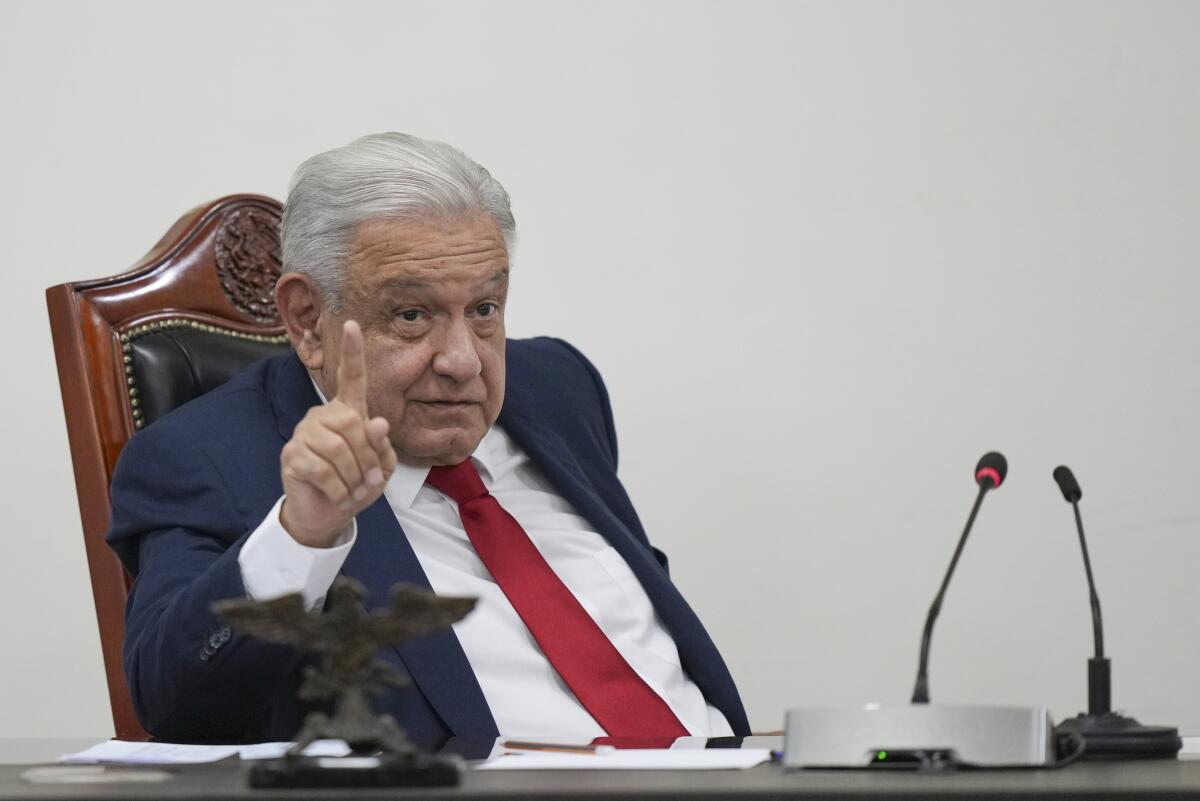
- Copy Link URL Copied!
Mexican President Andrés Manuel López Obrador announced a “pause” in his nation’s relations with the United States and Canadian embassies after the ambassadors from those countries criticized his plan to dramatically overhaul the justice system.
“They have to learn to respect the sovereignty of Mexico,” López Obrador told journalists Tuesday morning at his daily news conference.
His comments came after U.S. Ambassador Ken Salazar and his Canadian counterpart expressed their concern about sweeping changes proposed by López Obrador to Mexico’s courts .
Under the plan, which the president hopes to push through Congress during his final month in office , federal judges, including members of the Supreme Court, would lose their jobs, and their replacements would be elected by popular vote.
López Obrador contends that the courts, which have ruled against several of his legislative efforts in recent years, are corrupt.
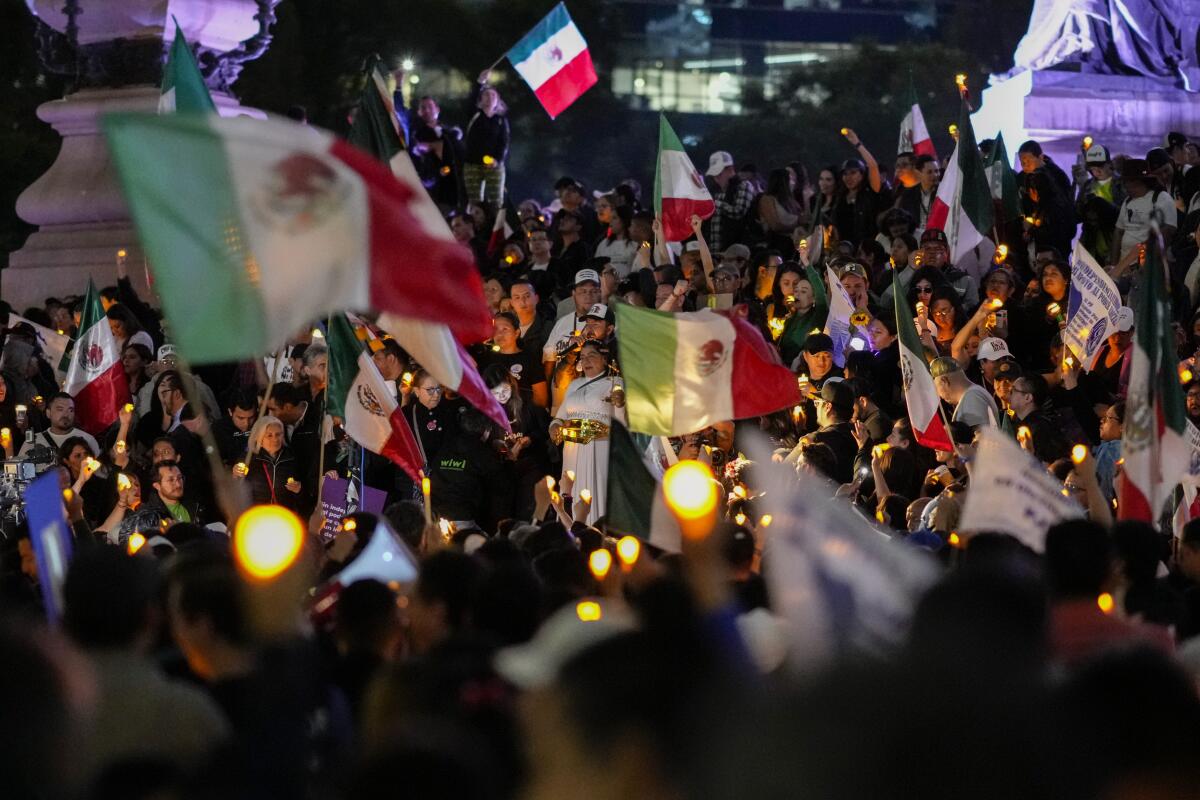
His critics say there’s no evidence of that, and that putting judges up for election would politicize the judiciary and give even more power to López Obrador’s ruling Morena party . Last week, thousands of judges and other court employees walked off the job in protest. Over the weekend, marchers took to the streets in more than a dozen cities to oppose the changes.

World & Nation
The U.S. and Mexico are sparring over López Obrador’s radical plan to overhaul the judiciary
Mexico’s judges walked off the job following President Andres Manuel López Obrador’s plan to overhaul the judiciary, with judges elected not appointed.
Aug. 23, 2024
Concern about the implications of López Obrador’s comments sent the peso tumbling. Several U.S. banks have warned in recent weeks that the proposed judicial overhaul poses serious financial risks for Mexico and could damage bilateral trade.
The U.S. and Canadian embassies did not immediately respond to requests for comment Tuesday.
Salazar came out publicly against the president’s plan last week, saying the overhaul would “threaten the historic trade relationship we have built, which relies on investors’ confidence in Mexico’s legal framework.”
“Direct elections would also make it easier for cartels and other bad actors to take advantage of politically motivated and inexperienced judges,” said Salazar, who before becoming ambassador served as a senator, Interior secretary and as Colorado’s attorney general.

How independent will Mexico’s next president be? This controversy gives a hint
Will Mexico’s president-elect be AMLO 2.0 or an independent leader? A push for a controversial judicial reform hints at Claudia Sheinbaum’s direction.
June 14, 2024
“Based on my lifelong experience supporting the rule of law, I believe popular direct election of judges is a major risk to the functioning of Mexico’s democracy,” he said.
That outraged López Obrador, who called Salazar’s comments “disrespectful.” He said Mexico had sent a diplomatic letter to the U.S. complaining that the ambassador’s comments “represent an unacceptable interference, a violation of Mexico’s sovereignty.”
When López Obrador was asked on Tuesday whether he was in dialogue with Salazar, the president said that his relationship with the ambassador had been “on pause.”
“We are not going to tell him to leave the country,” the president said of Salazar. “But we do have to read him the Constitution — it is like reading him the riot act.”
He said his government was abstaining from communication with the U.S. and Canadian embassies. But the broader U.S.-Mexico bilateral relationship continued as normal, he said.

A Girl Scout troop for young migrants offers a haven in a chaotic city
The Girl Scouts in this troop, in one of New York’s emergency migrant shelters, know hardship and loss. But at meetings at least, they get to be kids.
Aug. 20, 2024
López Obrador, a left-leaning populist with high approval ratings , has long criticized the United States for intervening in Mexico’s domestic affairs.
His administration’s cooperation with U.S. law enforcement officials has deteriorated since he accused the U.S. Drug Enforcement Administration of fabricating a case against a former Mexican defense minister who was arrested by American authorities in 2020. López Obrador successfully pressured the U.S. to drop all charges against the general and return him to Mexico.
López Obrador first proposed the judicial reform in February, after several of his legislative initiatives, including controversial changes to the country’s elections institute, were hamstrung by Supreme Court rulings .
He has complained that judges on the nation’s highest court are part of a “power mafia” and says they and other members of the judiciary should be elected just like the president or senators.
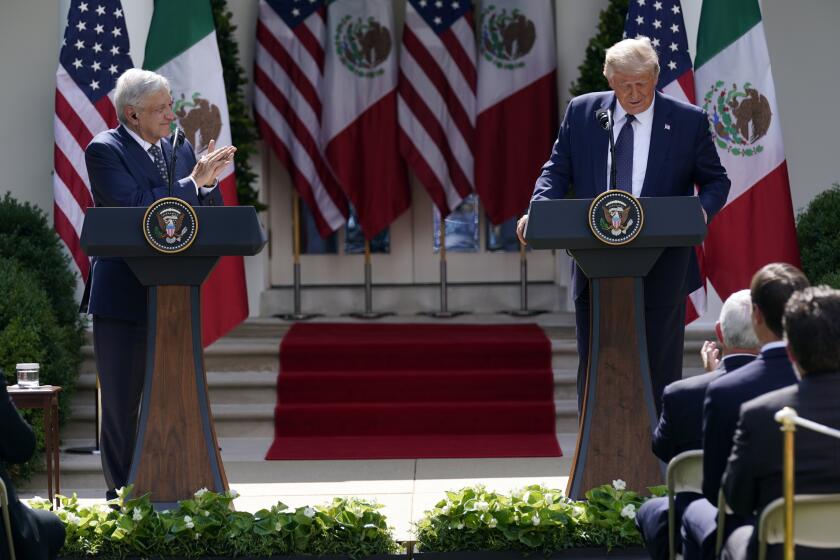
Mexico’s president says the U.S. is suffering from moral decay. He offers some advice
For Mexican President Andrés Manuel López Obrador, appearing to stand up to the United States has proved to have political benefits at home.
April 20, 2023
Along with changing how judges are chosen, the proposal would also reduce their terms, tie their salaries to those of the executive branch and create a judicial disciplinary tribunal whose members are elected by popular vote for terms that coincide with the six-year presidential term.
Most sitting judges, including those on the Supreme Court, would have to conclude their term when newly elected judges were sworn in.
Few countries elect Supreme Court judges by popular vote.
An analysis of the proposed reform carried out by the Inter-American Dialogue, the Stanford Law School Rule of Law Impact Lab and the Mexican Bar Assn. found that the proposals, if approved, “would undermine the foundation of the rule of law in Mexico.”
“These proposals constitute a direct threat to judicial independence,” it said. “They violate international legal standards on the independence, impartiality, and competence of the judiciary.”
López Obrador’s proposal has also drawn criticism from the U.S. Senate, with several key members of the Foreign Relations Committee issuing a statement Tuesday warning that the proposed judicial reforms “would undermine the independence and transparency of the country’s judiciary, jeopardizing critical economic and security interests shared by our two nations.”
In Mexico, many questioned López Obrador’s decision to inflame tensions with the U.S. weeks before his successor, Claudia Sheinbaum, is sworn in to office Oct. 1. A member of López Obrador’s Morena party and his longtime political protege, Sheinbaum has said she supports the judicial overhaul.
On Tuesday, she said she also supported López Obrador’s decision to suspend relations with the U.S. Embassy “in the face of the insult levied by the ambassador.”
“There are issues that correspond exclusively to Mexicans and are for Mexicans to decide,” she said.
Cecilia Sánchez Vidal in The Times’ Mexico City bureau contributed to this report.
More to Read

The U.S. and Mexico settle their avocado standoff — but not without a dig from the Mexican president
June 24, 2024

Spain withdraws its ambassador to Argentina over comments made by President Milei
May 21, 2024

Biden, Mexican President Andrés Manuel López Obrador discuss migration in latest call
April 29, 2024
Sign up for Essential California
The most important California stories and recommendations in your inbox every morning.
You may occasionally receive promotional content from the Los Angeles Times.

Kate Linthicum is a foreign correspondent for the Los Angeles Times based in Mexico City.
More From the Los Angeles Times

Venezuelan judge issues arrest warrant for opposition’s former presidential candidate
Sept. 2, 2024
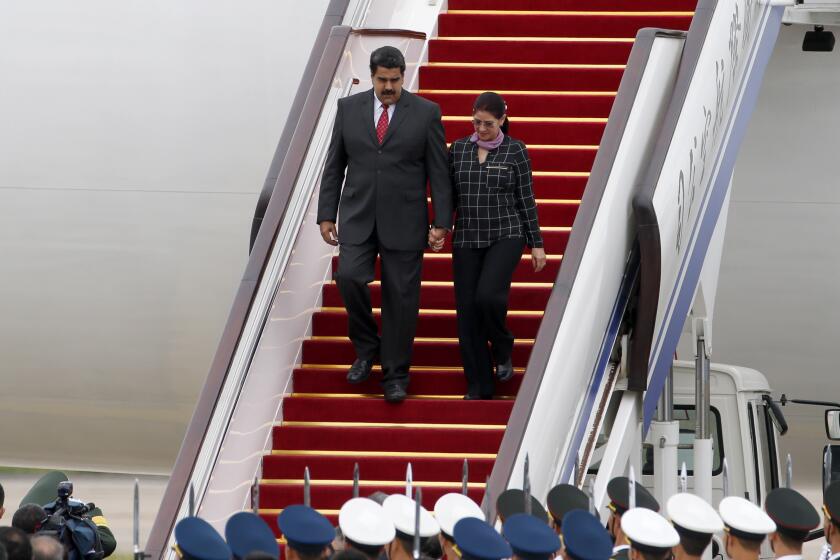
U.S. government seizes plane used by Venezuelan president, citing sanctions violations
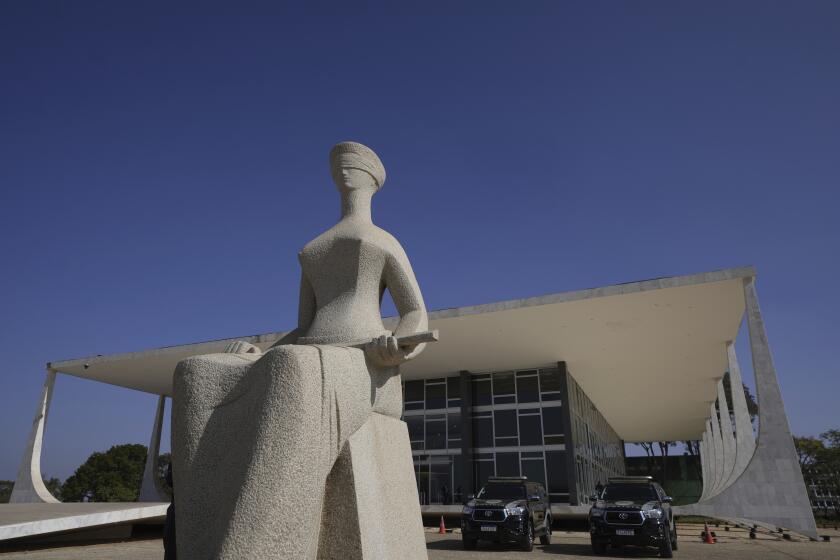
Brazil Supreme Court panel unanimously upholds judge’s decision to block X nationwide
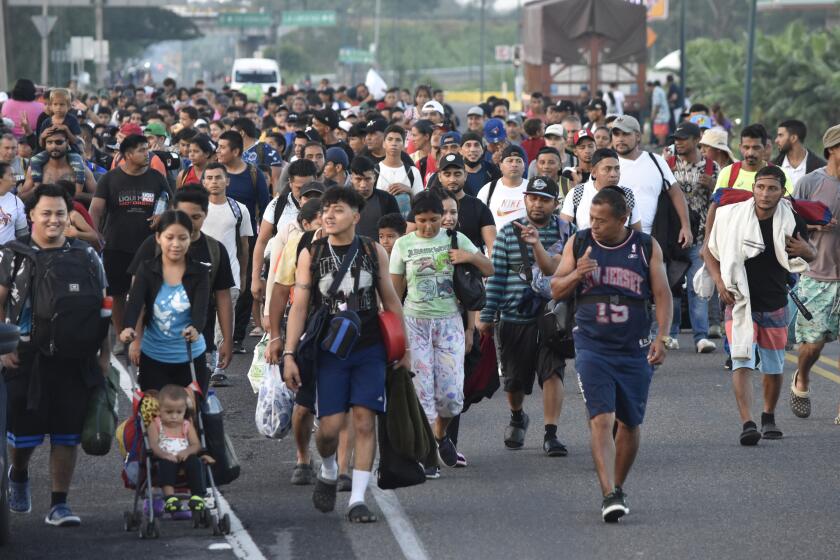
Mexico offers escorted rides north from southern Mexico for migrants with U.S. asylum appointments
Sept. 1, 2024
We’re sorry, this site is currently experiencing technical difficulties. Please try again in a few moments. Exception: request blocked
Watch CBS News
Illegal crossings at U.S.-Mexico border fall to 3-year low, the lowest level under Biden
By Camilo Montoya-Galvez
Updated on: July 1, 2024 / 9:58 AM EDT / CBS News
Illegal crossings along the U.S. southern border fell to a 3-year low in June following President Biden's drastic move to curtail asylum and continued efforts by Mexico to stop migrants heading north, according to preliminary Customs and Border Protection data obtained by CBS News.
Border Patrol processed approximately 84,000 migrants who crossed the U.S.-Mexico border without authorization in June, the lowest monthly level since Mr. Biden took office in January 2021, when the agency reported just over 75,000 migrant apprehensions, the internal statistics show.
June's migrant apprehension tally was also the fourth consecutive monthly drop, continuing an unexpected downward trend in illegal border crossings that started in the early spring. Border Patrol agents recorded 118,000 migrant apprehensions in May; 129,000 in April; 137,000 in March; and 141,000 in February, according to public government figures .
Migrant crossings dropped across border regions, including in remote and rugged stretches of Arizona and California that had become the busiest sectors for illegal entries.
The marked reduction in migration comes weeks after Mr. Biden invoked a presidential power frequently cited by the Trump administration to ban most migrants from asylum if they crossed into the U.S. between official border crossings, known as ports of entry.
The asylum crackdown — which includes exemptions for unaccompanied children and those who wait in Mexico for a chance to be processed at a port of entry — has allowed U.S. immigration officials to more quickly deport larger numbers of migrants, mainly those from Mexico and other countries in Latin America.

The sustained decrease in unauthorized border entries has also occurred against the backdrop of a months-long campaign by Mexican officials to slow U.S.-bound migration by carrying out more deportations to southern Mexico and preventing migrants from boarding trains and buses. The aggressive operation began after a meeting between top American and Mexican officials in December, when migrant apprehensions at the U.S. border reached a quarter of a million, a record.
Beyond U.S. and Mexican policies, other factors also influence migrant migration, including weather patterns and tactics by smugglers, who control the movement of migrants in many parts of Mexico. Temperatures along the U.S. border, for example, have increased rapidly and are expected to continue climbing further into the summer.
Senior U.S. officials told CBS News the partial asylum ban is the main driving force behind the steep decline in crossings. One official noted the drop has been more acute since the crackdown was announced on June 4. In the past week, the average of daily migrant apprehensions fell below 2,000 — or nearly half of May's 3,800 average, internal CBP data show. That number is also close to the 1,500 threshold the Biden administration set to suspend the asylum restrictions.
"The numbers have been going down before the presidential announcement, but they went down a lot more afterwards, so I think you have to give some credit to that," said Andrew Selee, president of the Migration Policy Institute, a Washington-based non-partisan think tank. "We have to assume, if nothing else, that in the short term it has dissuaded some people."
Under the sweeping policy change, U.S. officials have been returning and deporting thousands of migrants to Mexico or their home countries on a weekly basis without screening them for asylum. Only those who affirmatively say they fear being harmed if deported are being screened. But even then, those migrants are being interviewed using heightened screening standards for lesser-known protections that, unlike asylum, do not provide permanent legal refuge.
Asylum processing at ports of entry has continued under Mr. Biden's proclamation. U.S. border officials have continued to process and admit roughly 1,500 migrants each day at these legal entry points, using a smartphone app known as CBP One to coordinate their arrivals.
The stricter asylum rules have led to a 60% decrease in migrant releases, which U.S. officials have historically viewed as a pull factor that attracts migration, officials said. Migrants who are released are generally able to live and work in the U.S. for years, regardless of whether their asylum claims ultimately prevail, because of how backlogged the immigration courts are.
Still, U.S. officials concede Mr. Biden's proclamation is not a silver-bullet. The move, for example, has had a more limited impact on migrants from far-flung countries in the Eastern Hemisphere, such as China and parts of Africa, where the U.S. does not carry out regular deportations. Migrants from these countries are still banned from asylum under Mr. Biden's executive action, but some of them are still being released into the U.S. because they cannot be sent back home or Mexico due to diplomatic or operation constraints.
Mr. Biden's asylum order is also in legal peril. The American Civil Liberties Union filed a lawsuit against the policy in federal court, arguing it violates U.S. asylum law and increases the chances of American officials sending migrants back to places where they can be harmed. At the request of the ACLU, federal courts blocked a similar Trump-era asylum ban.
While it's unclear whether it will continue in the coming months, the migration lull is a political reprieve for Mr. Biden ahead of his presidential contest in November with former President Donald Trump, who has again made a immigration a pillar to his White House bid.
Immigration ranks among the worst-polling issues for Mr. Biden, whose administration has faced an unprecedented influx in migrant crossings along the southern border. And despite the steady drop in illegal border crossings, Trump has intensified his attacks on Mr. Biden's immigration record.
In last week's debate, Trump cited heinous crimes allegedly committed by migrants living in the country illegally, faulting Mr. Biden for their release into the U.S. During the campaign, Trump has promised to oversee the largest deportation operation in U.S. history and end birthright citizenship for the children of unauthorized immigrants if elected.

Camilo Montoya-Galvez is the immigration reporter at CBS News. Based in Washington, he covers immigration policy and politics.
More from CBS News

Biden administration weighs making it harder to end asylum crackdown
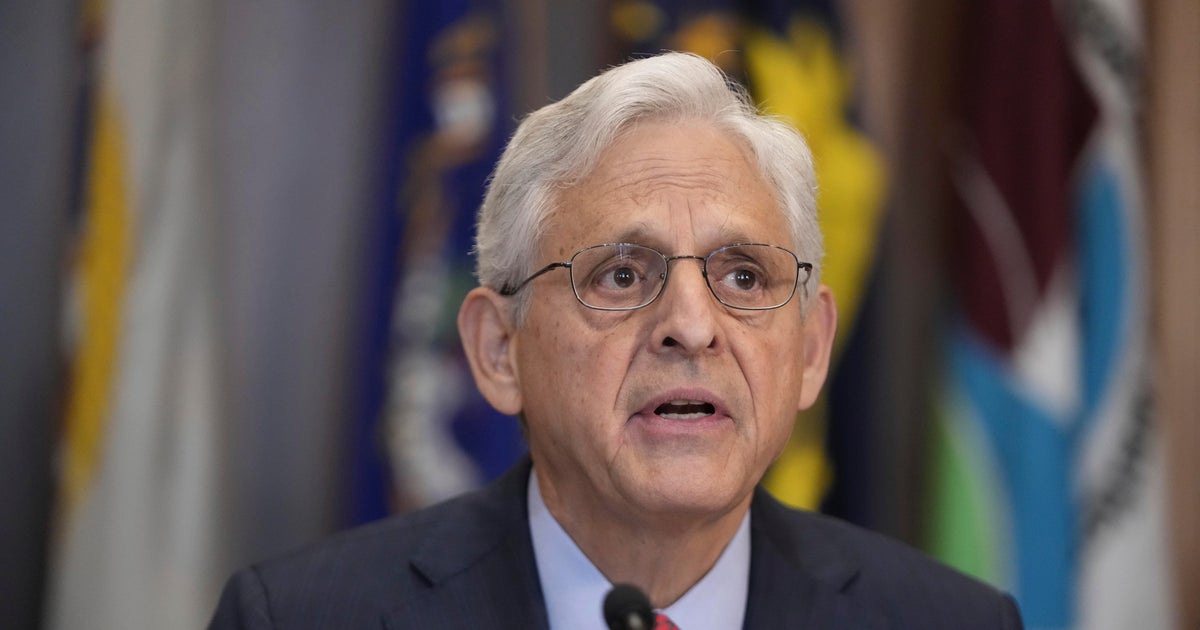
U.S. accuses Russia of sprawling election interference, seizes dozens of sites
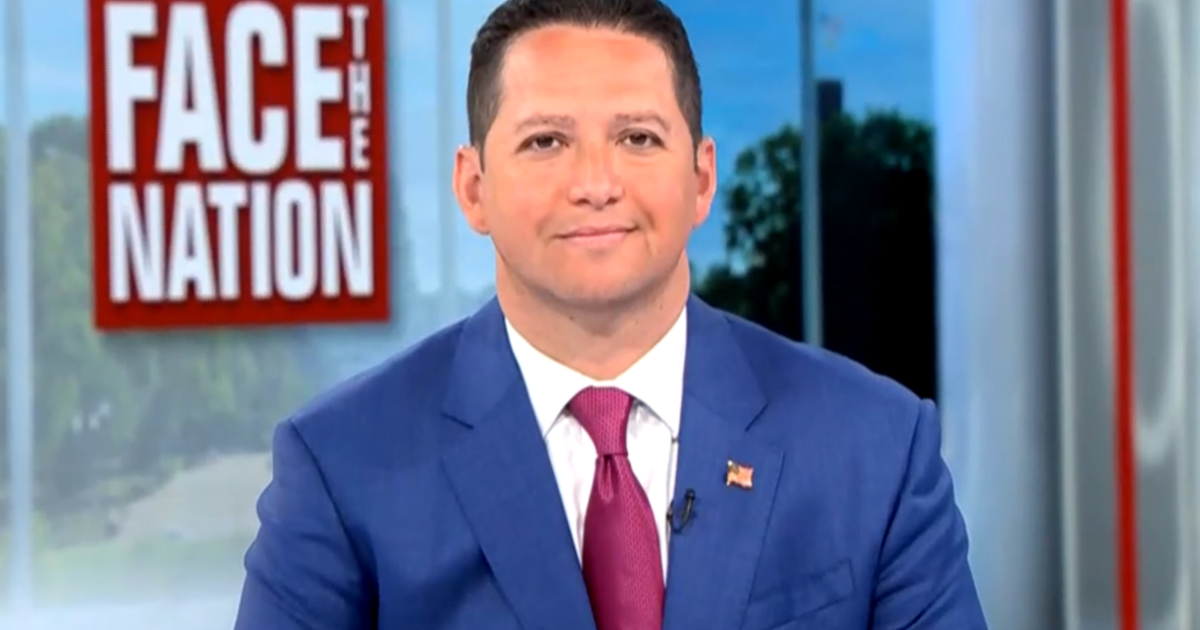
Transcript: Rep. Tony Gonzales on "Face the Nation with Margaret Brennan," Sept. 1, 2024

Democrats hope Tim Walz brings boost in battleground congressional races

Suggested Searches
- Climate Change
- Expedition 64
- Mars perseverance
- SpaceX Crew-2
- International Space Station
- View All Topics A-Z
Humans in Space
Earth & climate, the solar system, the universe, aeronautics, learning resources, news & events.

New NASA Sonifications Listen to the Universe’s Past

What’s Up: September 2024 Skywatching Tips from NASA

NASA Mission Gets Its First Snapshot of Polar Heat Emissions
- Search All NASA Missions
- A to Z List of Missions
- Upcoming Launches and Landings
- Spaceships and Rockets
- Communicating with Missions
- James Webb Space Telescope
- Hubble Space Telescope
- Why Go to Space
- Commercial Space
- Destinations
- Living in Space
- Explore Earth Science
- Earth, Our Planet
- Earth Science in Action
- Earth Multimedia
- Earth Science Researchers
- Pluto & Dwarf Planets
- Asteroids, Comets & Meteors
- The Kuiper Belt
- The Oort Cloud
- Skywatching
- The Search for Life in the Universe
- Black Holes
- The Big Bang
- Dark Energy & Dark Matter
- Earth Science
- Planetary Science
- Astrophysics & Space Science
- The Sun & Heliophysics
- Biological & Physical Sciences
- Lunar Science
- Citizen Science
- Astromaterials
- Aeronautics Research
- Human Space Travel Research
- Science in the Air
- NASA Aircraft
- Flight Innovation
- Supersonic Flight
- Air Traffic Solutions
- Green Aviation Tech
- Drones & You
- Technology Transfer & Spinoffs
- Space Travel Technology
- Technology Living in Space
- Manufacturing and Materials
- Science Instruments
- For Kids and Students
- For Educators
- For Colleges and Universities
- For Professionals
- Science for Everyone
- Requests for Exhibits, Artifacts, or Speakers
- STEM Engagement at NASA
- NASA's Impacts
- Centers and Facilities
- Directorates
- Organizations
- People of NASA
- Internships
- Our History
- Doing Business with NASA
- Get Involved
NASA en Español
- Aeronáutica
- Ciencias Terrestres
- Sistema Solar
- All NASA News
- Video Series on NASA+
- Newsletters
- Social Media
- Media Resources
- Upcoming Launches & Landings
- Virtual Guest Program
- Image of the Day
- Sounds and Ringtones
- Interactives
- STEM Multimedia

NASA Invites Social Creators to Experience Launch of Europa Clipper Mission
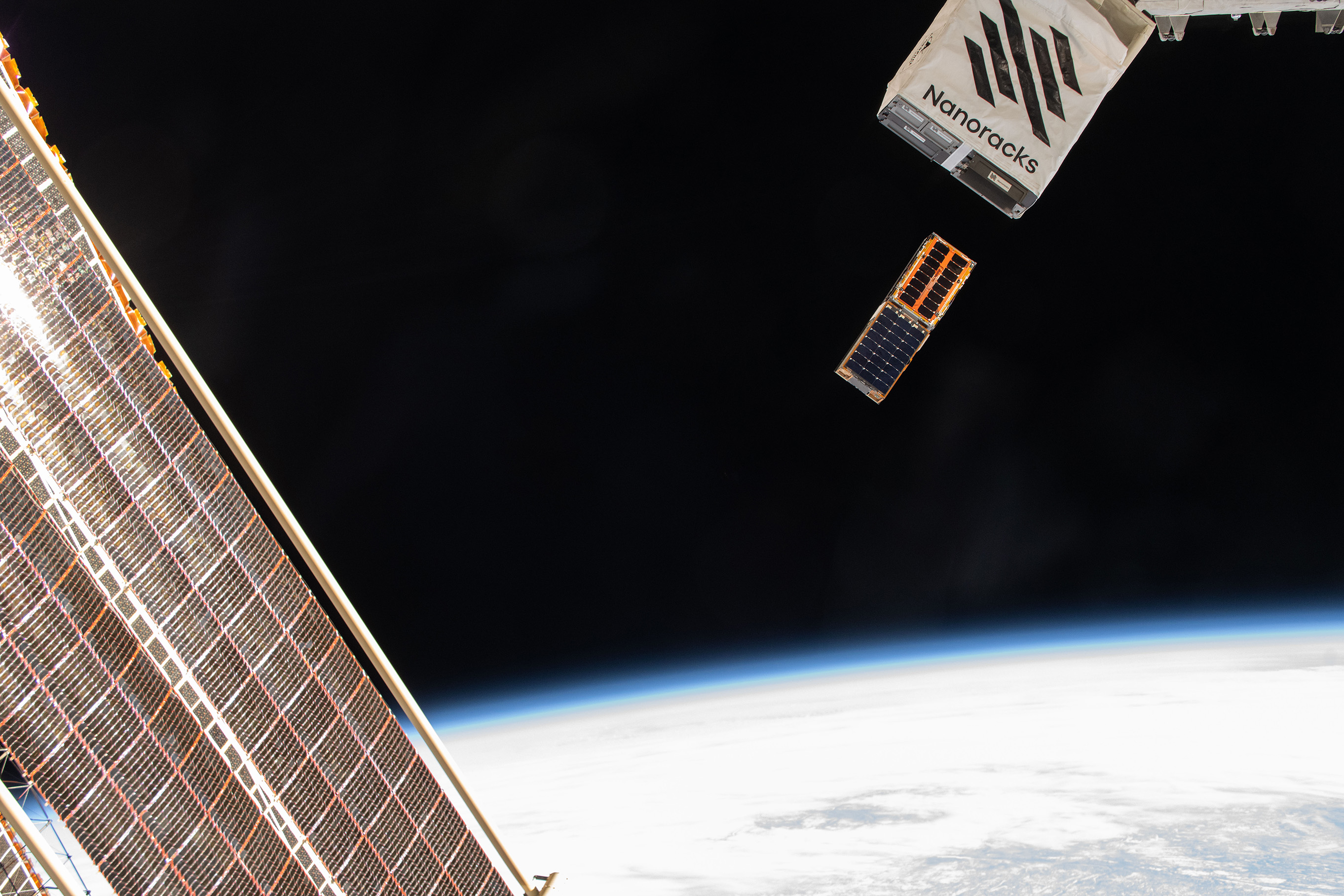
NASA’s Mini BurstCube Mission Detects Mega Blast

NASA Astronaut Don Pettit’s Science of Opportunity on Space Station

NASA, Boeing Optimizing Vehicle Assembly Building High Bay for Future SLS Stage Production
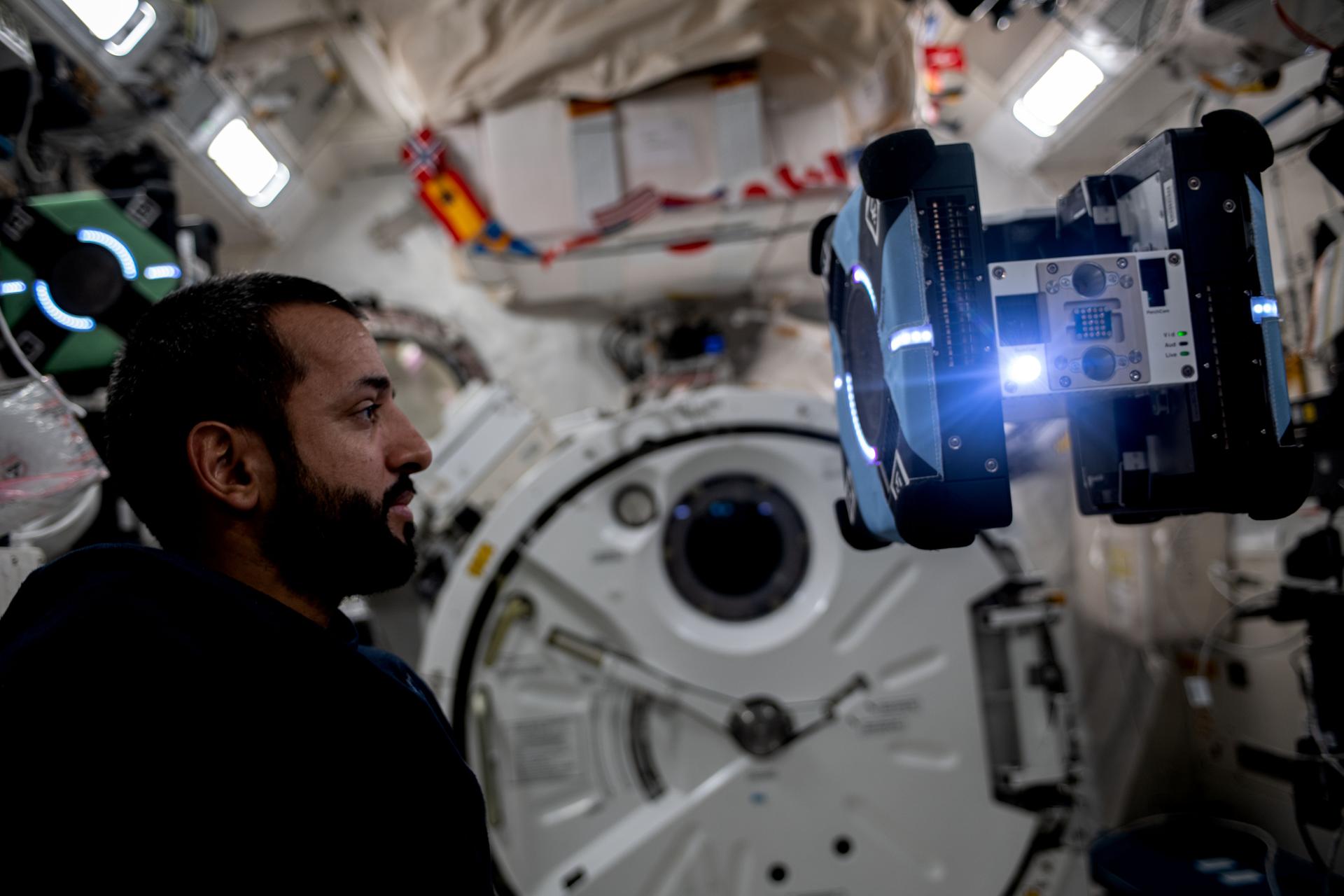
NASA Seeks Input for Astrobee Free-flying Space Robots
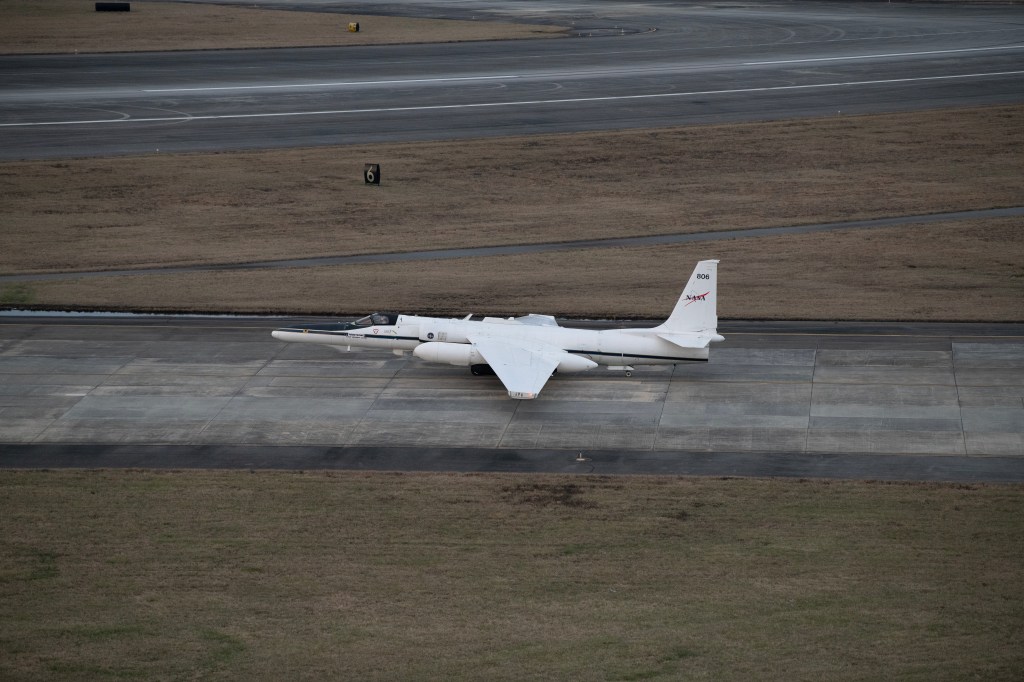
NASA Earth Scientists Take Flight, Set Sail to Verify PACE Satellite Data
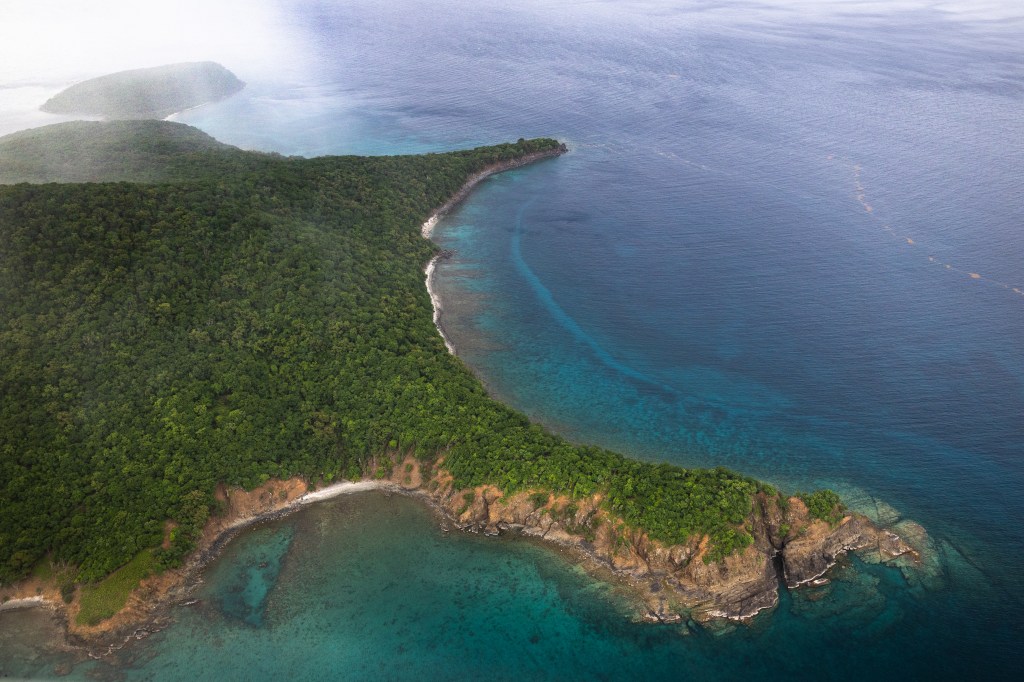
Proyecto de la NASA en Puerto Rico capacita a estudiantes en biología marina

NASA, ESA Missions Help Scientists Uncover How Solar Wind Gets Energy

September’s Night Sky Notes: Marvelous Moons

NASA’s Webb Reveals Distorted Galaxy Forming Cosmic Question Mark

Hubble Zooms into the Rosy Tendrils of Andromeda
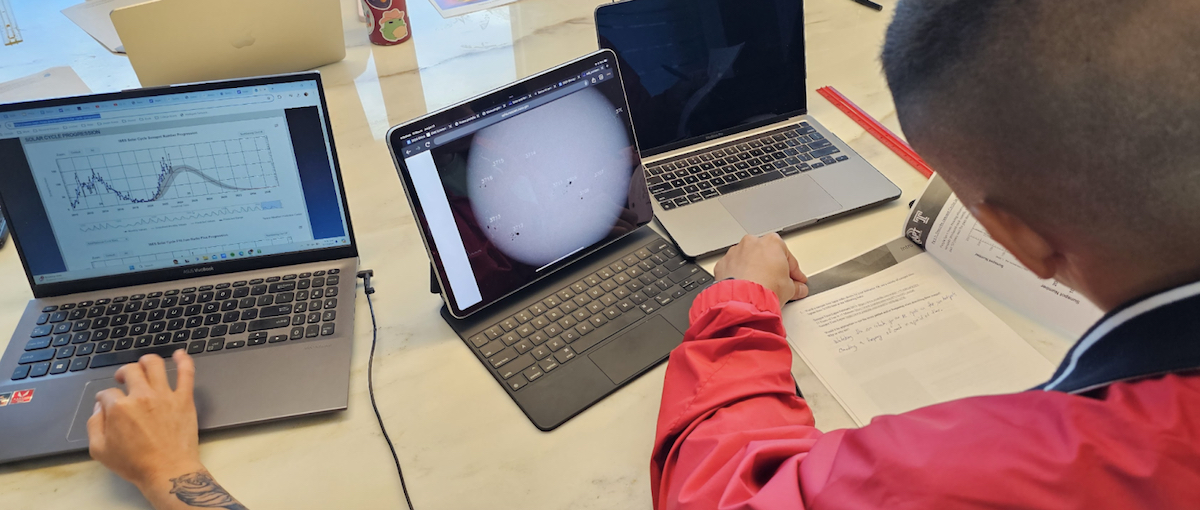
Leveraging Teacher Leaders to Share the Joy of NASA Heliophysics

Research Plane Dons New Colors for NASA Hybrid Electric Flight Tests

NASA G-IV Plane Will Carry Next-Generation Science Instrument
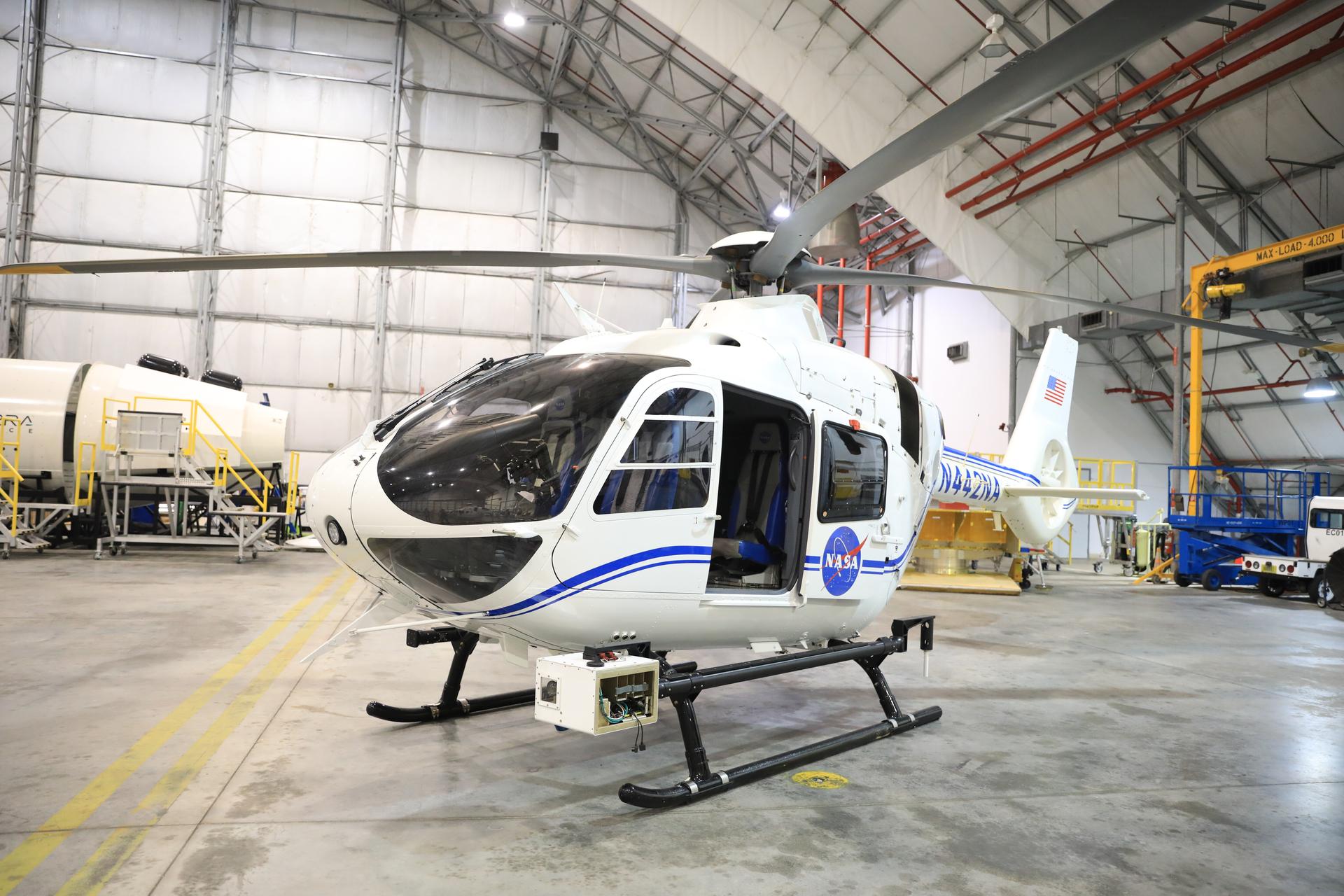
NASA Develops Pod to Help Autonomous Aircraft Operators
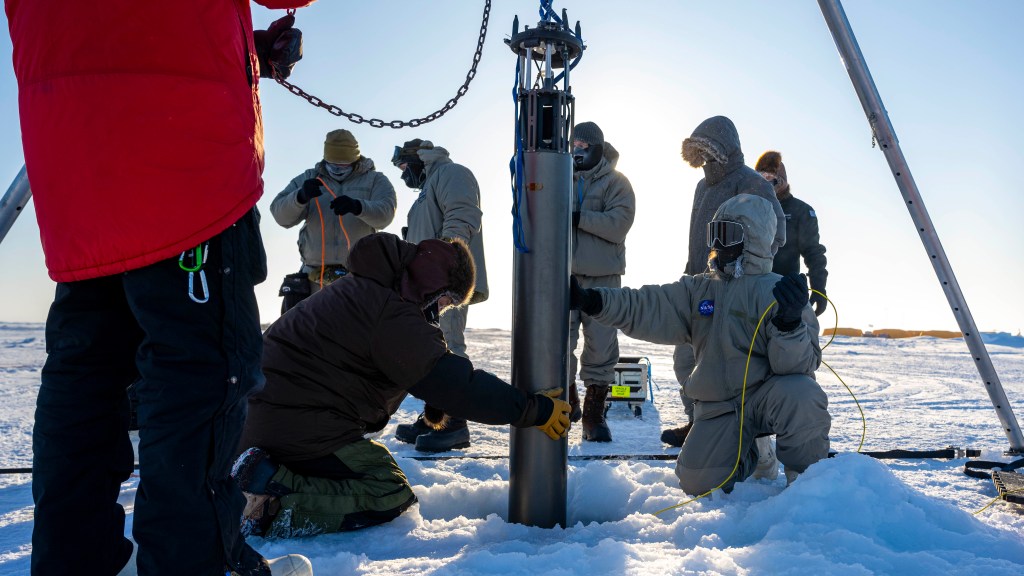
NASA JPL Developing Underwater Robots to Venture Deep Below Polar Ice
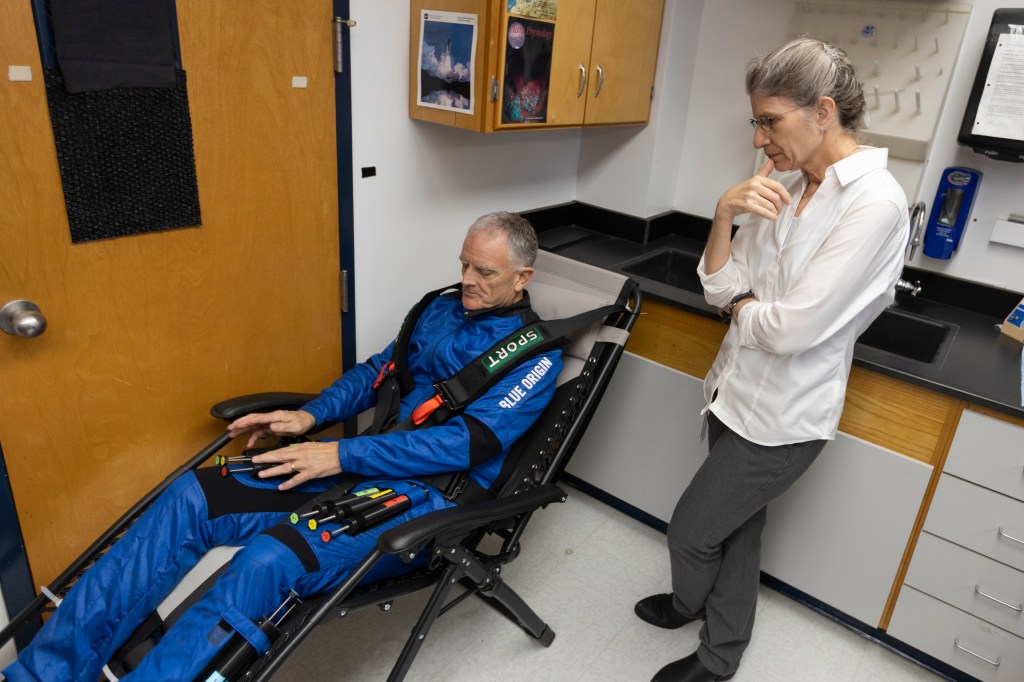
First NASA-Supported Researcher to Fly on Suborbital Rocket

How Do I Navigate NASA Learning Resources and Opportunities?

Carbon Nanotubes and the Search for Life on Other Planets

235 Years Ago: Herschel Discovers Saturn’s Moon Enceladus

La NASA invita a los medios al lanzamiento de Europa Clipper

El X-59 de la NASA avanza en las pruebas de preparación para volar

La NASA invita a creadores de las redes sociales al lanzamiento de la misión Europa Clipper
Nasa decides to bring starliner spacecraft back to earth without crew .
Jessica Taveau
Nasa headquarters.

NASA will return Boeing’s Starliner to Earth without astronauts Butch Wilmore and Suni Williams aboard the spacecraft, the agency announced Saturday. The uncrewed return allows NASA and Boeing to continue gathering testing data on Starliner during its upcoming flight home, while also not accepting more risk than necessary for its crew.
Wilmore and Williams, who flew to the International Space Station in June aboard NASA’s Boeing Crew Flight Test, have been busy supporting station research, maintenance, and Starliner system testing and data analysis, among other activities.
“Spaceflight is risky, even at its safest and most routine. A test flight, by nature, is neither safe, nor routine. The decision to keep Butch and Suni aboard the International Space Station and bring Boeing’s Starliner home uncrewed is the result of our commitment to safety: our core value and our North Star,” said NASA Administrator Bill Nelson. “I’m grateful to both the NASA and Boeing teams for all their incredible and detailed work.”
Wilmore and Williams will continue their work formally as part of the Expedition 71/72 crew through February 2025. They will fly home aboard a Dragon spacecraft with two other crew members assigned to the agency’s SpaceX Crew-9 mission. Starliner is expected to depart from the space station and make a safe, controlled autonomous re-entry and landing in early September.
NASA and Boeing identified helium leaks and experienced issues with the spacecraft reaction control thrusters on June 6 as Starliner approached the space station. Since then, engineering teams have completed a significant amount of work , including reviewing a collection of data, conducting flight and ground testing, hosting independent reviews with agency propulsion experts, and developing various return contingency plans. The uncertainty and lack of expert concurrence does not meet the agency’s safety and performance requirements for human spaceflight, thus prompting NASA leadership to move the astronauts to the Crew-9 mission.
“Decisions like this are never easy, but I want to commend our NASA and Boeing teams for their thorough analysis, transparent discussions, and focus on safety during the Crew Flight Test,” said Ken Bowersox, associate administrator for NASA’s Space Operations Mission Directorate. “We’ve learned a lot about the spacecraft during its journey to the station and its docked operations. We also will continue to gather more data about Starliner during the uncrewed return and improve the system for future flights to the space station.”

Starliner is designed to operate autonomously and previously completed two uncrewed flights. NASA and Boeing will work together to adjust end-of-mission planning and Starliner’s systems to set up for the uncrewed return in the coming weeks. Starliner must return to Earth before the Crew-9 mission launches to ensure a docking port is available on station.
“Starliner is a very capable spacecraft and, ultimately, this comes down to needing a higher level of certainty to perform a crewed return,” said Steve Stich, manager of NASA’s Commercial Crew Program. “The NASA and Boeing teams have completed a tremendous amount of testing and analysis, and this flight test is providing critical information on Starliner’s performance in space. Our efforts will help prepare for the uncrewed return and will greatly benefit future corrective actions for the spacecraft.”
NASA’s Commercial Crew Program requires spacecraft fly a crewed test flight to prove the system is ready for regular flights to and from the space station. Following Starliner’s return, the agency will review all mission-related data to inform what additional actions are required to meet NASA’s certification requirements.
The agency’s SpaceX Crew-9 mission, originally slated with four crew members , will launch no earlier than Tuesday, Sept. 24. The agency will share more information about the Crew-9 complement when details are finalized.
NASA and SpaceX currently are working several items before launch, including reconfiguring seats on the Crew-9 Dragon, and adjusting the manifest to carry additional cargo, personal effects, and Dragon-specific spacesuits for Wilmore and Williams. In addition, NASA and SpaceX now will use new facilities at Space Launch Complex-40 at Cape Canaveral Space Force Station in Florida to launch Crew-9, which provides increased operational flexibility around NASA’s planned Europa Clipper launch.
The Crew-9 mission will be the ninth rotational mission to the space station under NASA’s Commercial Crew Program, which works with the American aerospace industry to meet the goal of safe, reliable, and cost-effective transportation to and from the orbital outpost on American-made rockets and spacecraft launching from American soil.
For more than two decades, people have lived and worked continuously aboard the International Space Station, advancing scientific knowledge and demonstrating new technologies, making research breakthroughs not possible on Earth. The station is a critical testbed for NASA to understand and overcome the challenges of long-duration spaceflight and to expand commercial opportunities in low Earth orbit. As commercial companies focus on providing human space transportation services and destinations as part of a robust low Earth orbit economy , NASA’s Artemis campaign is underway at the Moon where the agency is preparing for future human exploration of Mars.
Find more information on NASA’s Commercial Crew Program at:
https://www.nasa.gov/commercialcrew
-end-
Meira Bernstein / Josh Finch Headquarters, Washington 202-358-1100 [email protected] / [email protected]
Steve Siceloff / Danielle Sempsrott / Stephanie Plucinsky Kennedy Space Center, Florida 321-867-2468 [email protected] / [email protected] / [email protected]
Leah Cheshier / Sandra Jones Johnson Space Center, Houston 281-483-5111 [email protected] / [email protected]
Related Terms
- International Space Station (ISS)
- Commercial Crew
- Kennedy Space Center

COMMENTS
Reissued after periodic review with general security updates, and the removal of obsolete COVID-19 page links. Country Summary: Violent crime - such as homicide, kidnapping, carjacking, and robbery - is widespread and common in Mexico.The U.S. government has limited ability to provide emergency services to U.S. citizens in many areas of Mexico, as travel by U.S. government employees to ...
The United States is warning travelers heading to Mexico to be aware of their surroundings ahead of the spring break holiday season. The warning, which was issued this week by the U.S. Embassy and ...
The U.S. Embassy & Consulates in Mexico put out an alert for spring break travelers on March 13 outlining crime and other potential security issues and actions to take to help ensure safer travel.
Mr. de Hail recommends researching the resort and news from the area you're visiting. The U.S. State Department provides state-by-state information about travel risks in Mexico. As of early ...
Be aware of current health issues in Mexico. Learn how to protect yourself. Level 1 Practice Usual Precautions. Updated Global Dengue August 14, 2024 Dengue is a year-round risk in many parts of the world, with outbreaks commonly occurring every 2-5 years. Travelers to risk areas should prevent mosquito bites.
In some areas of Mexico, response time of local police is often slow. In addition, filing police reports can be time consuming. See our Mexico Travel Advisory for more information. Demonstrations occur frequently. They may take place in response to political or economic issues, on politically significant holidays, and during international events.
Feb. 10, 2023 2:53 PM PT. The State Department is urging U.S. citizens to avoid travel to parts of Mexico over fears of kidnappings and other crime across multiple states, renewing warnings as ...
See state summaries and advisory levels in the Mexico Travel Advisory for information on your specific travel destination. Some areas of Mexico have increased risk of crime and kidnapping. Assistance: Contact Form; U.S. Embassy and Consulates in Mexico; From Mexico: (55) 8526 2561; From the United States: 1-844-528-6611
The situation is tense in the border area between: United States and Mexico. Guatemala and Mexico. You should travel to Mexico by air to avoid criminal incidents at international land border crossings. If you plan to cross an international land border: remain extremely vigilant. use only official border crossings.
The U.S. State Department issued an updated Travel Advisory Wednesday for U.S. travelers visiting Mexico, including new state-level advice and information on "kidnapping risk." The agency cited an ...
Unlike some other countries, Mexico's travel advisory assesses each state individually. The agency issued a "do not travel to" warning for the Colima, Guerrero, Michoacan, Sinaloa, Tamaulipas and ...
Level 1: Exercise Normal Precautions. July 26, 2023. Ghana Travel Advisory. Level 2: Exercise Increased Caution. November 20, 2023. Democratic Republic of the Congo Travel Advisory. Level 3: Reconsider Travel. July 9, 2024. Republic of the Congo Travel Advisory.
Mexico Travel Health Issues . Staying healthy is an essential factor in making sure you enjoy your time in Mexico. The main health problem that visitors to Mexico face is the dreaded Montezuma's Revenge, which is really just a fancy way to say traveler's diarrhea. There are some pretty simple precautions you can take to avoid having this ...
Mexico travel safety must-haves. 1. Use a concealable neck wallet to avoid pickpockets. Pickpocketing and robbery are common in larger cities. Use a neck wallet to store all of your valuables in one place, including your phone, cash, credit cards, and important documents. It can be worn discretely under your shirt so you're not flashing your ...
OVERALL RISK: MEDIUM The U.S. Government advises people to "reconsider travel" to Mexico, which is the third-highest of four levels of danger.Covid-19, as well as a rise in crime and kidnappings, are the major reasons.Like many countries, some areas are safer than others.Major tourist areas are generally safe.The overall crime rate per thousand people is actually higher in the United States ...
A rash of recent headlines proclaimed that the U.S. State Department was warning against visiting Mexico leading up to the busy vacation season. Although the department has "do not travel ...
Ensure your accommodation is insect-proof. Use insect repellent. Parts of Mexico are at high altitudes. Air pollution can also cause health issues, particularly over winter (December to February). Talk to your doctor before you travel if you have heart, lung or breathing issues. Full travel advice: Health.
FCDO advises against all but essential travel to the state of Michoacán, except the: city of Morelia accessed by federal toll roads 15D, 126 and 43; and the federal toll road 48D between the city ...
FCDO travel advice for Mexico. Includes safety and security, insurance, entry requirements and legal differences.
Mr. López Obrador also announced a pause in relations with the Canadian Embassy after its ambassador, Graeme Clark, relayed Canadian investors' concerns over the judicial overhaul.
Andrés Manuel López Obrador says Mexico's communications with U.S. and Canadian embassies are 'on pause' after ambassadors criticized his plan for a judiciary overhaul.
Canada's ambassador in Mexico, Graeme Clark, has warned of investor worries due to the proposed judicial reforms, and voiced concern about the "disappearance" of some autonomous bodies.
Assistance: For Emergency Assistance for U.S. citizens in Mexico, call (55) 8526 2561 from Mexico or 1-844-528-6611 from the United States. The U.S. Embassy in Mexico City is located at: Paseo de la Reforma 305, Colonia Cuauhtémoc, 06500, Ciudad de México. Phone: +52-55-5080-2000, Fax: +52-55-5080-2005.
Mayorkas visits Arizona to tout drop in U.S.-Mexico border crossings 04:58. Illegal crossings along the U.S. southern border fell to a 3-year low in June following President Biden's drastic move ...
MEXICO CITY, Aug 27 (Reuters) - The Mexican government has paused its relationship with the U.S. and Canadian embassies in the country, President Andres Manuel Lopez Obrador said on Tuesday, after ...
NASA will return Boeing's Starliner to Earth without astronauts Butch Wilmore and Suni Williams aboard the spacecraft, the agency announced Saturday. The uncrewed return allows NASA and Boeing to continue gathering testing data on Starliner during its upcoming flight home, while also not accepting more risk than necessary for its crew.
THE U.S.-MEXICO BORDER. Trump has pledged to "immediately stop the invasion of our southern border" and end illegal immigration. As part of that plan, he says he would immediately direct U.S. Immigration and Customs Enforcement to undertake the largest domestic deportation operation in American history.